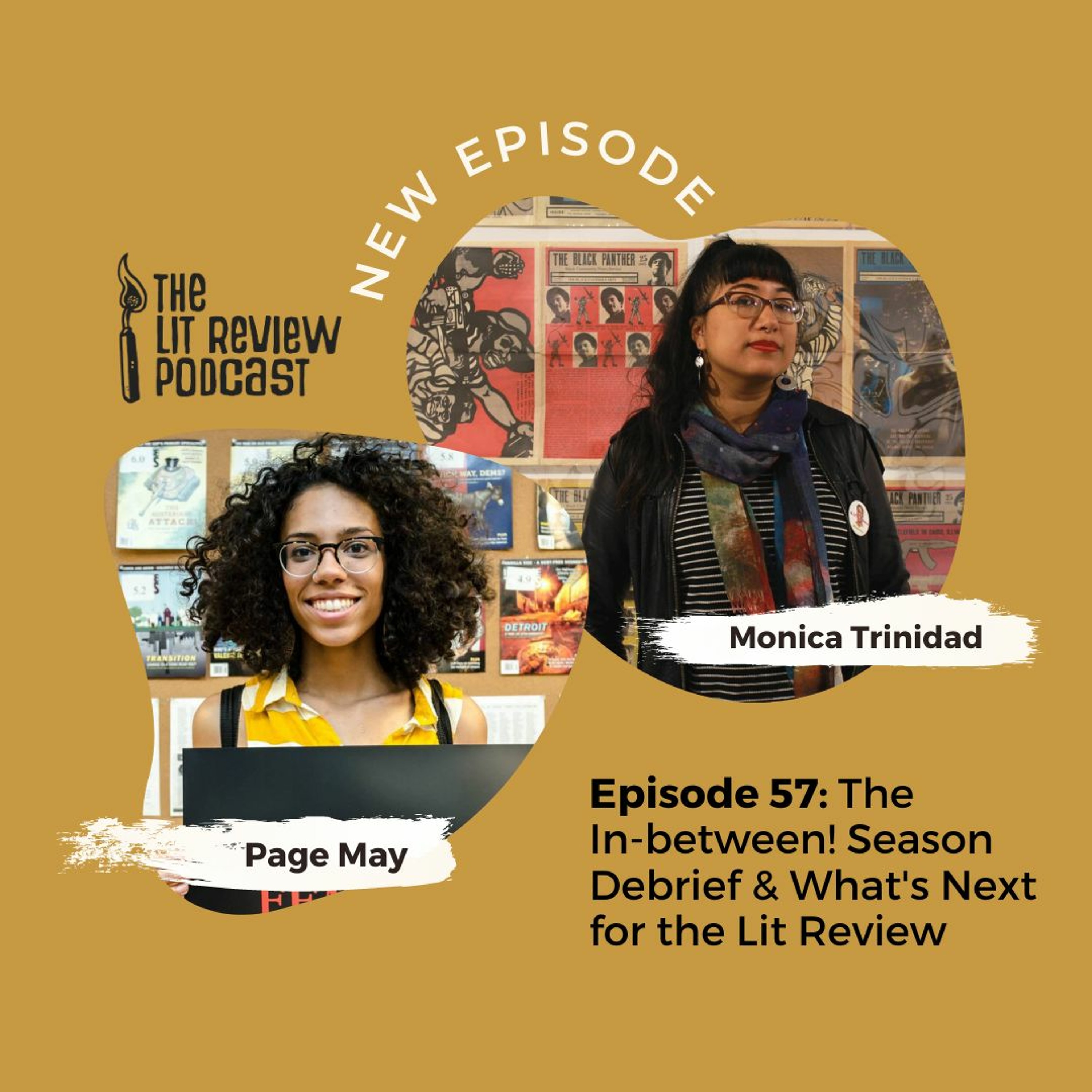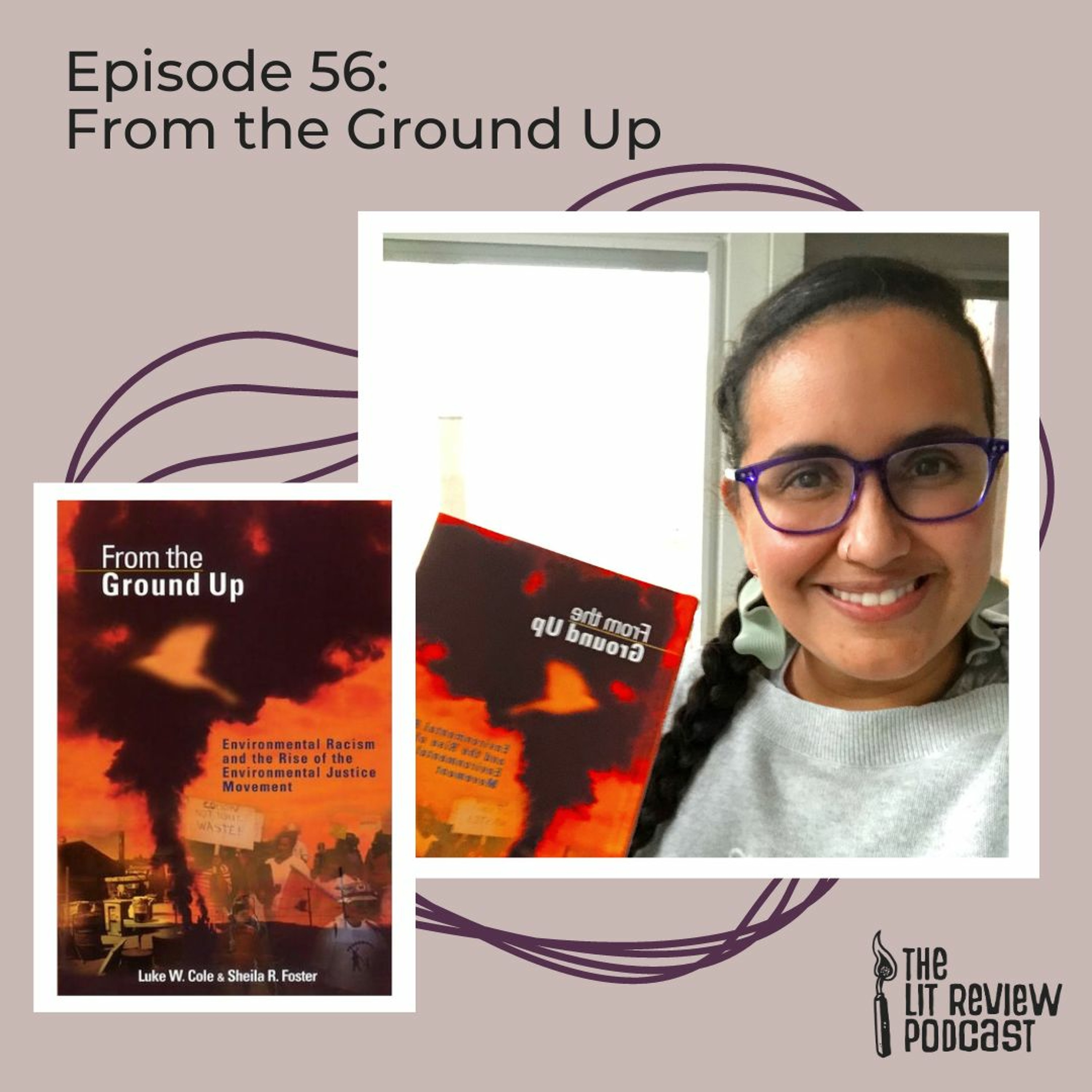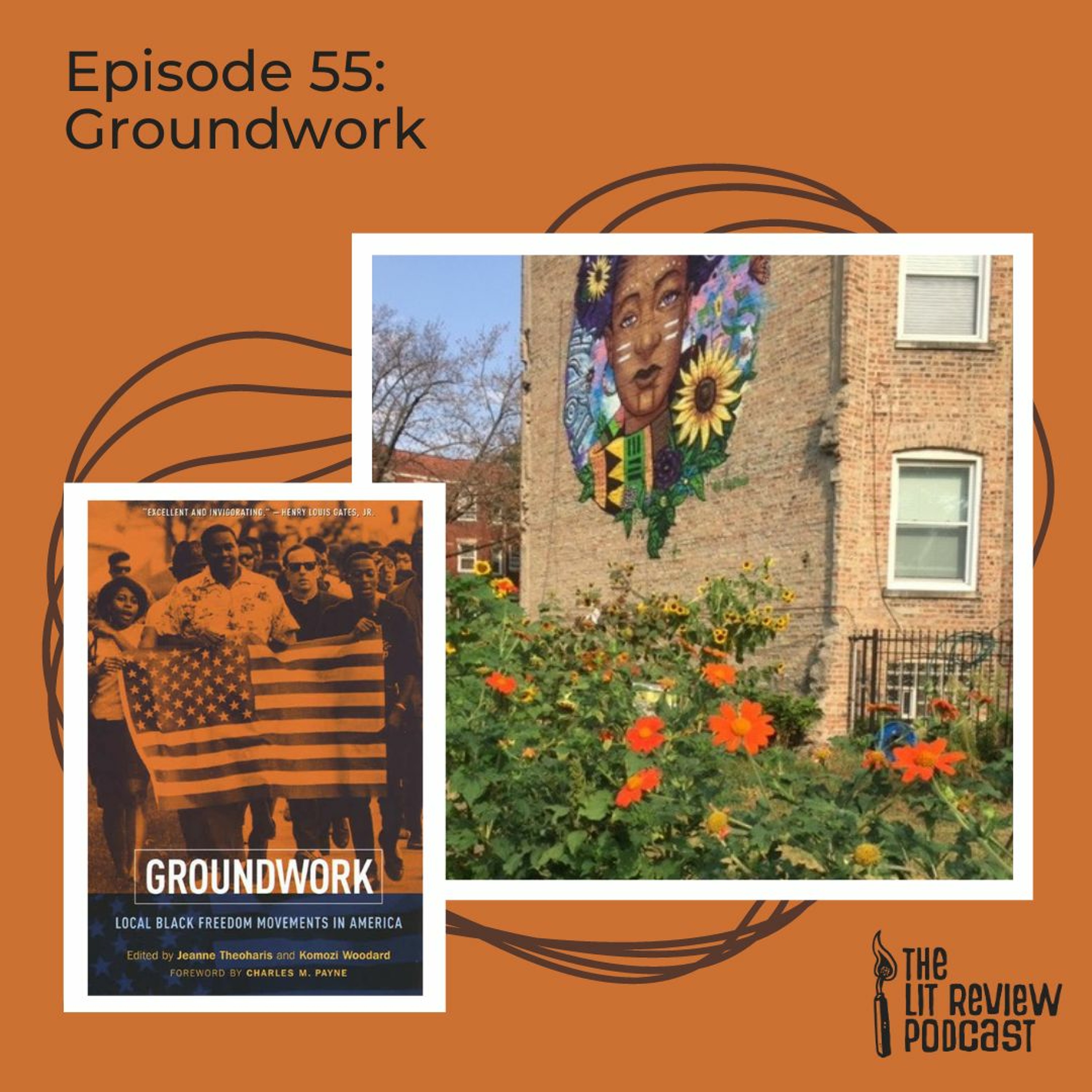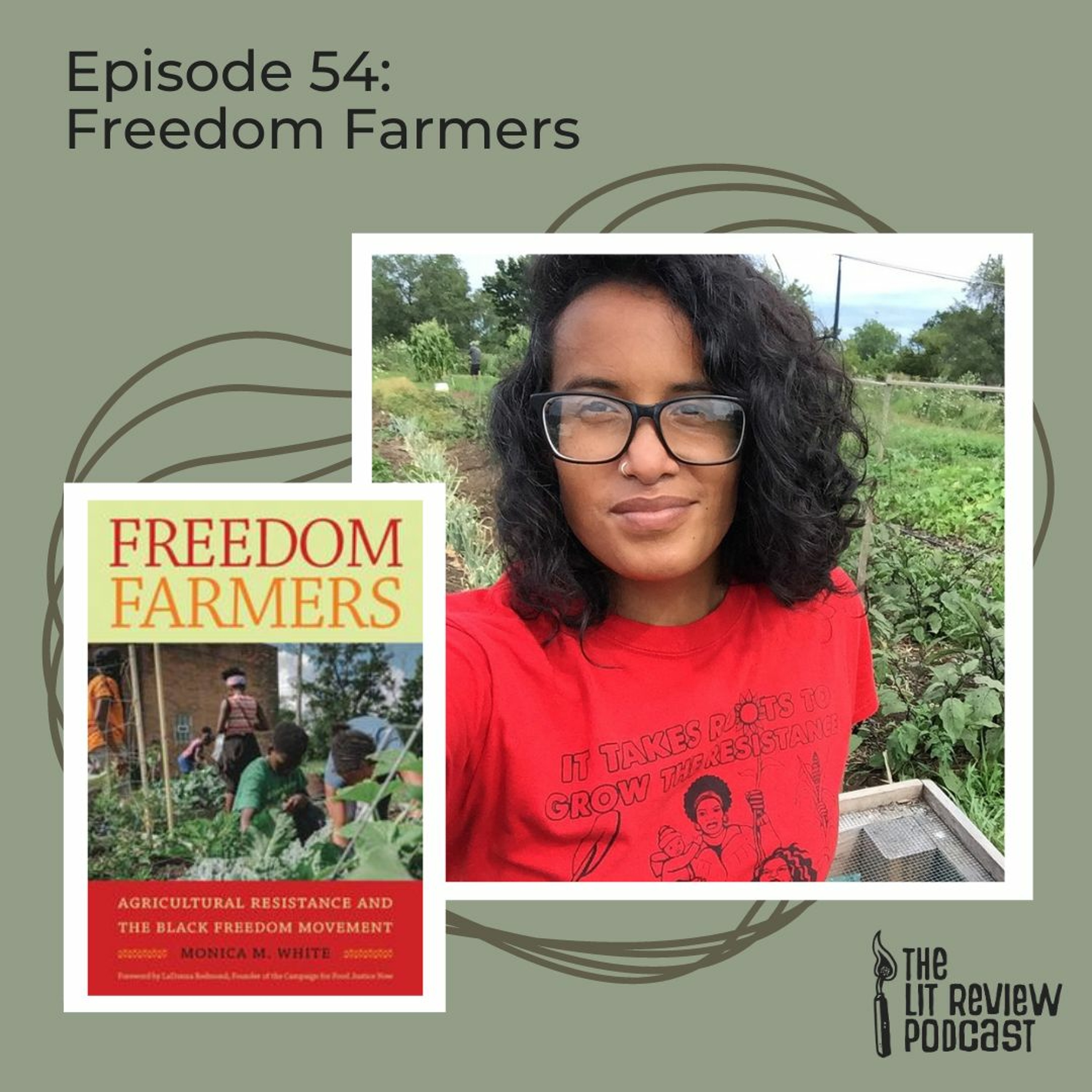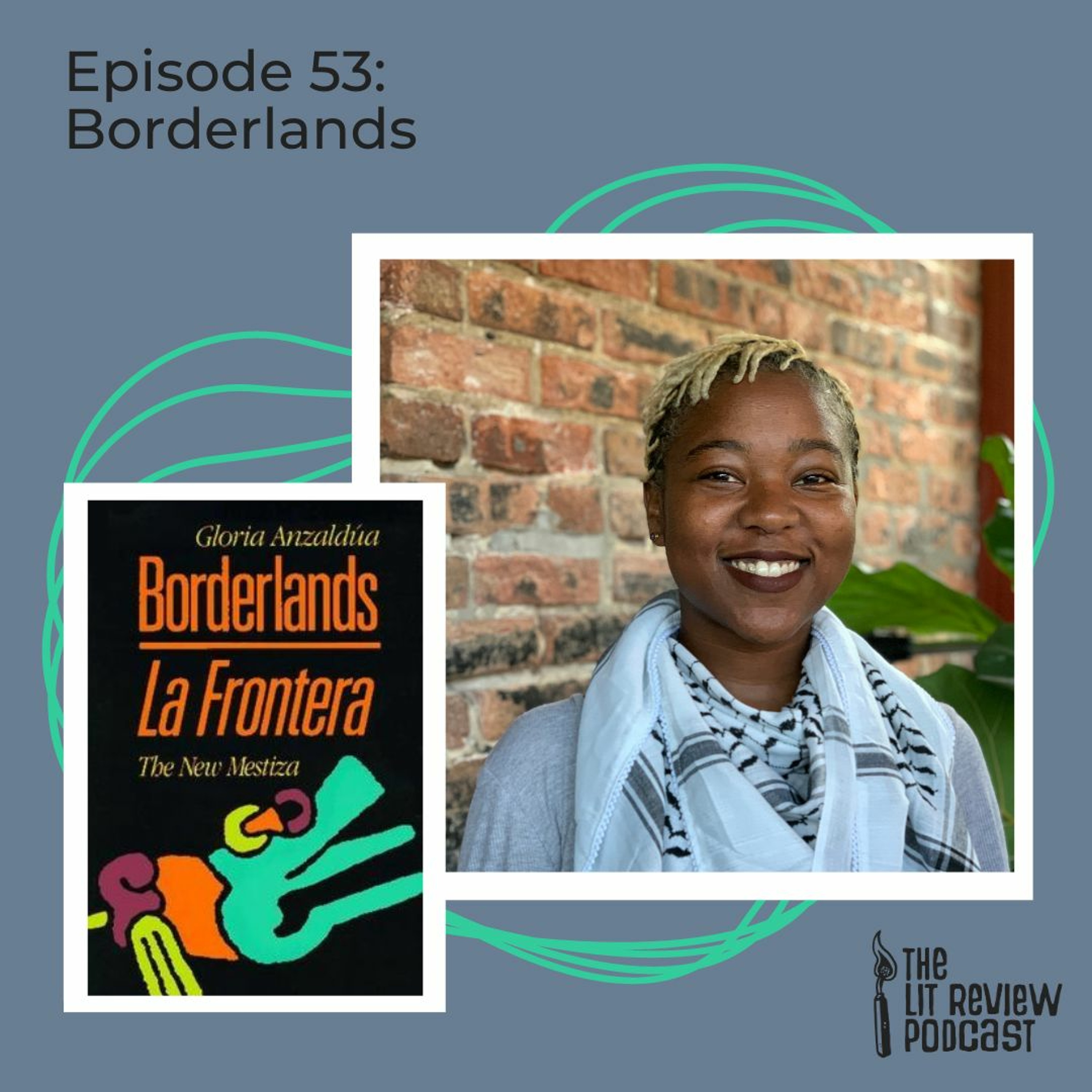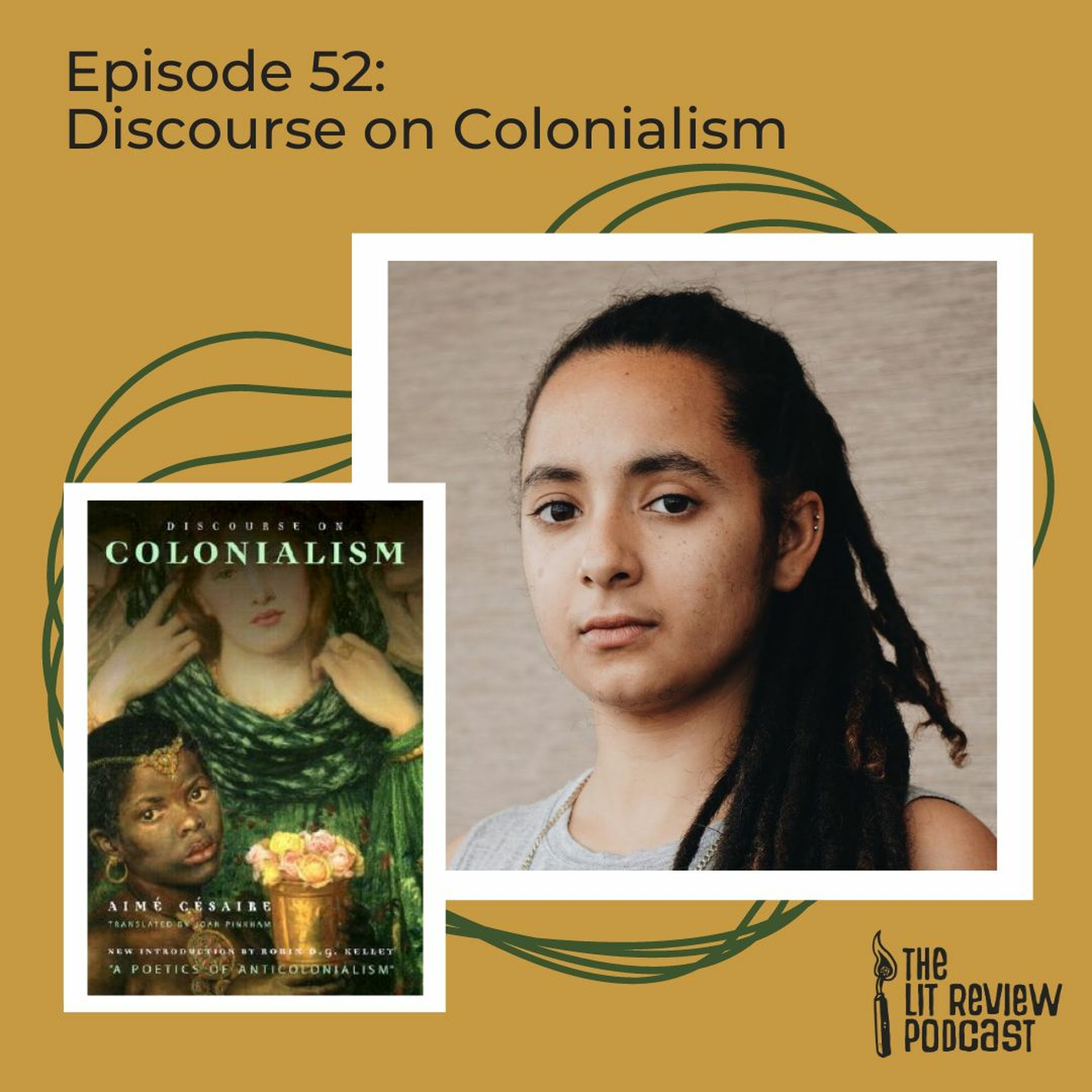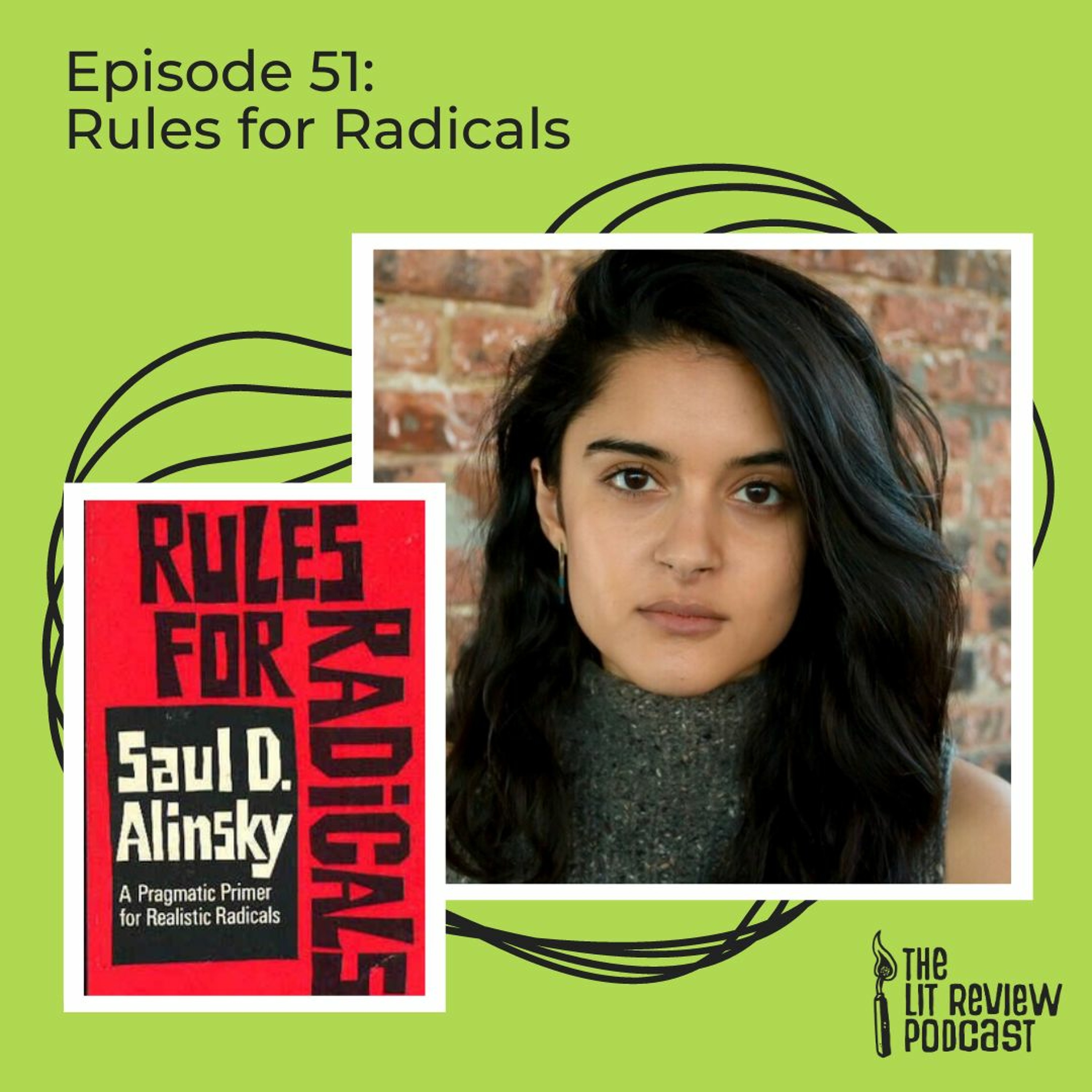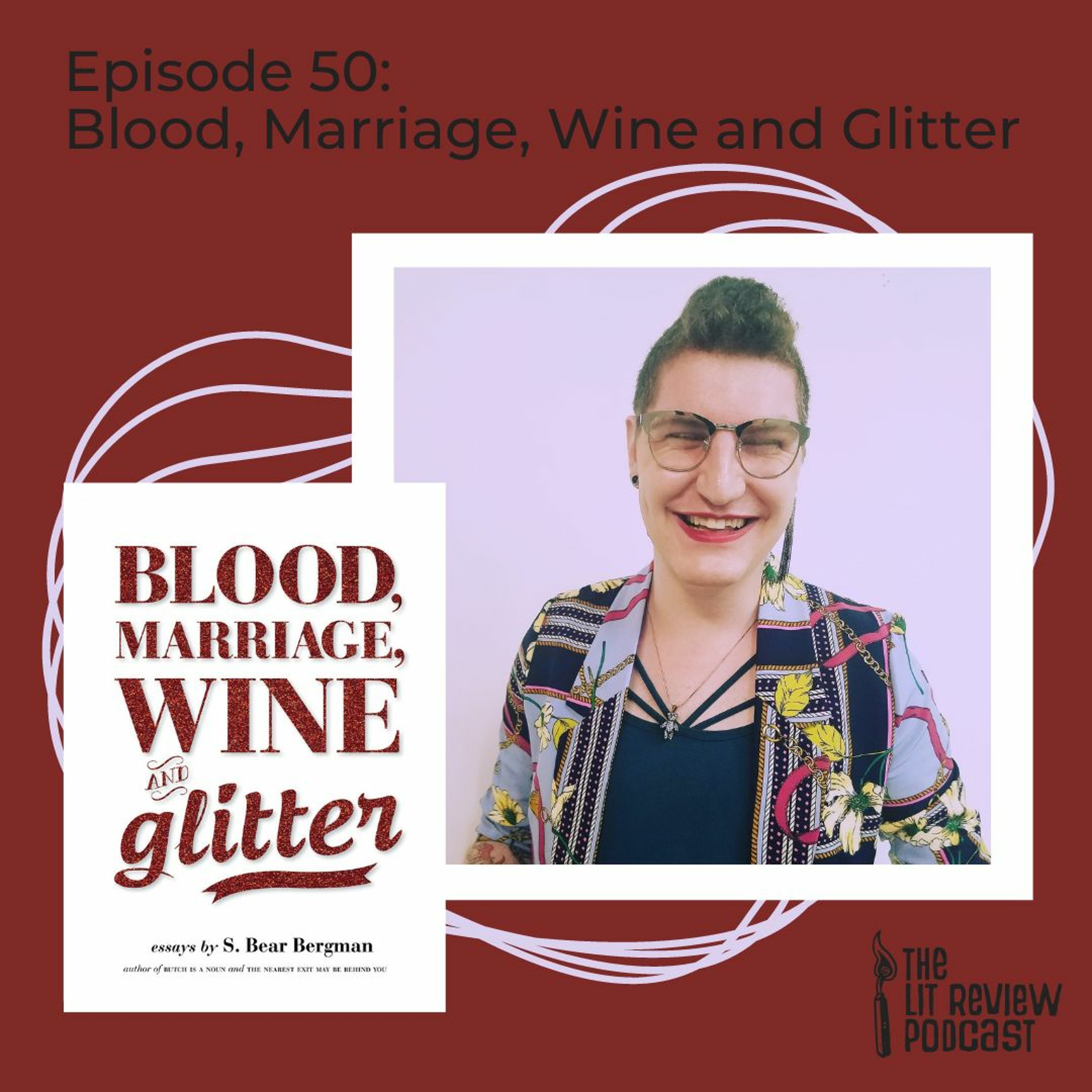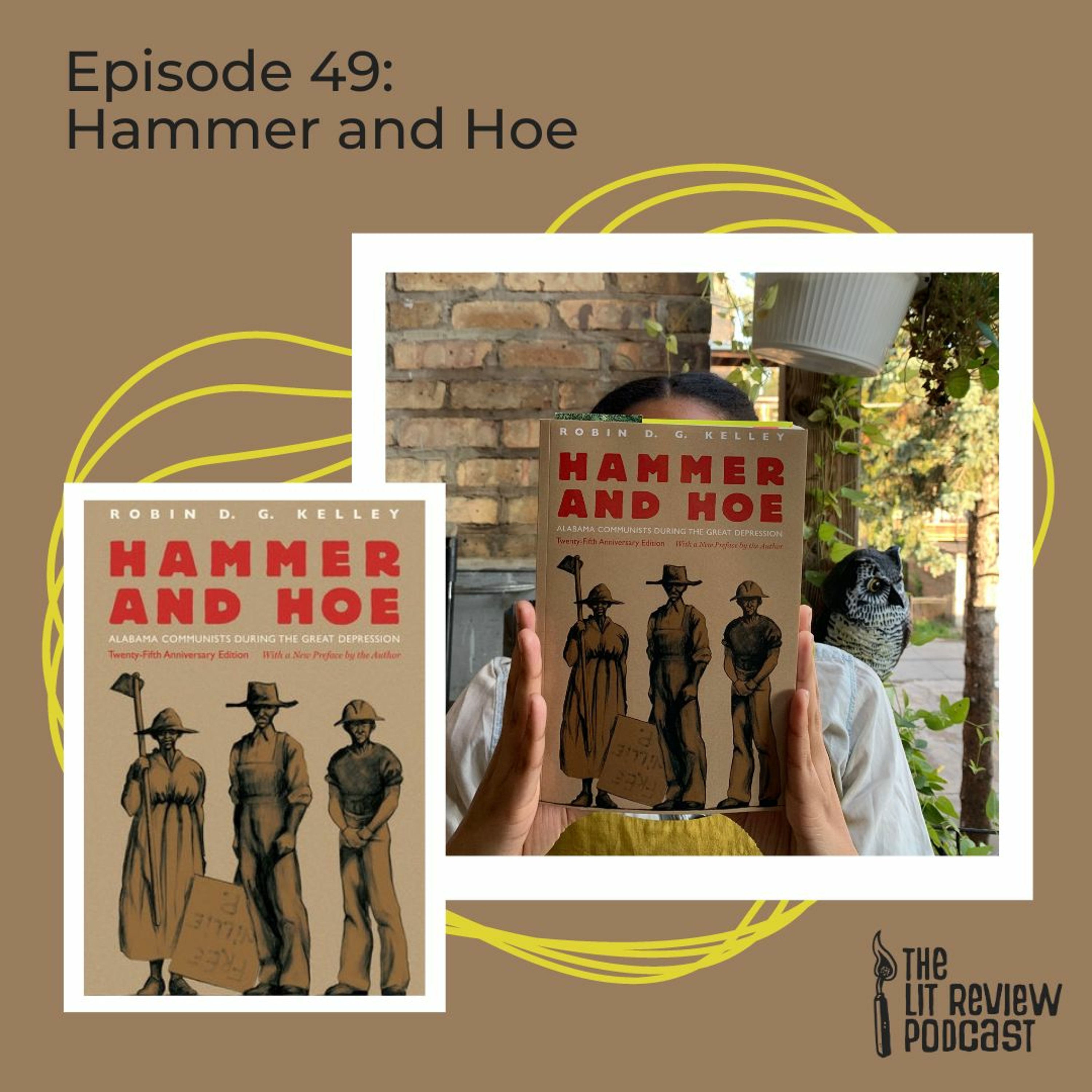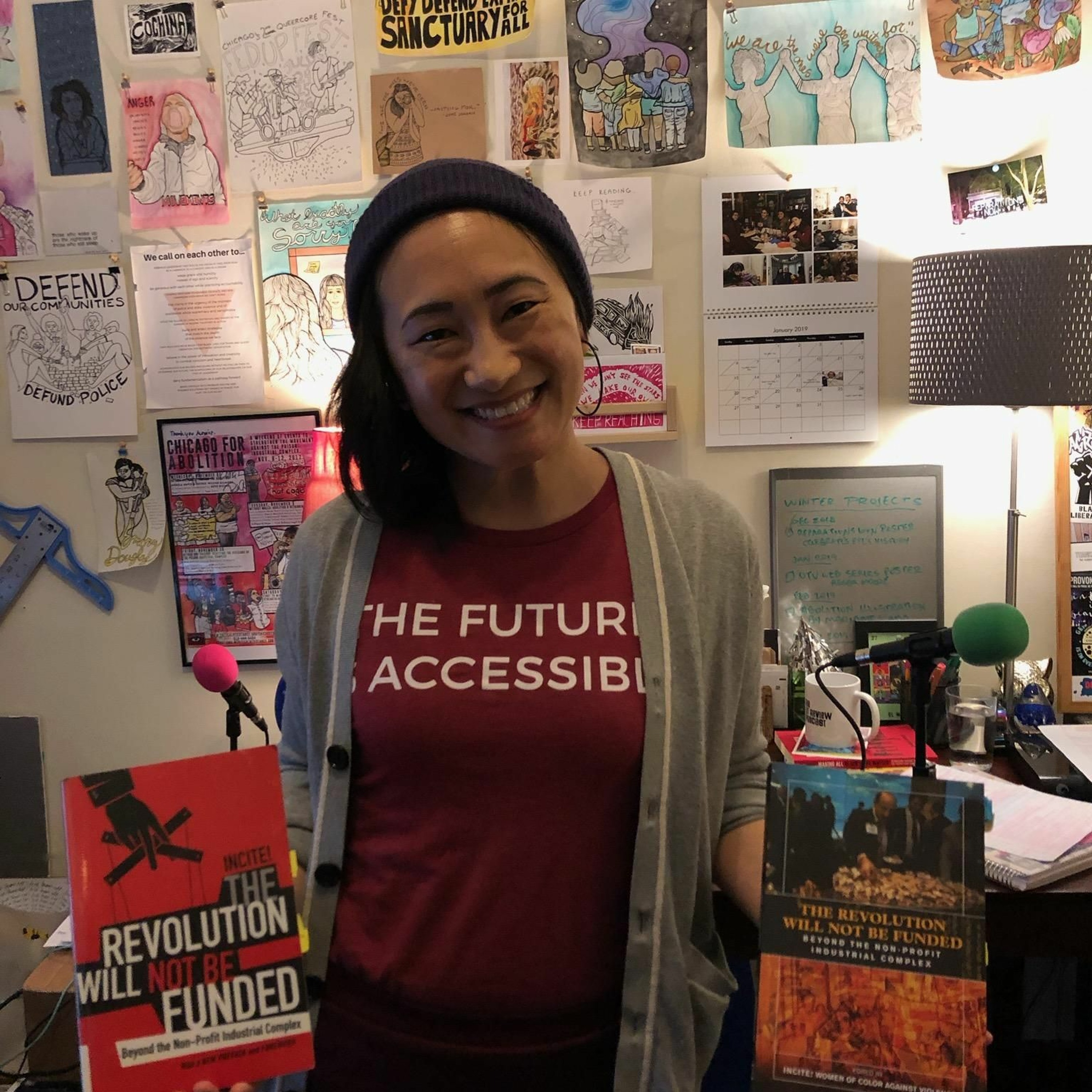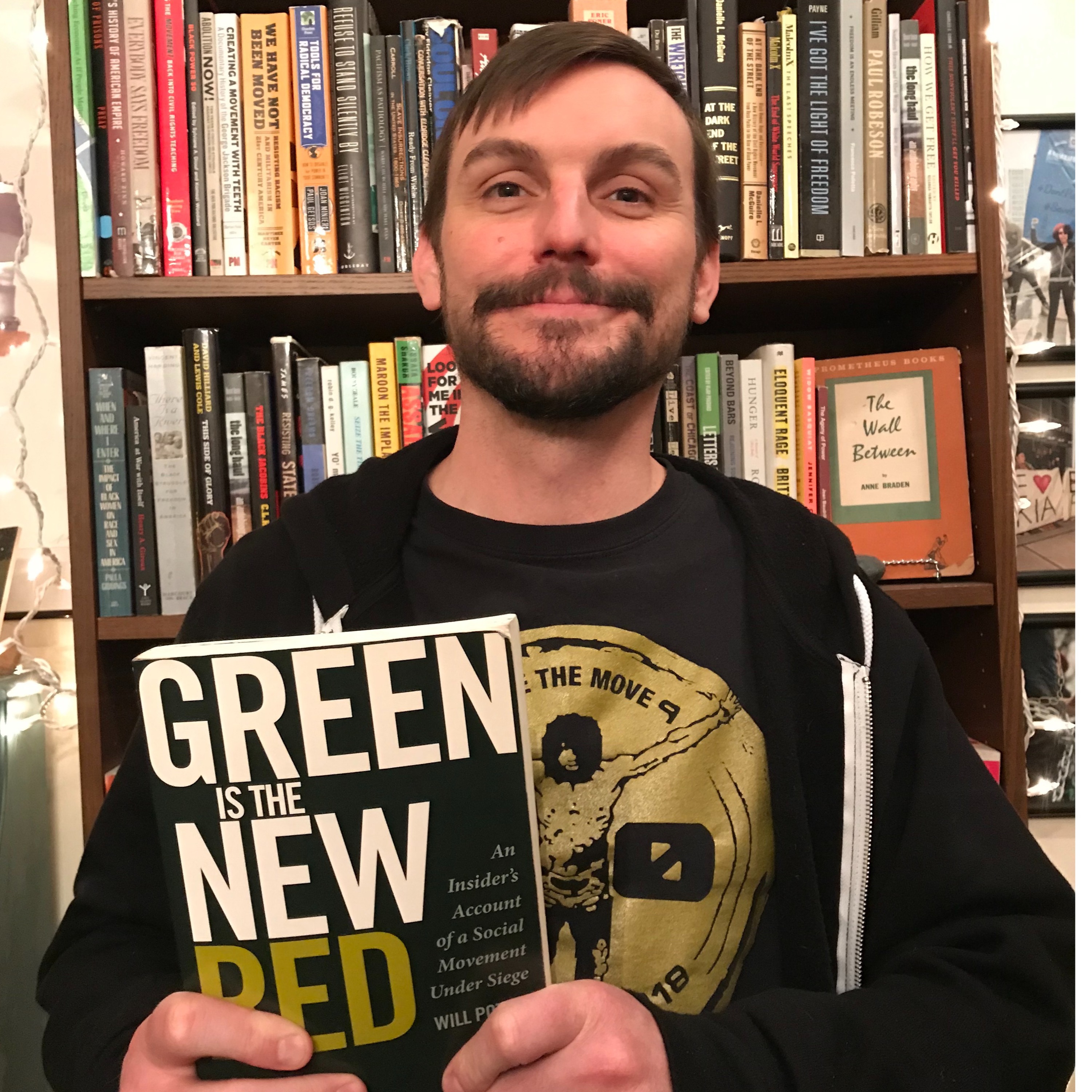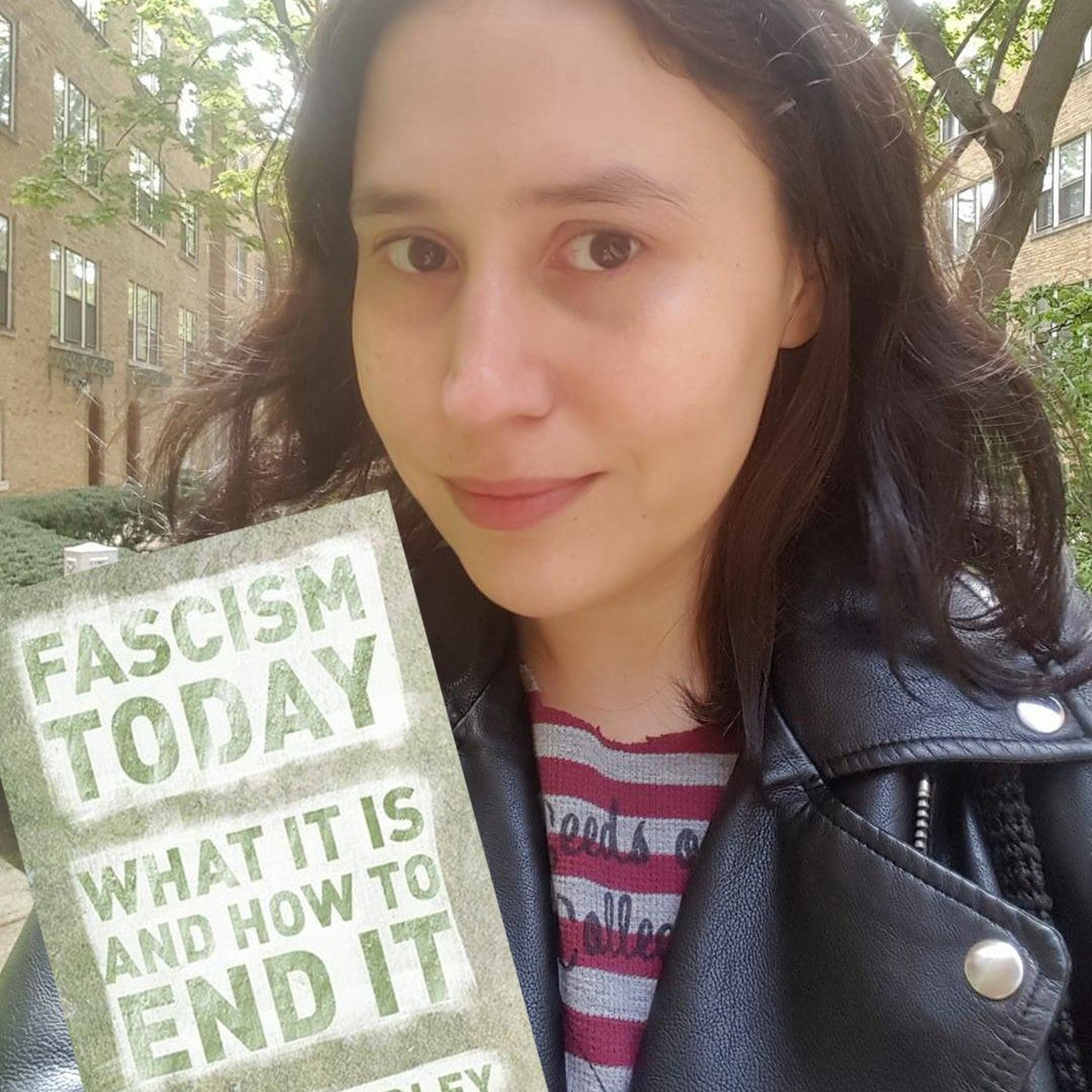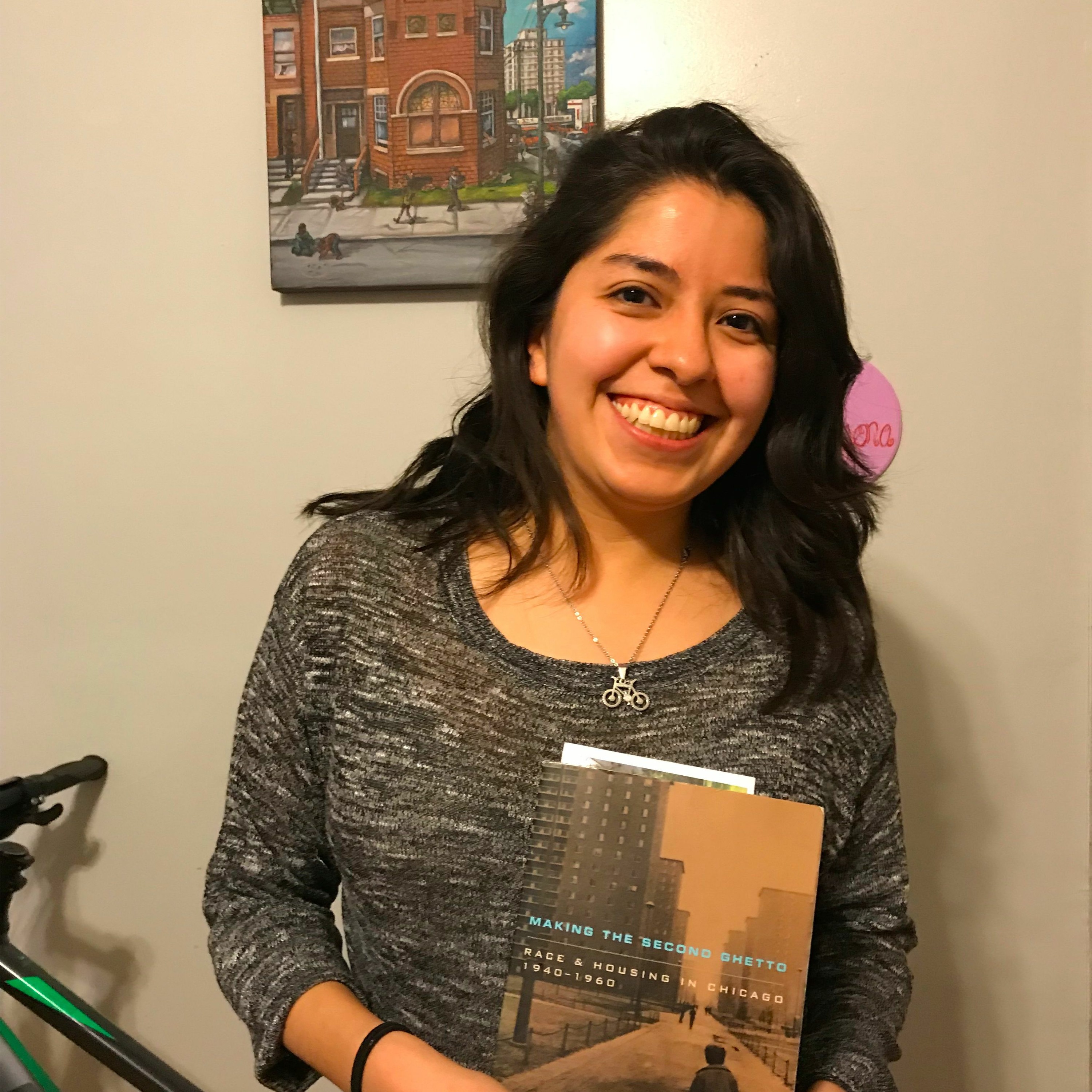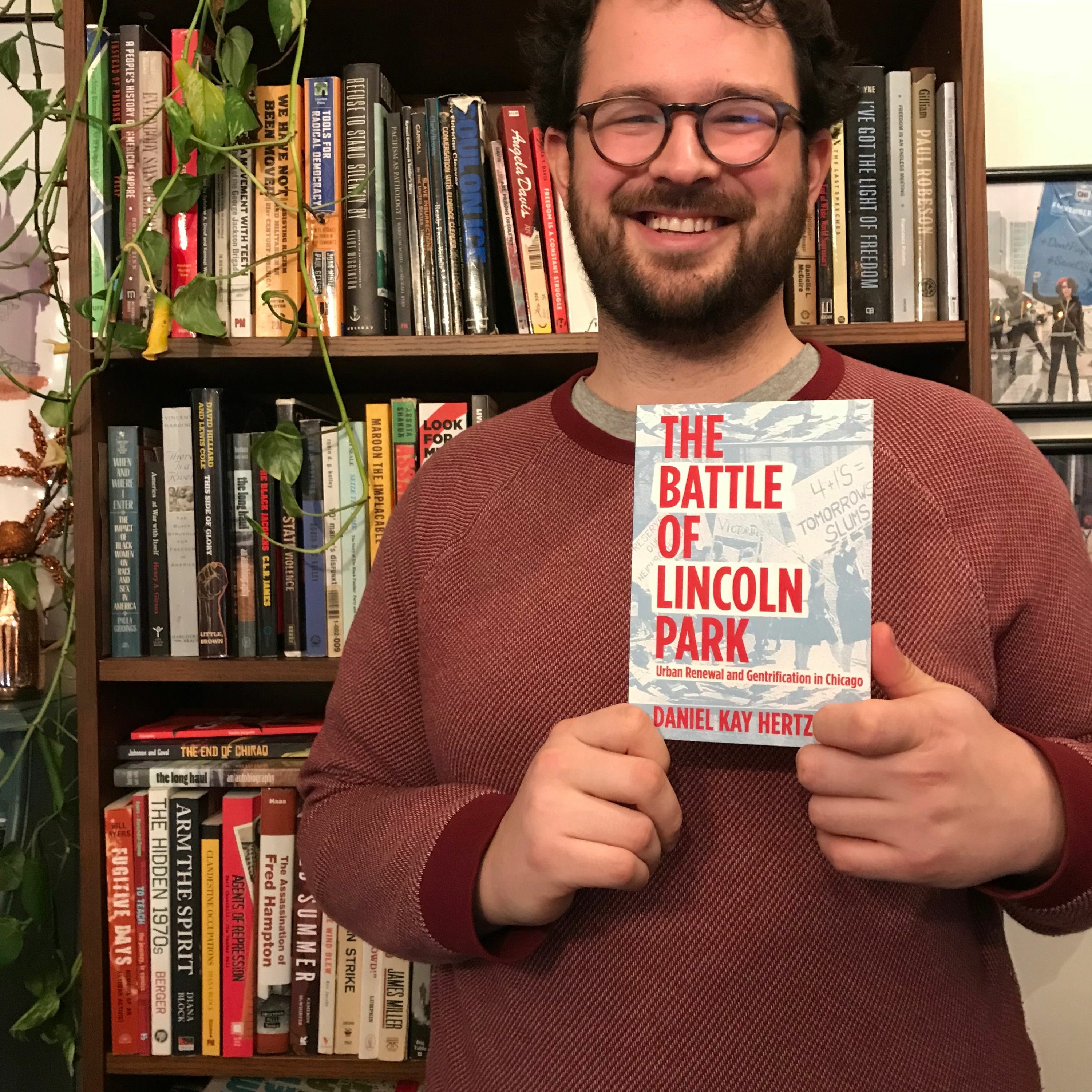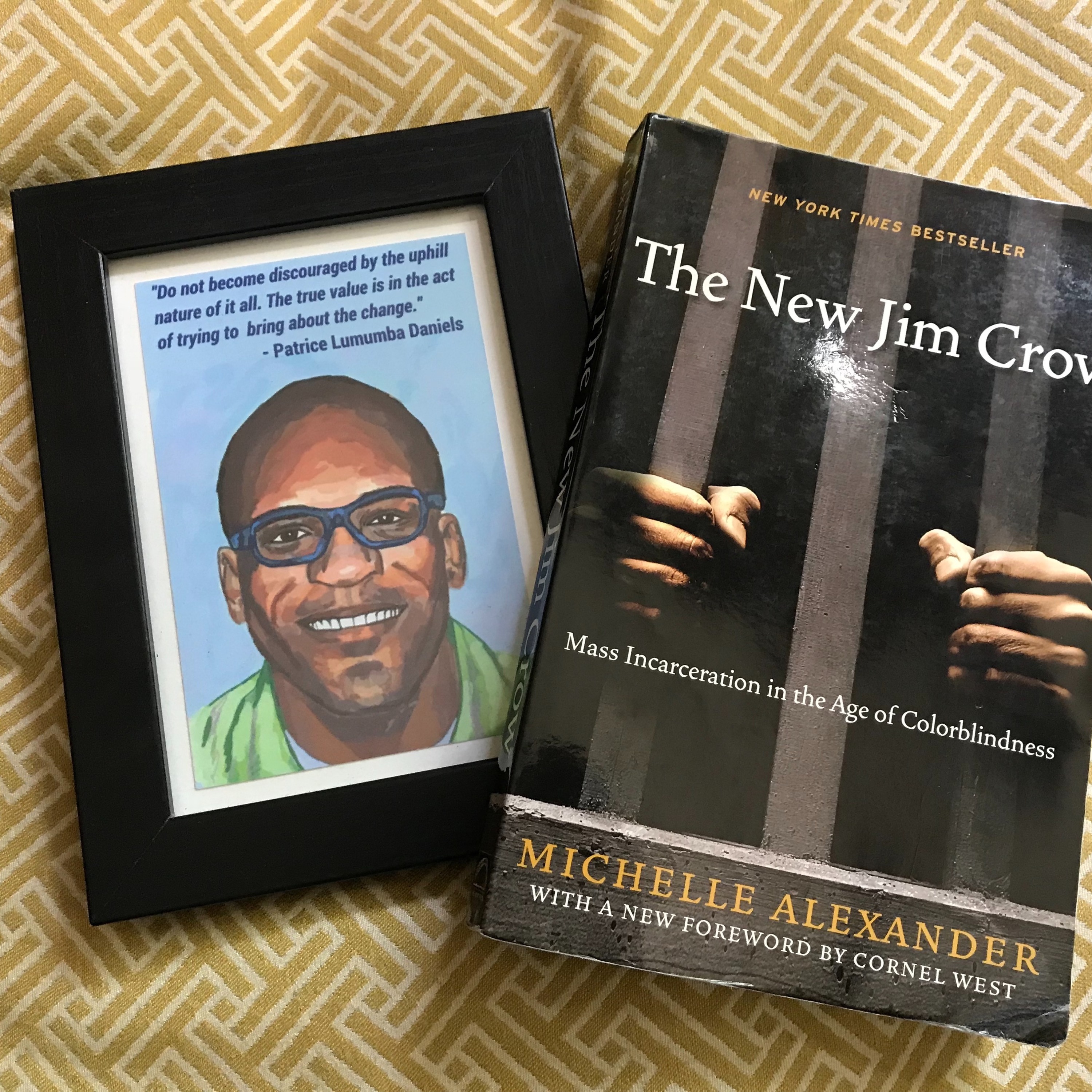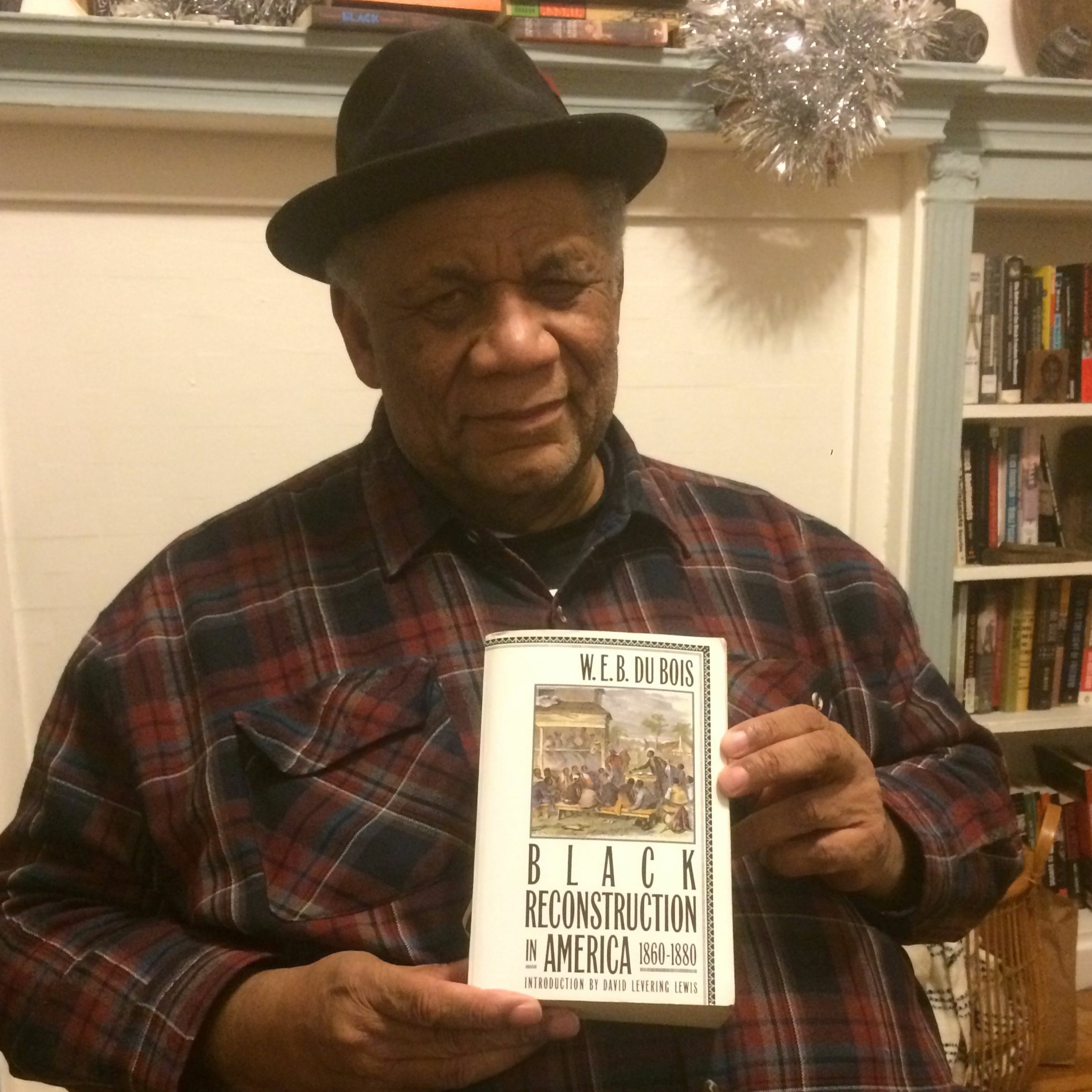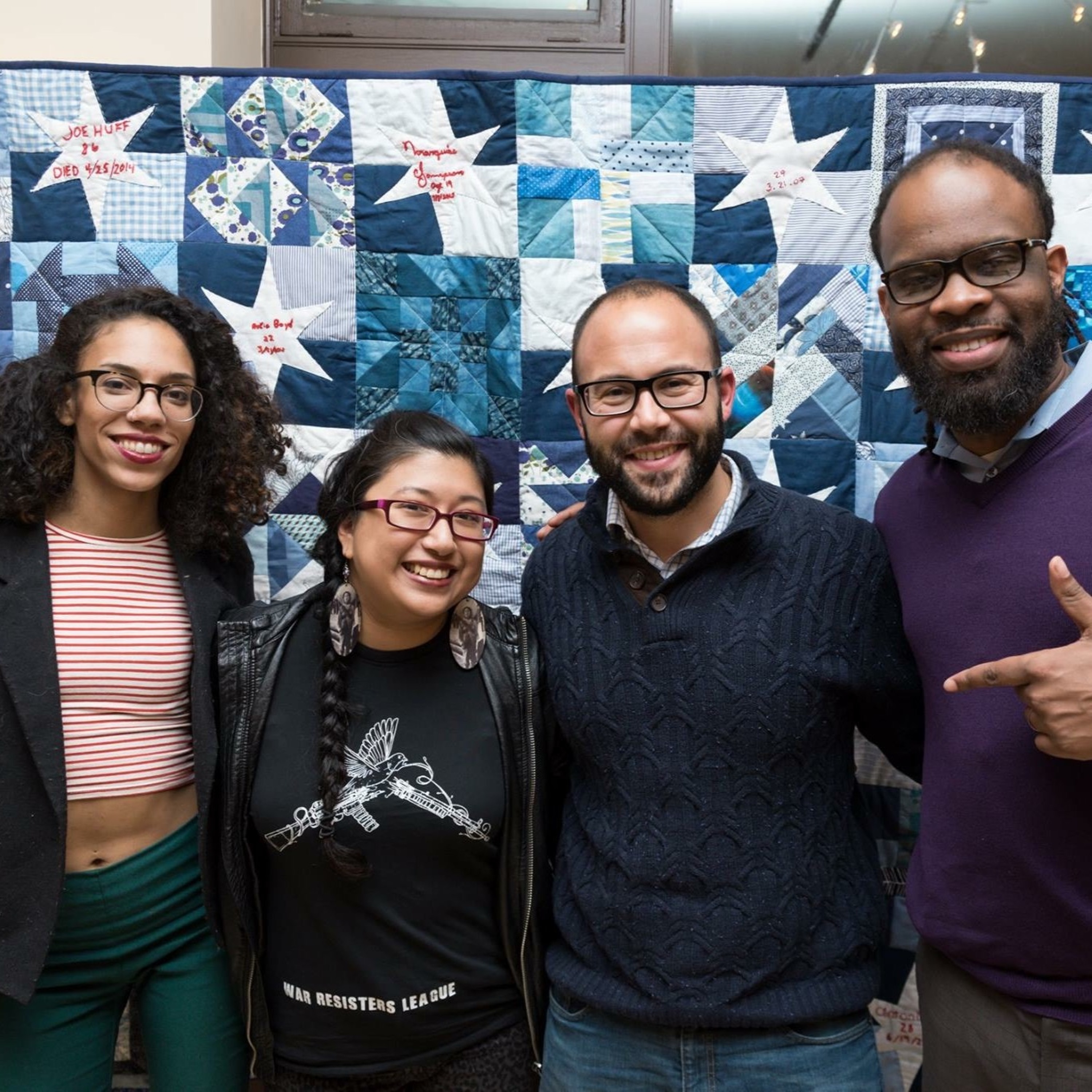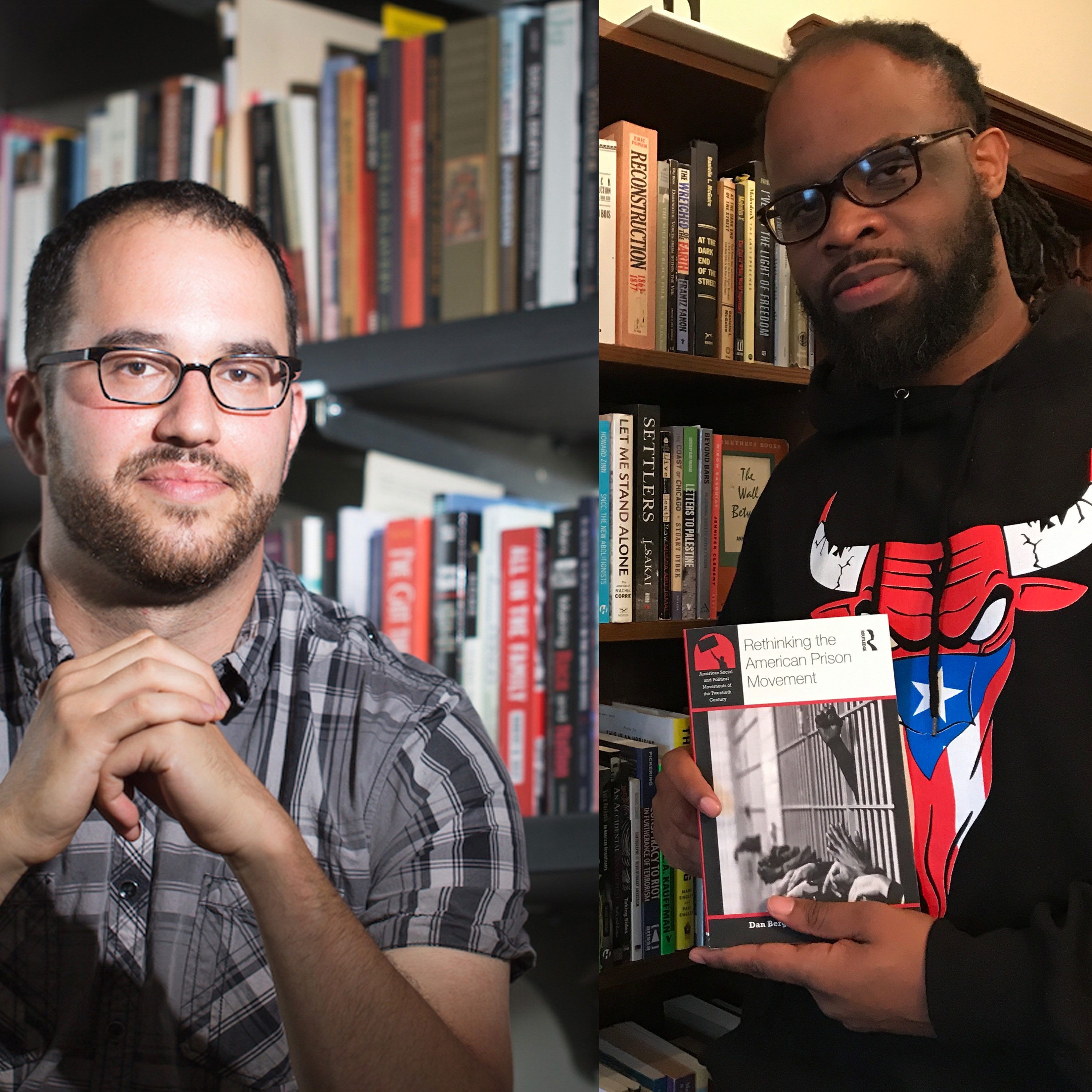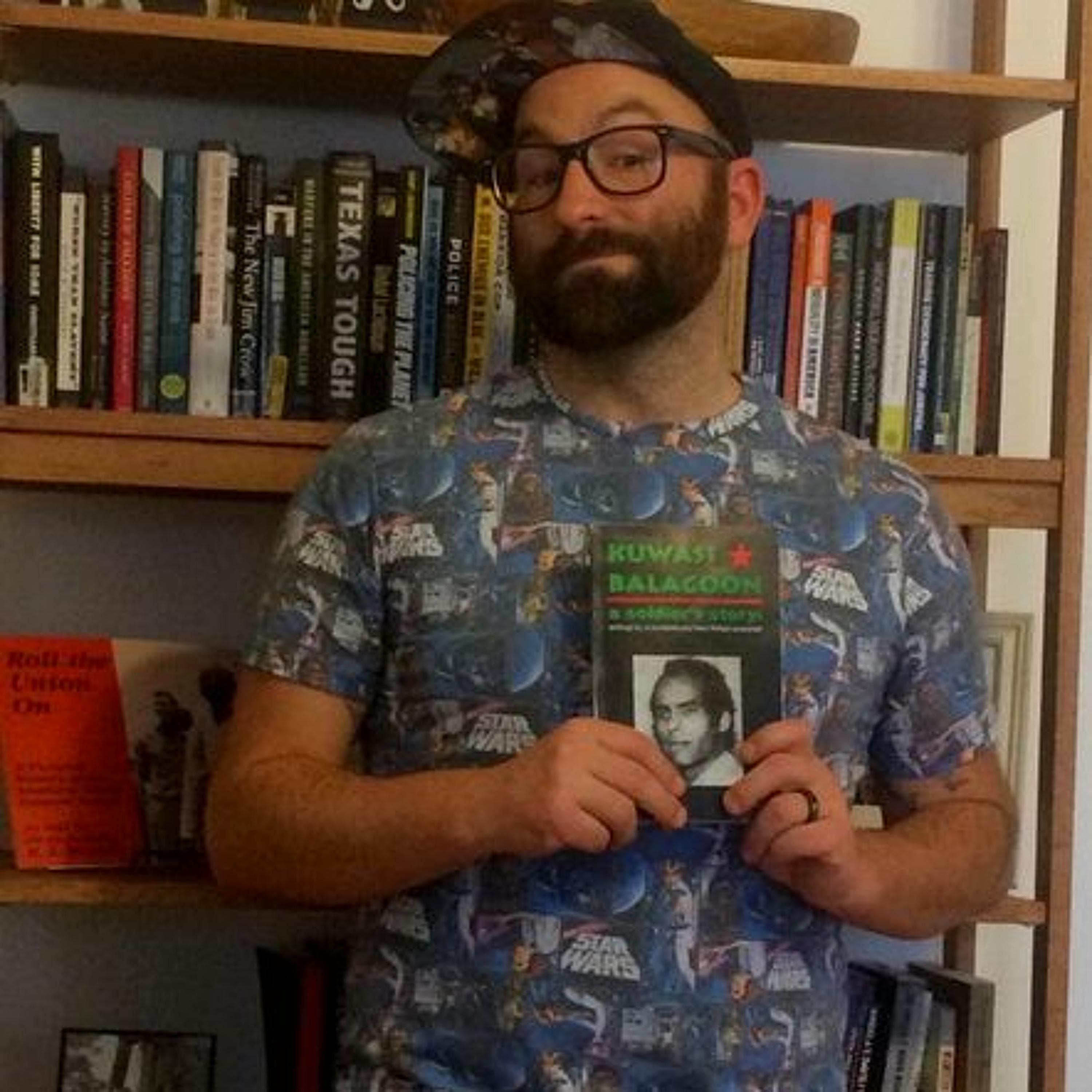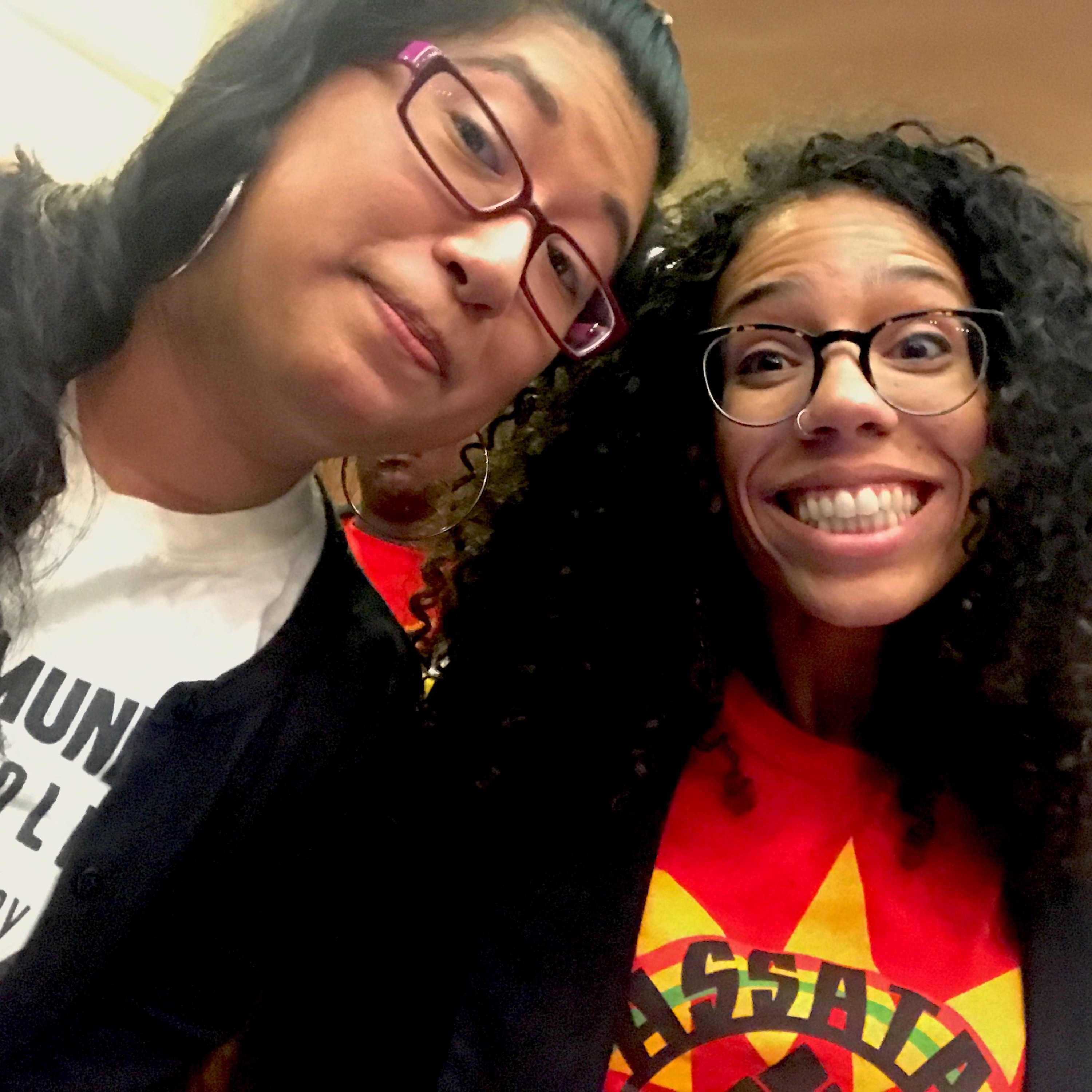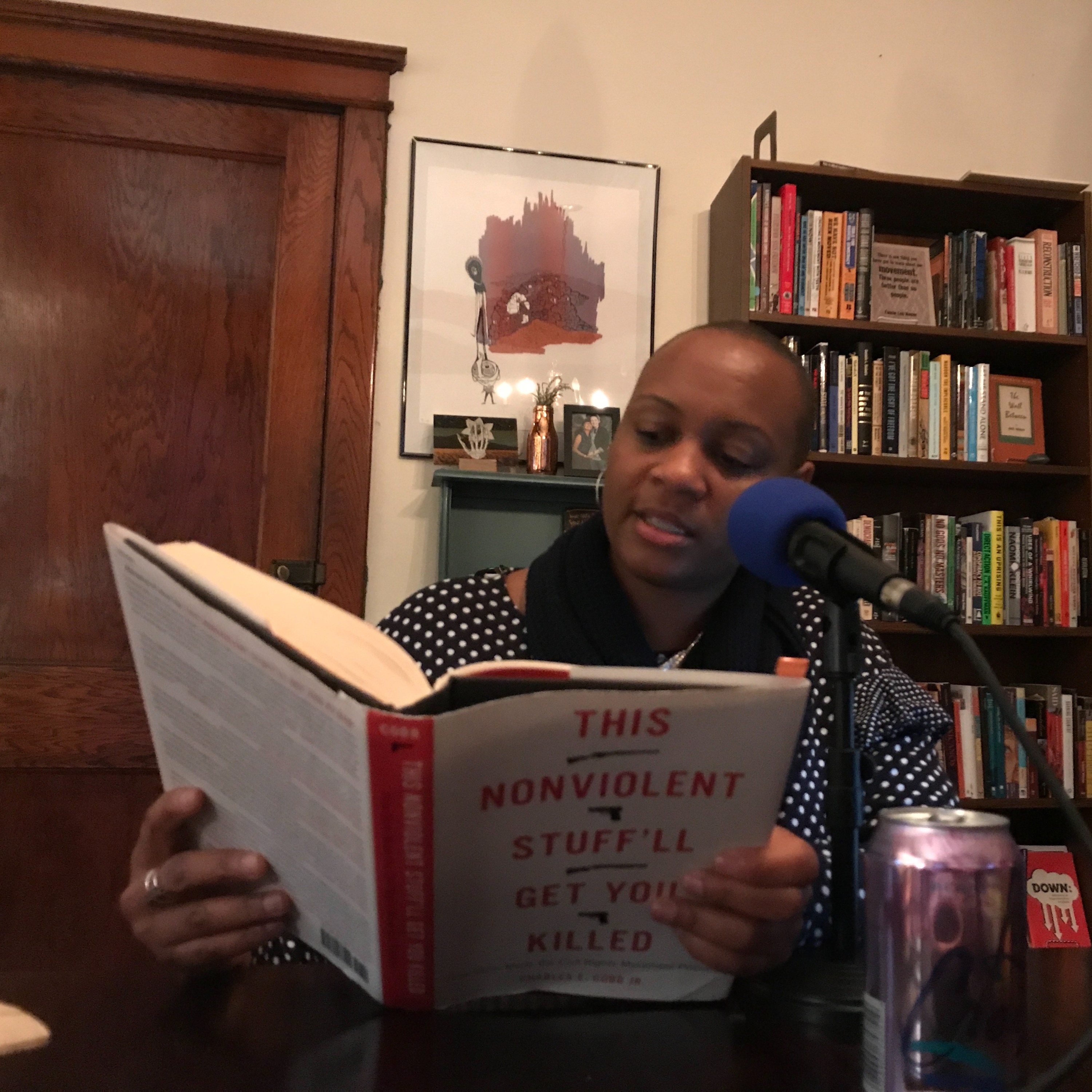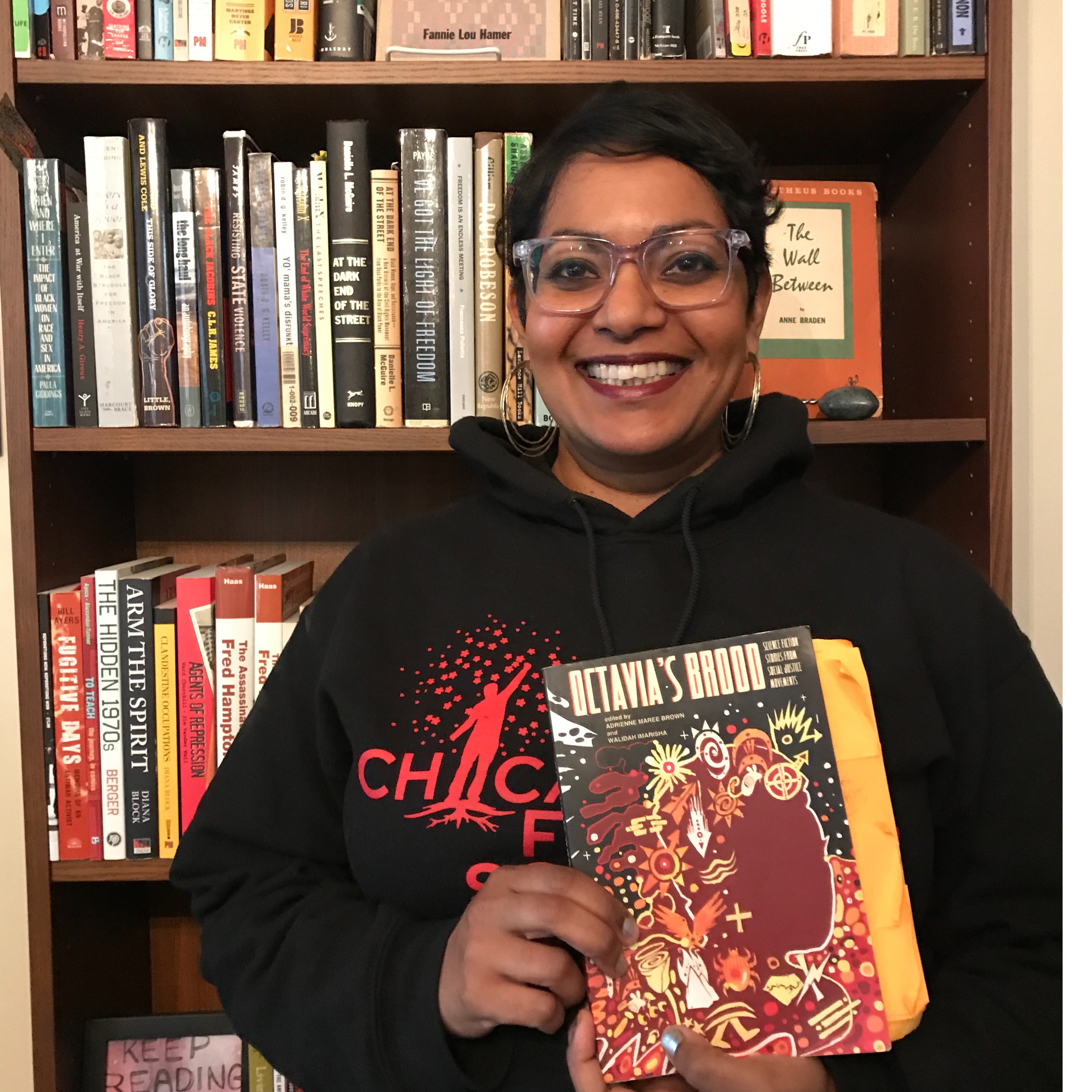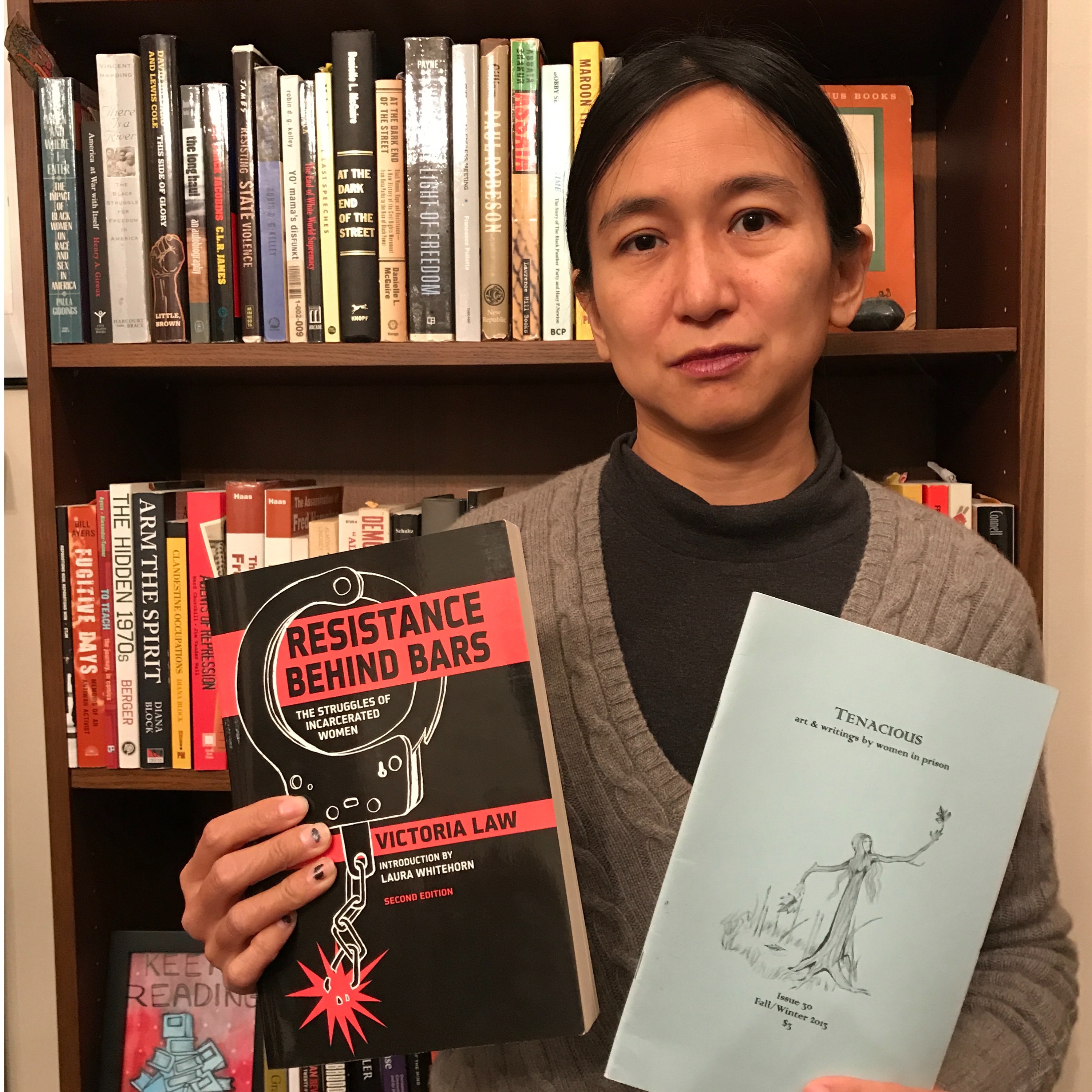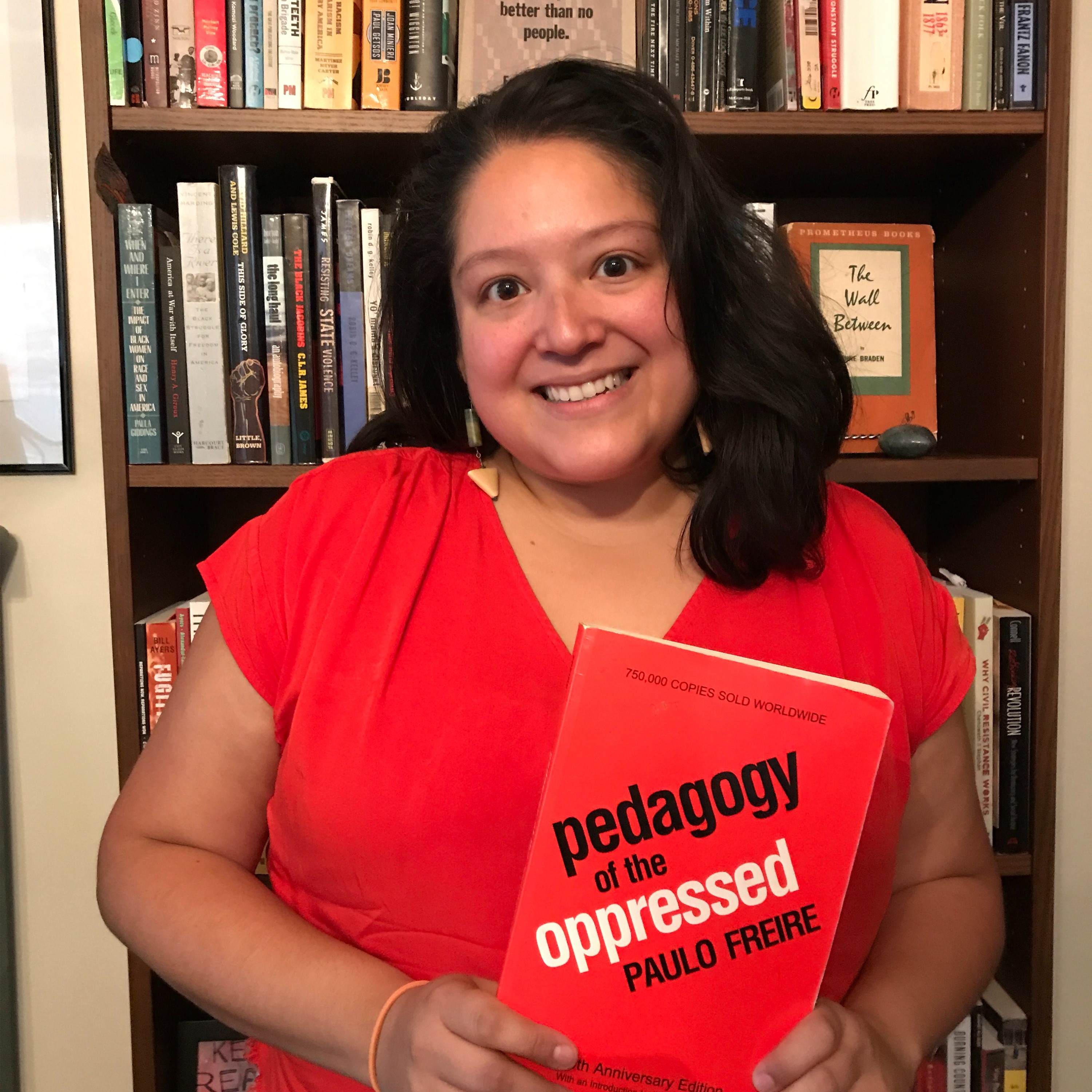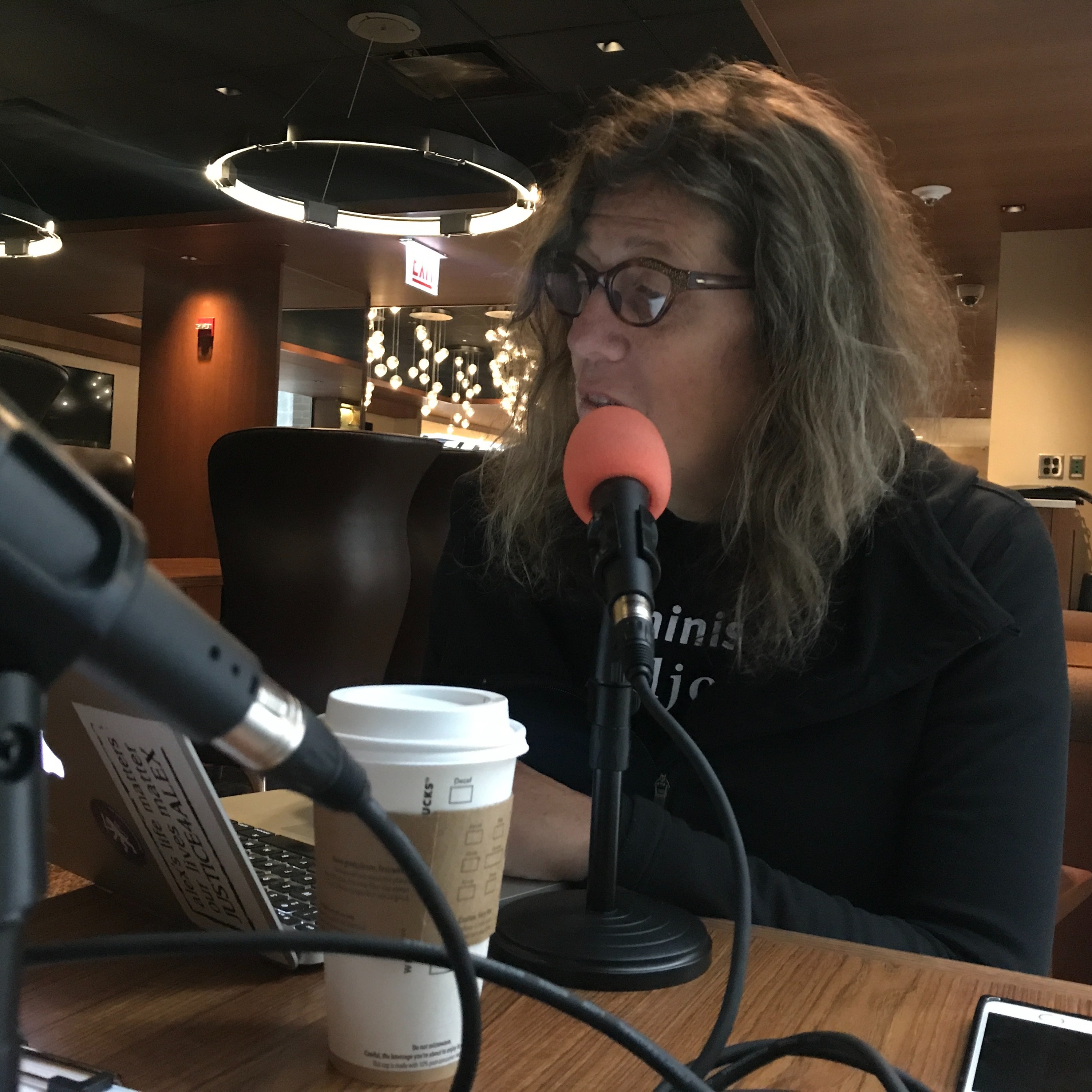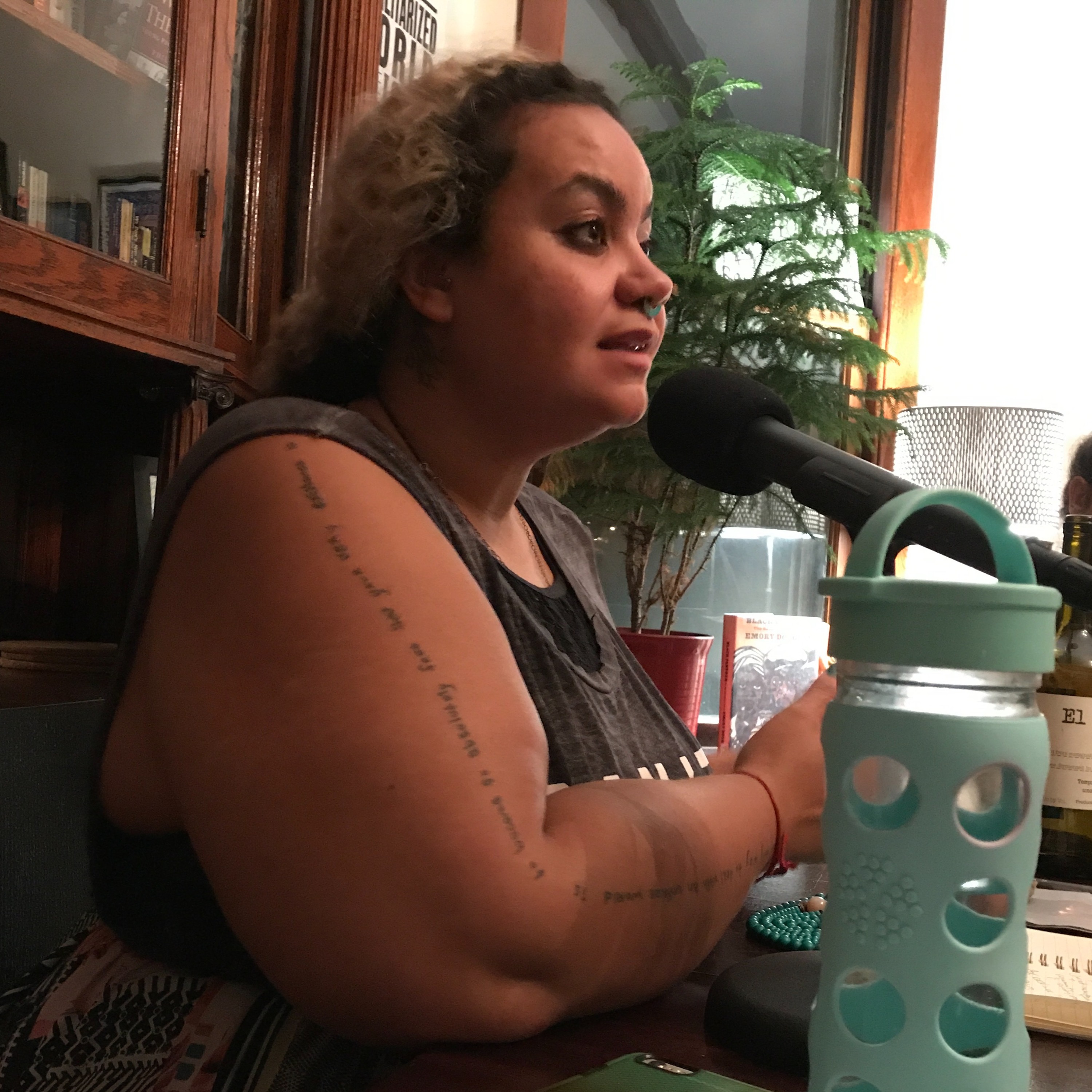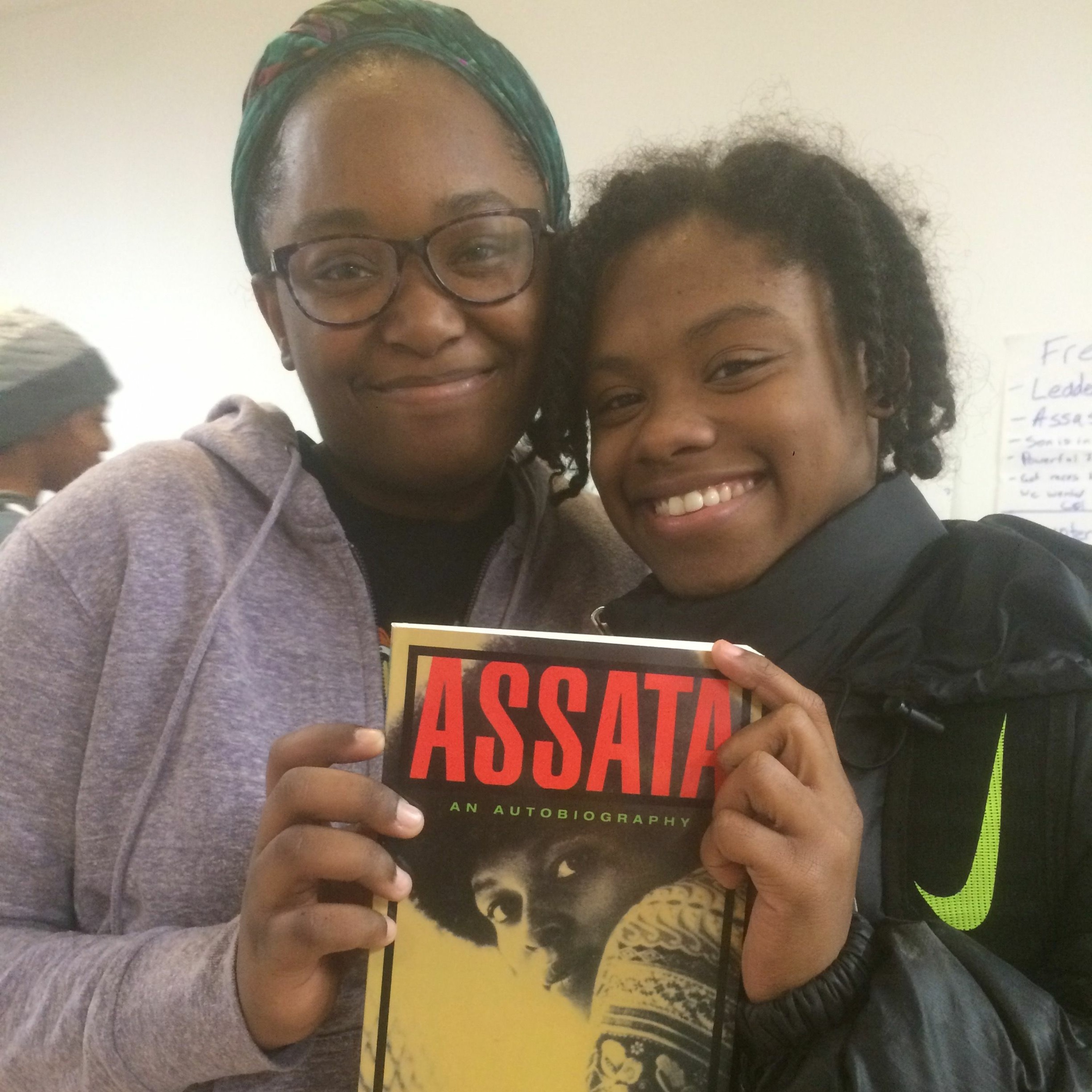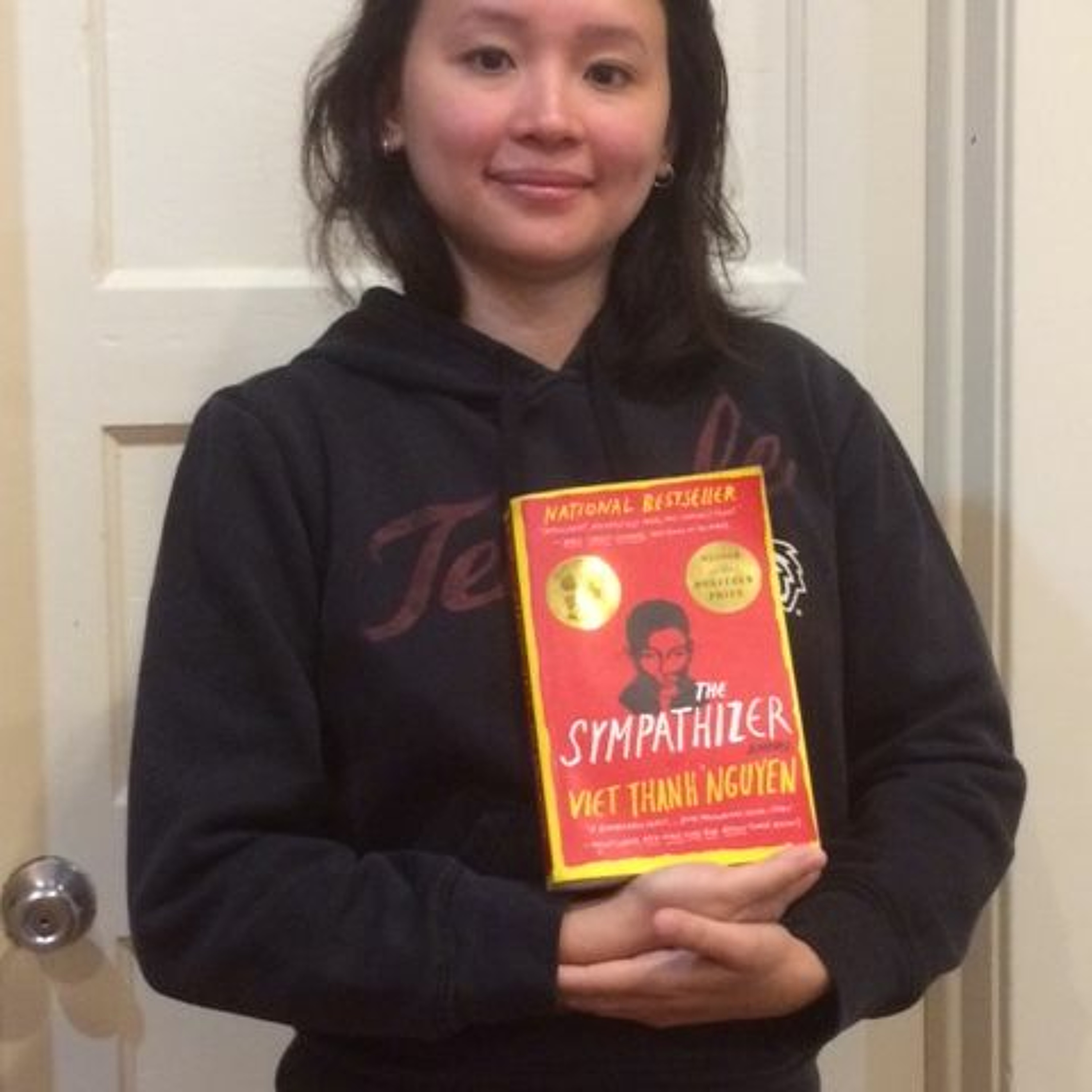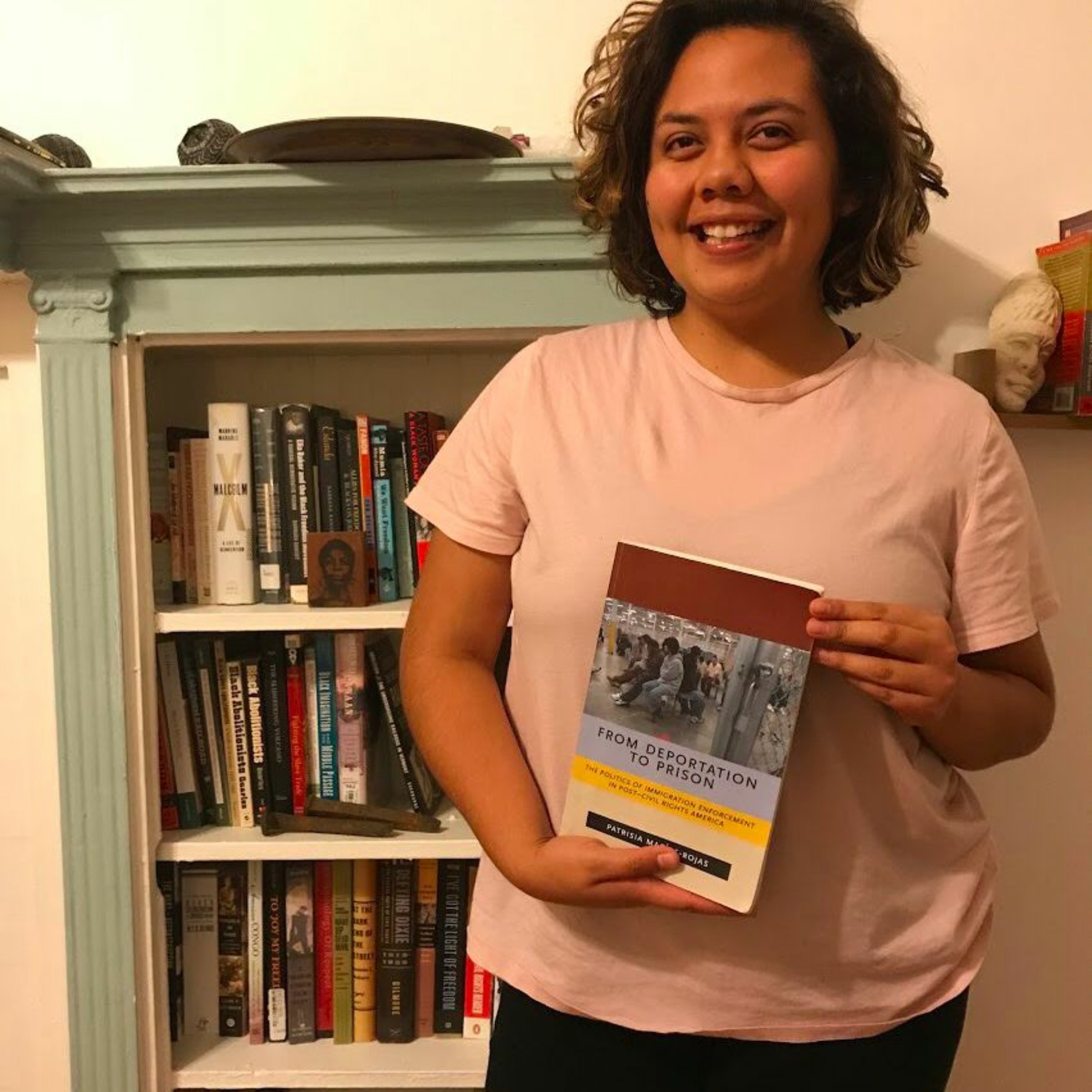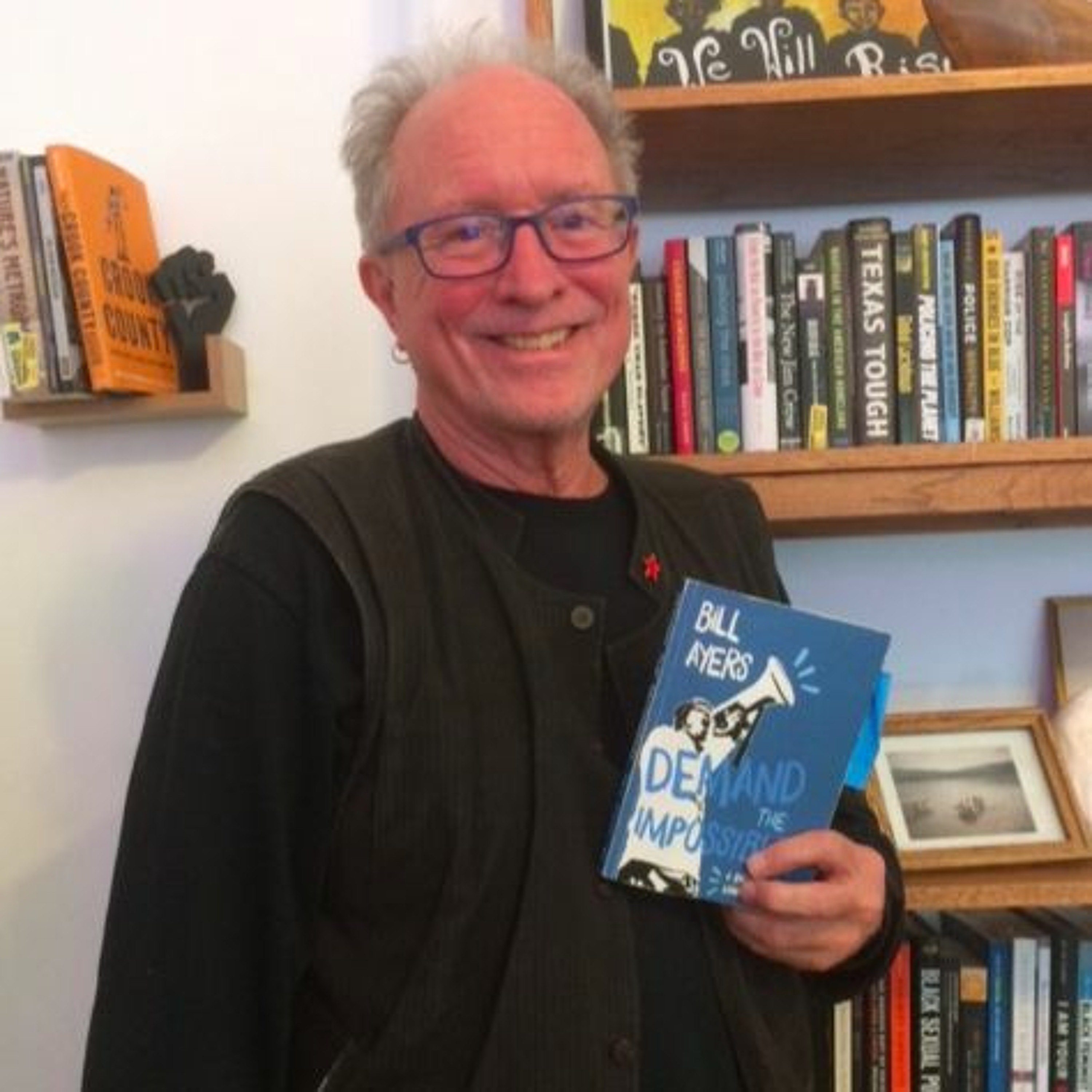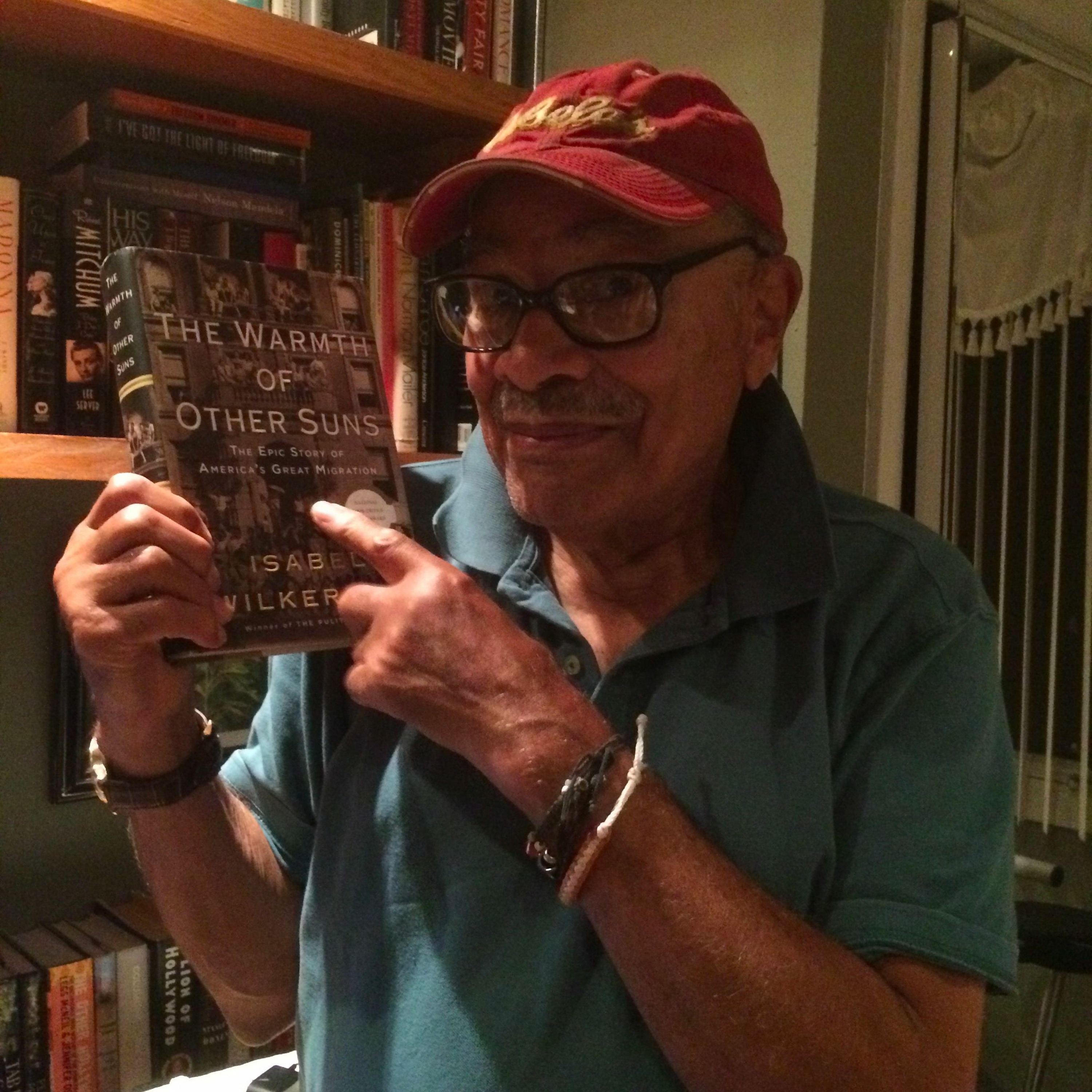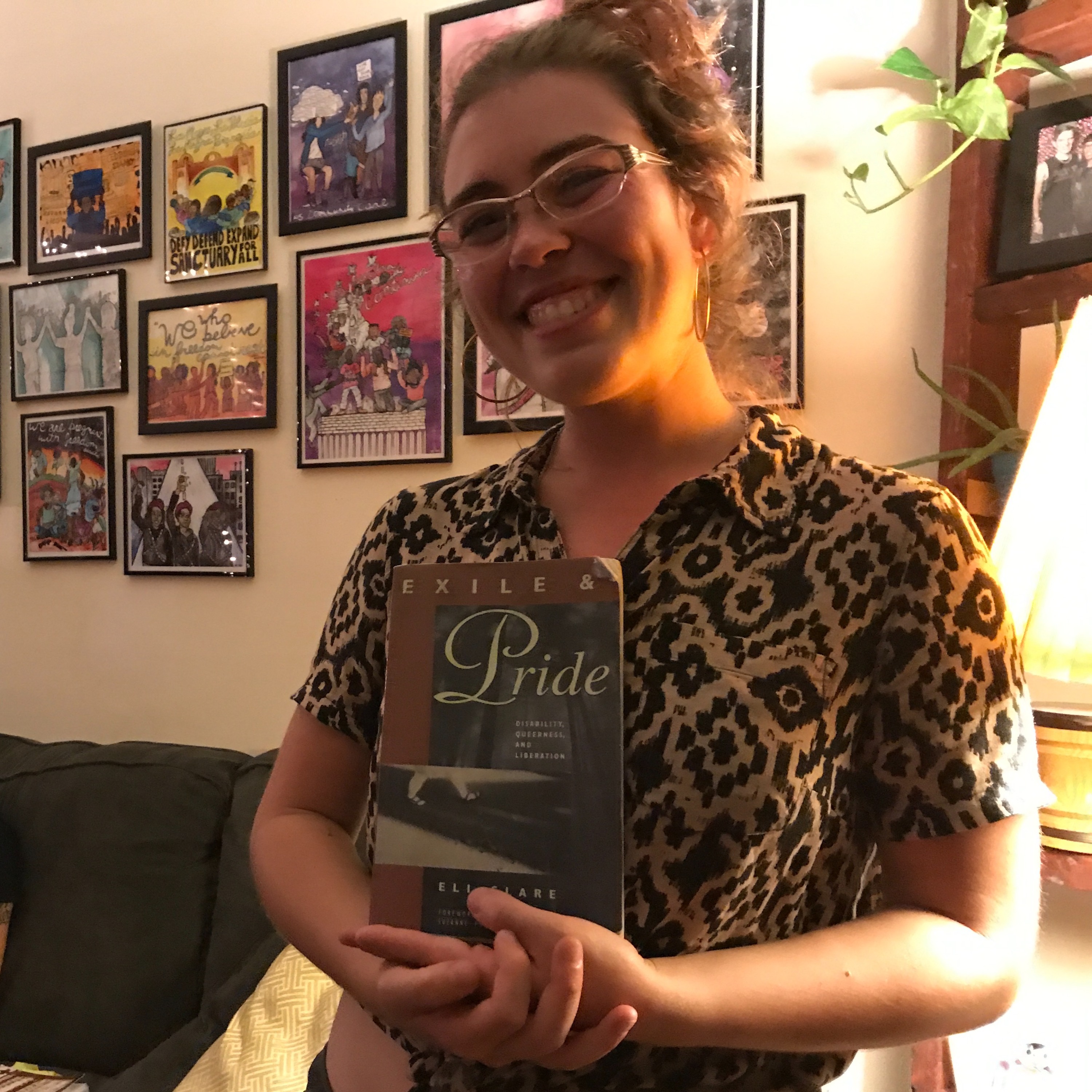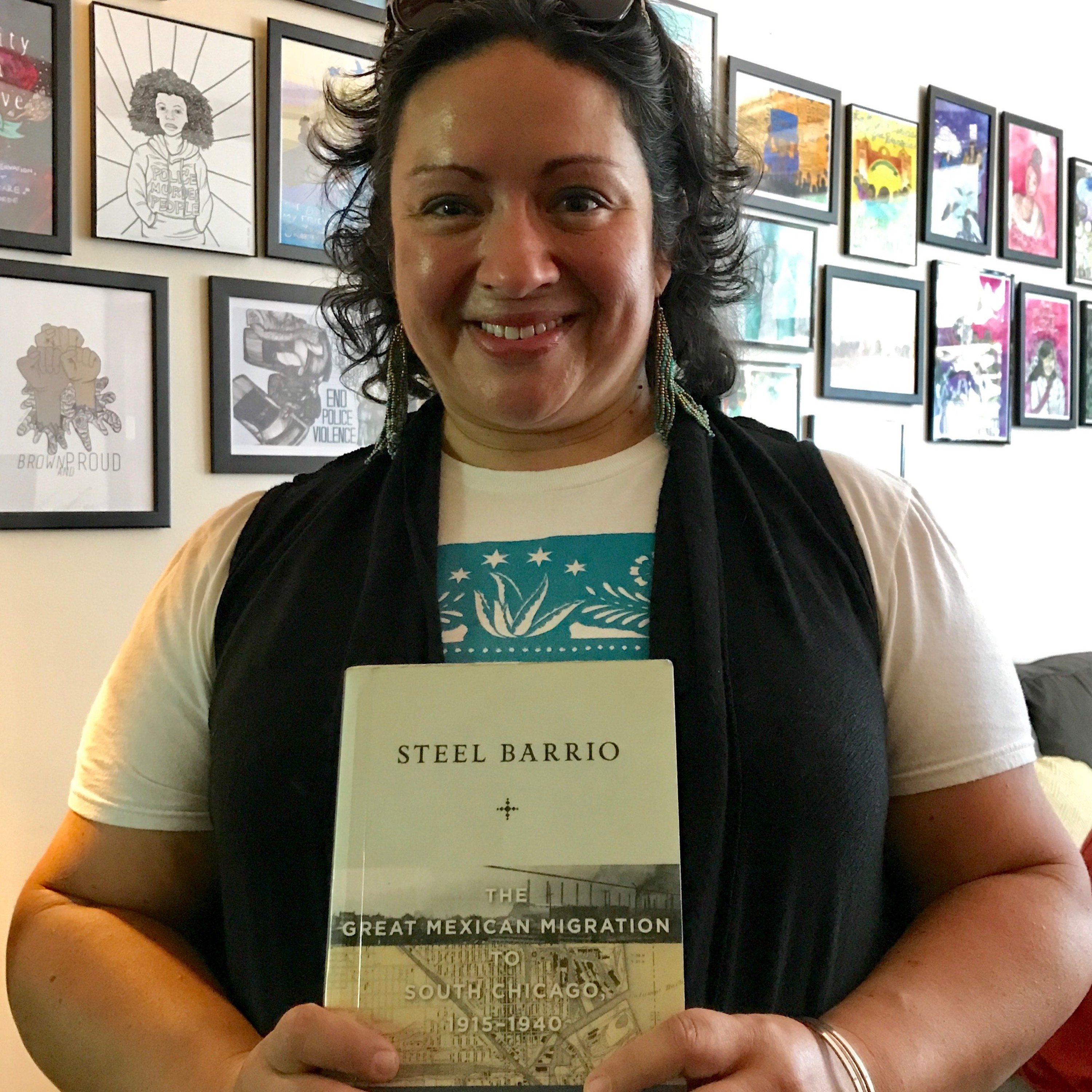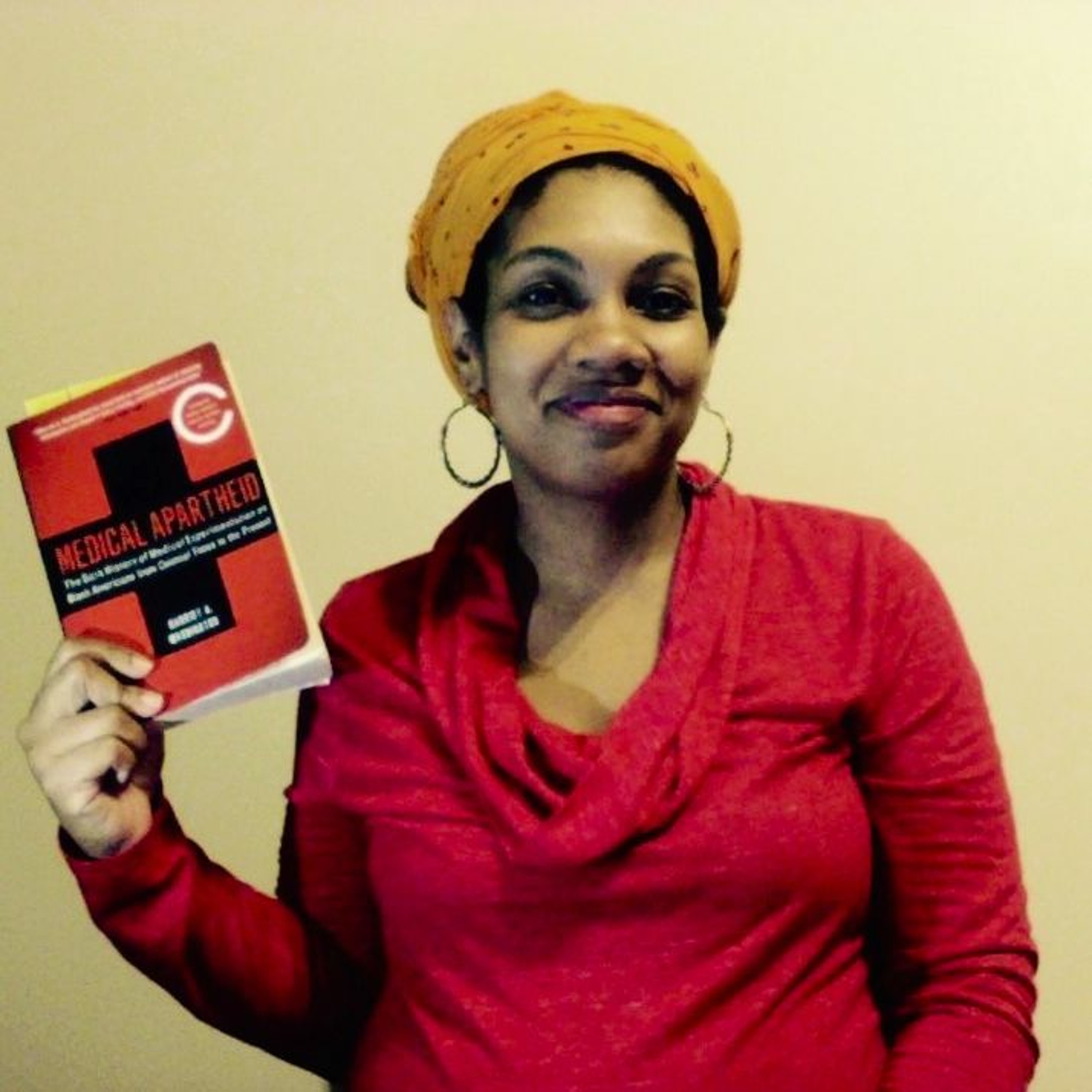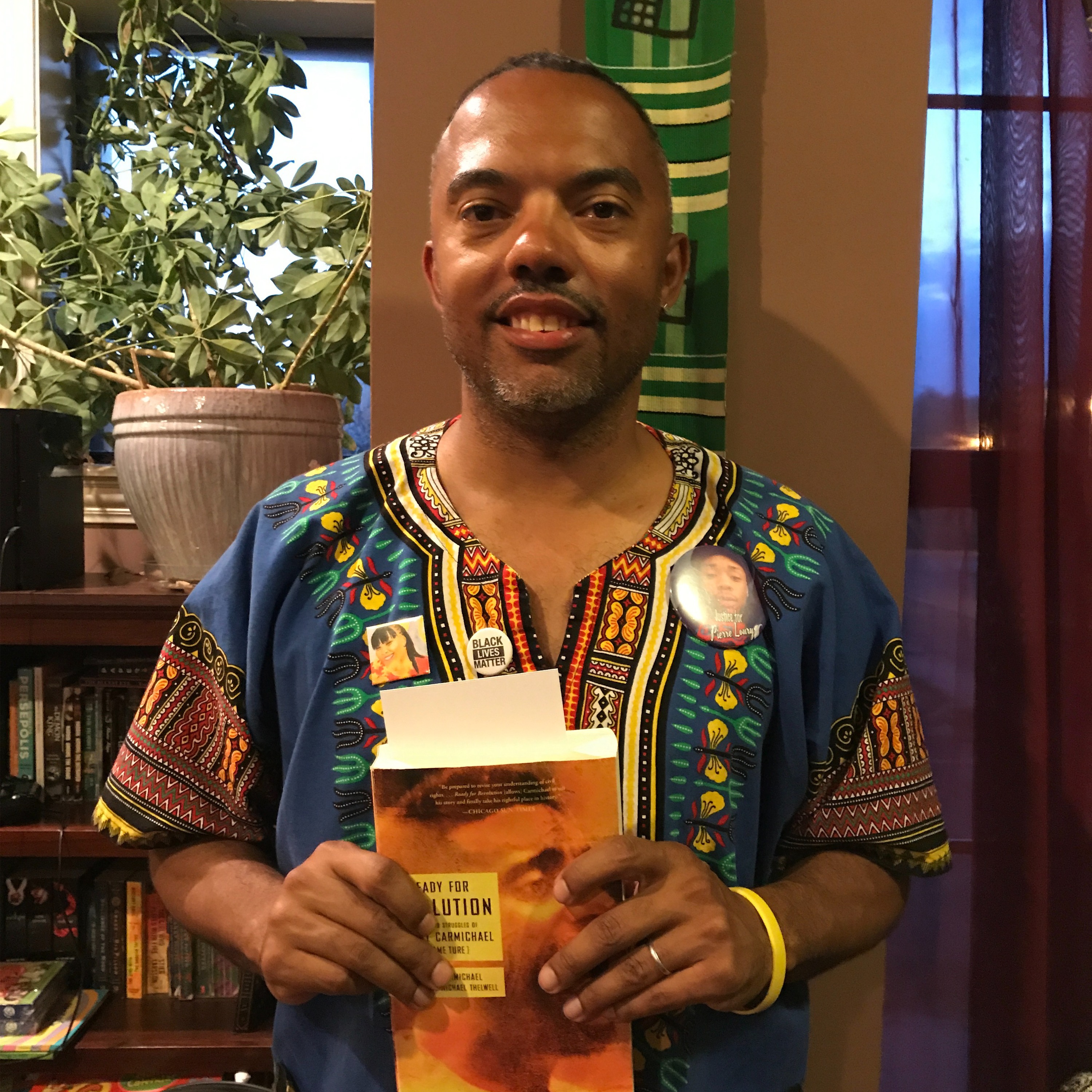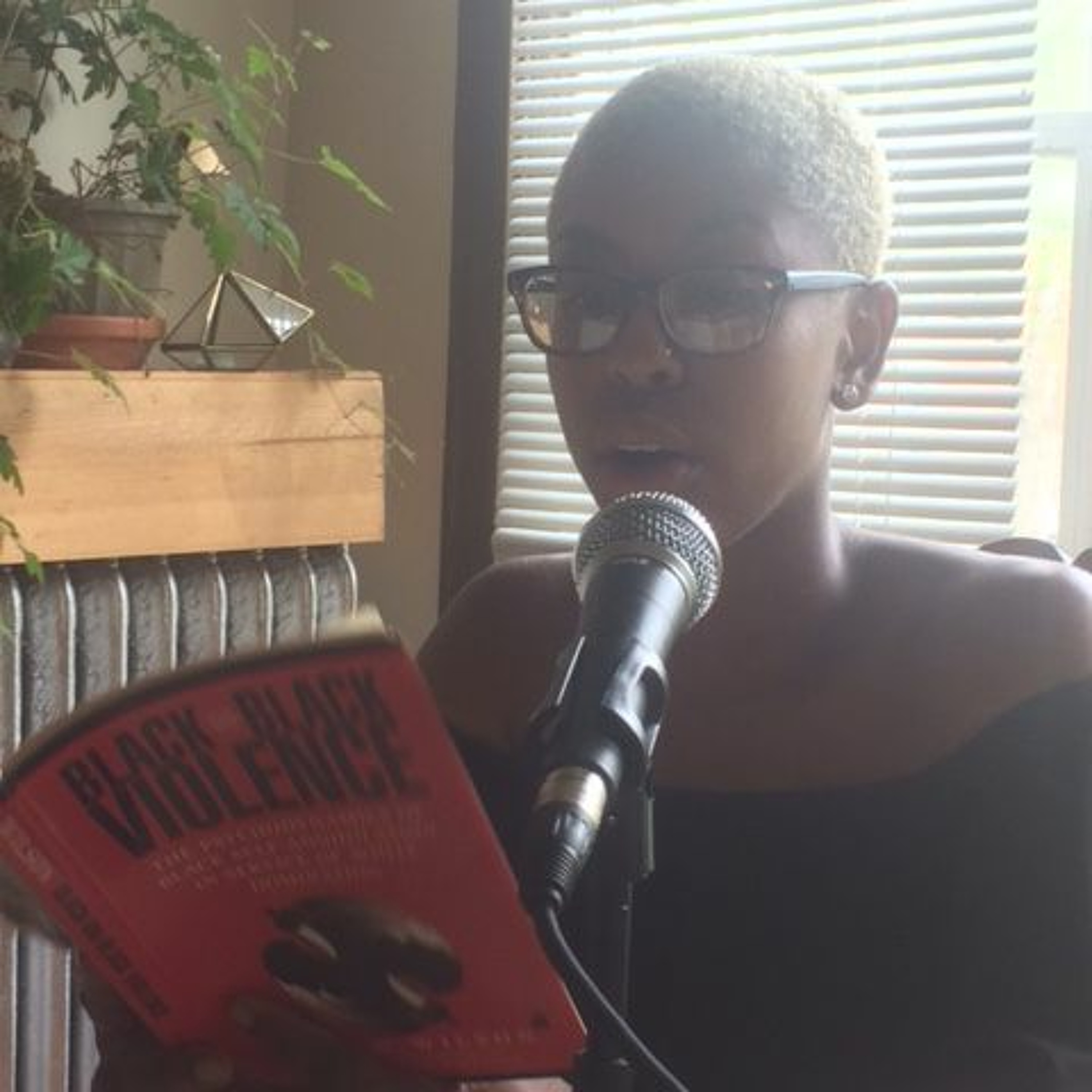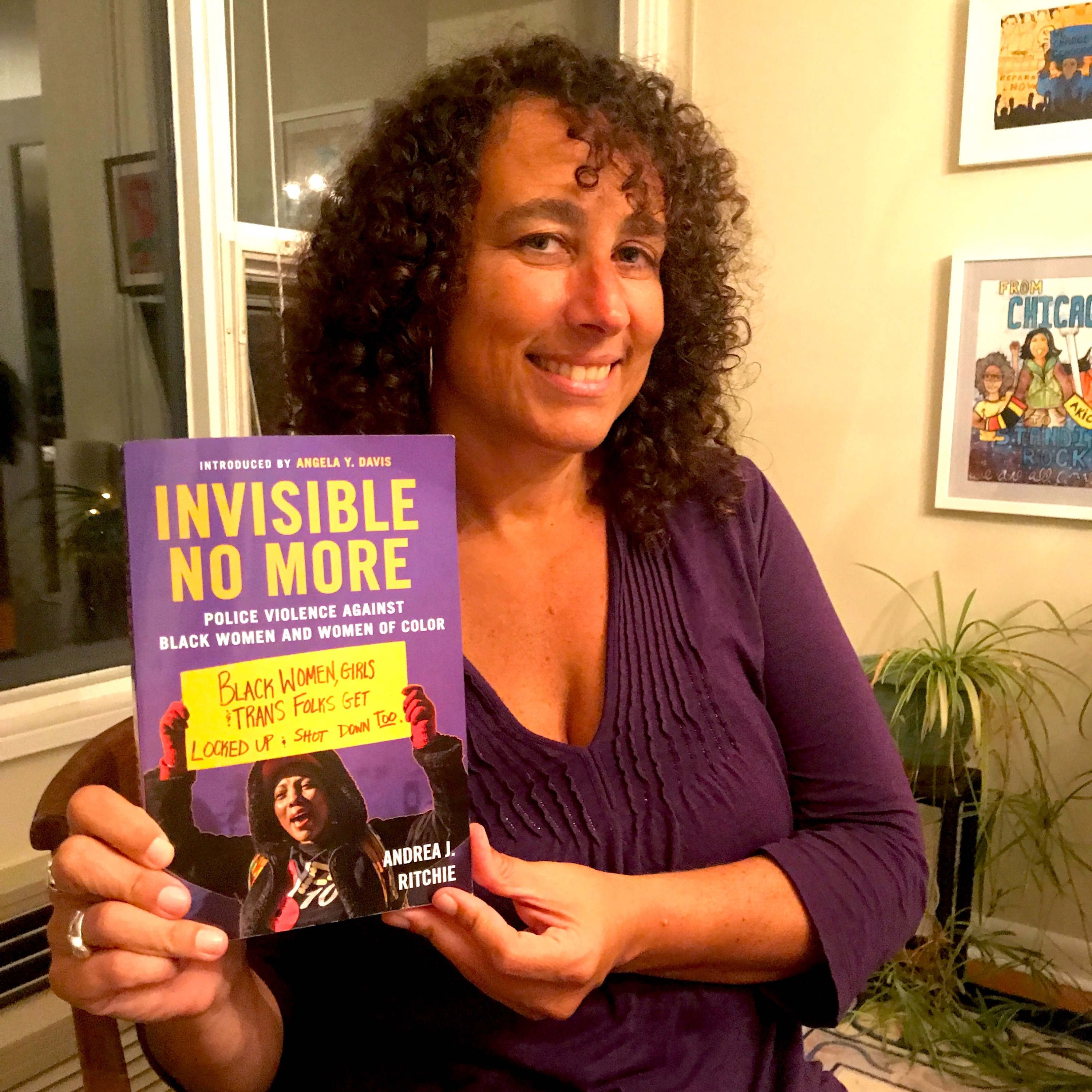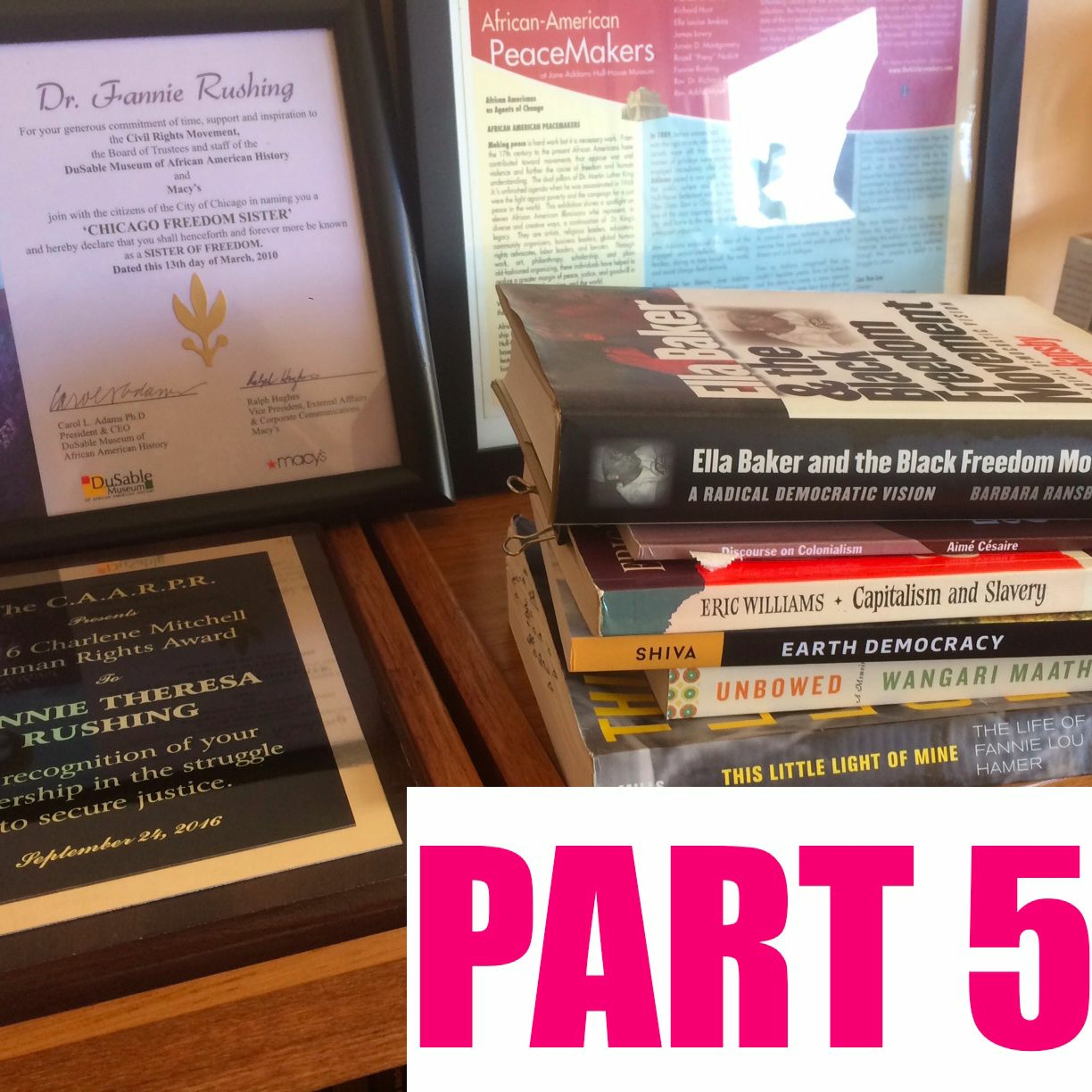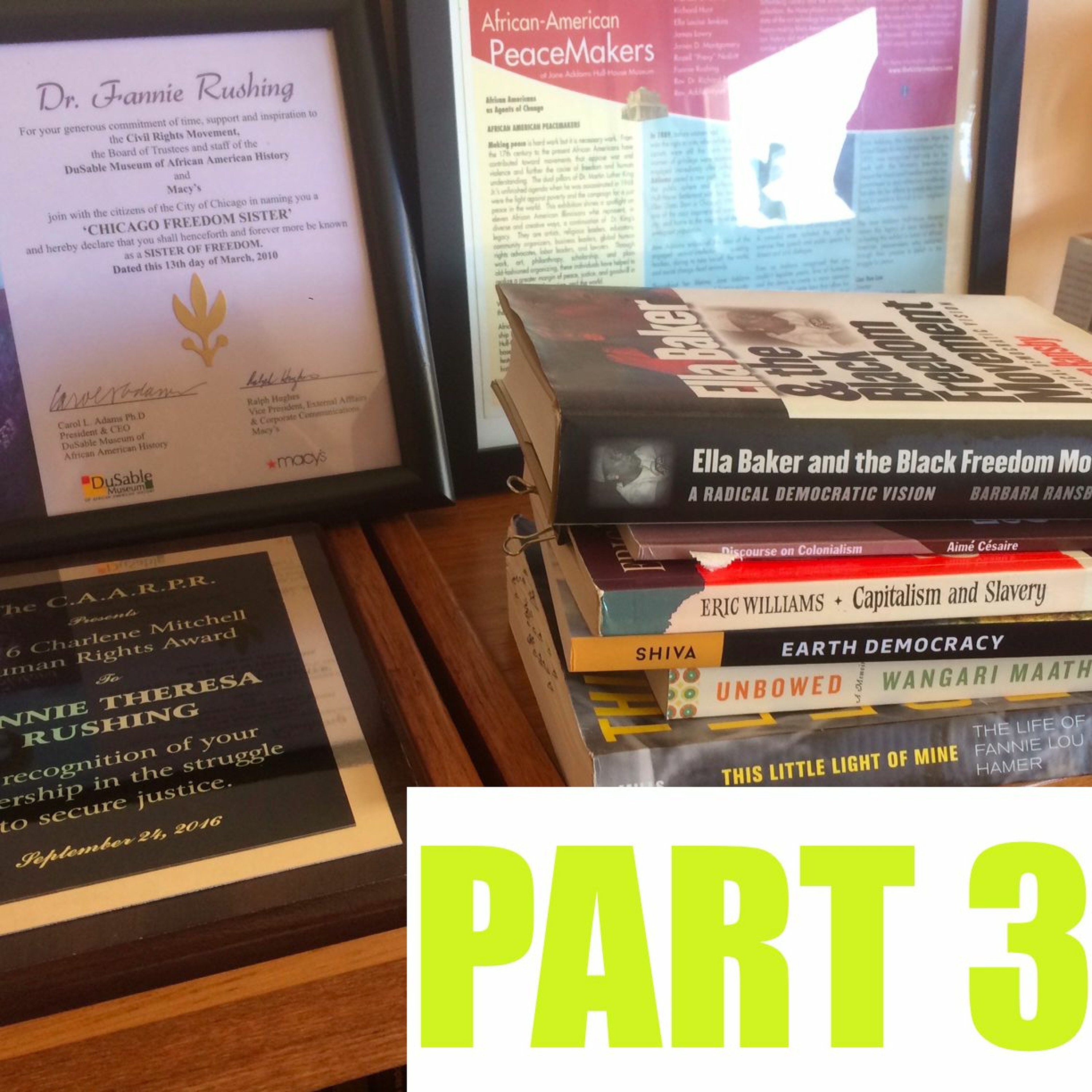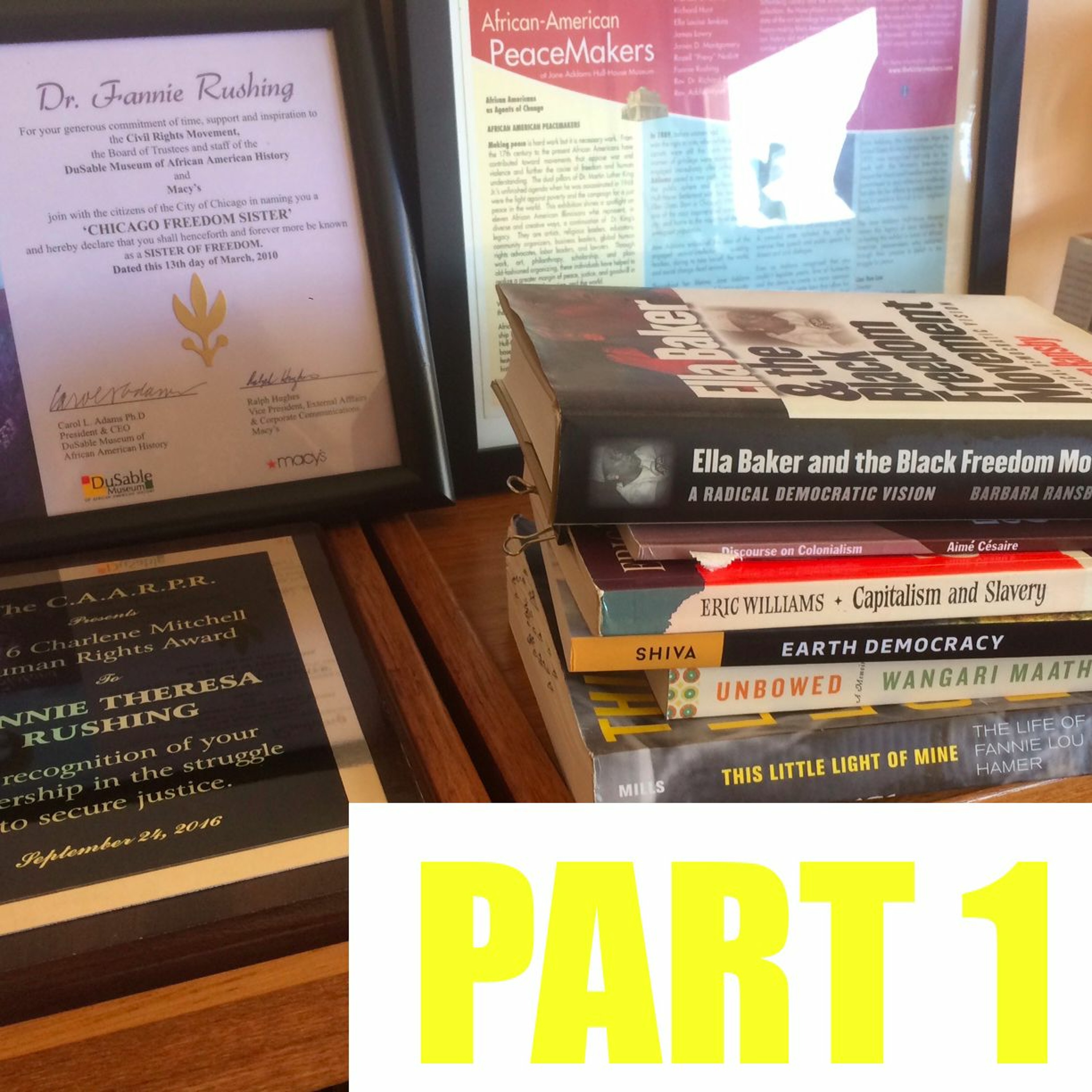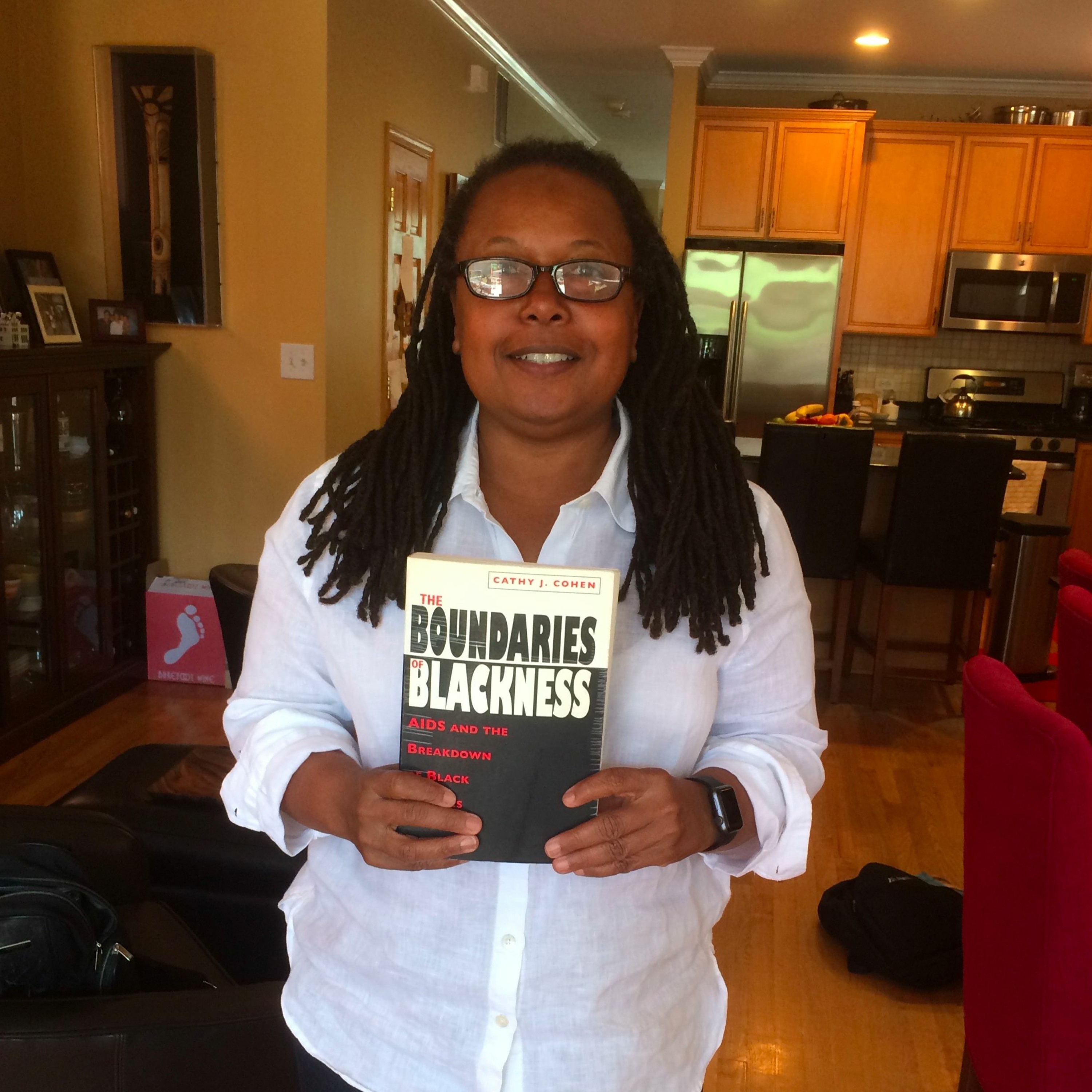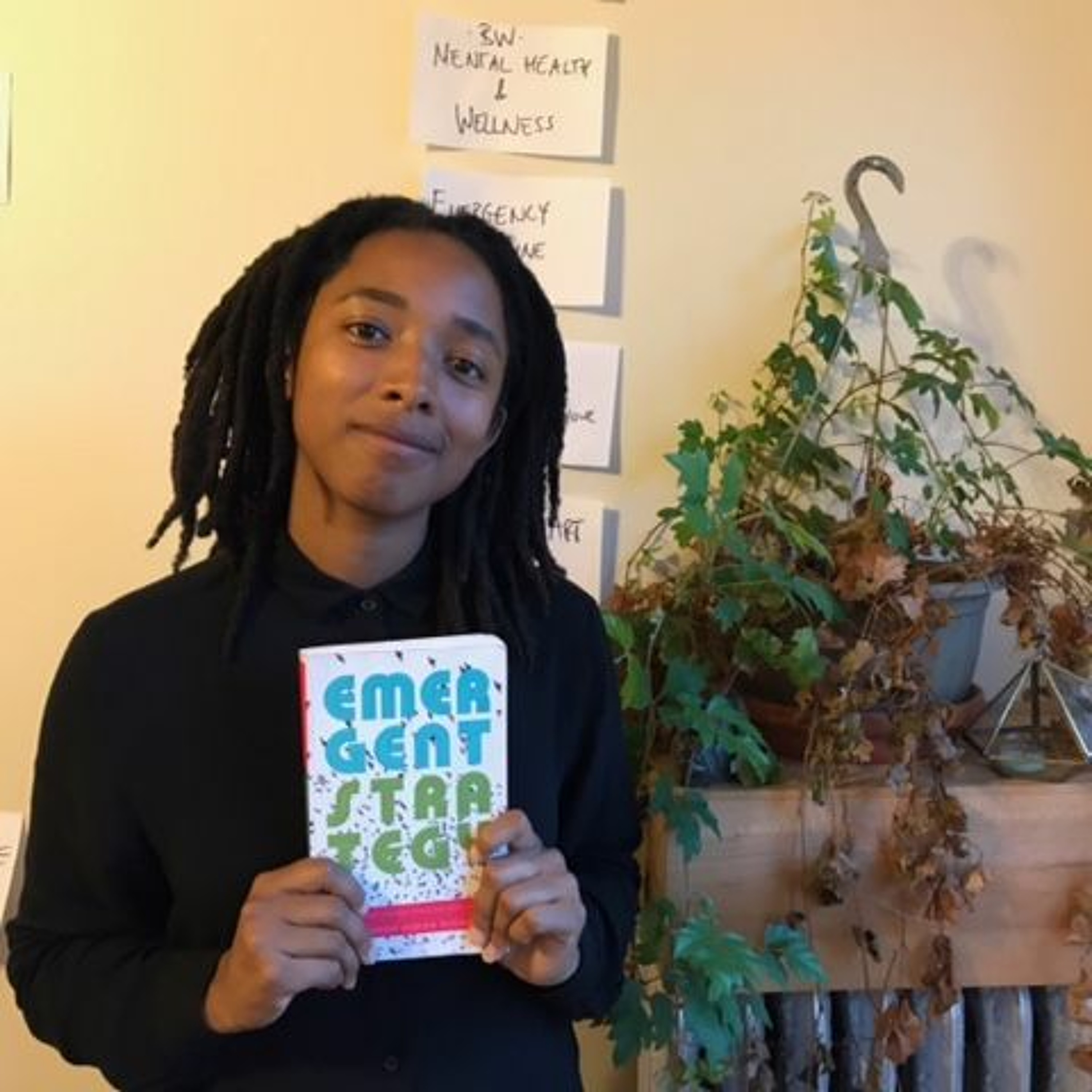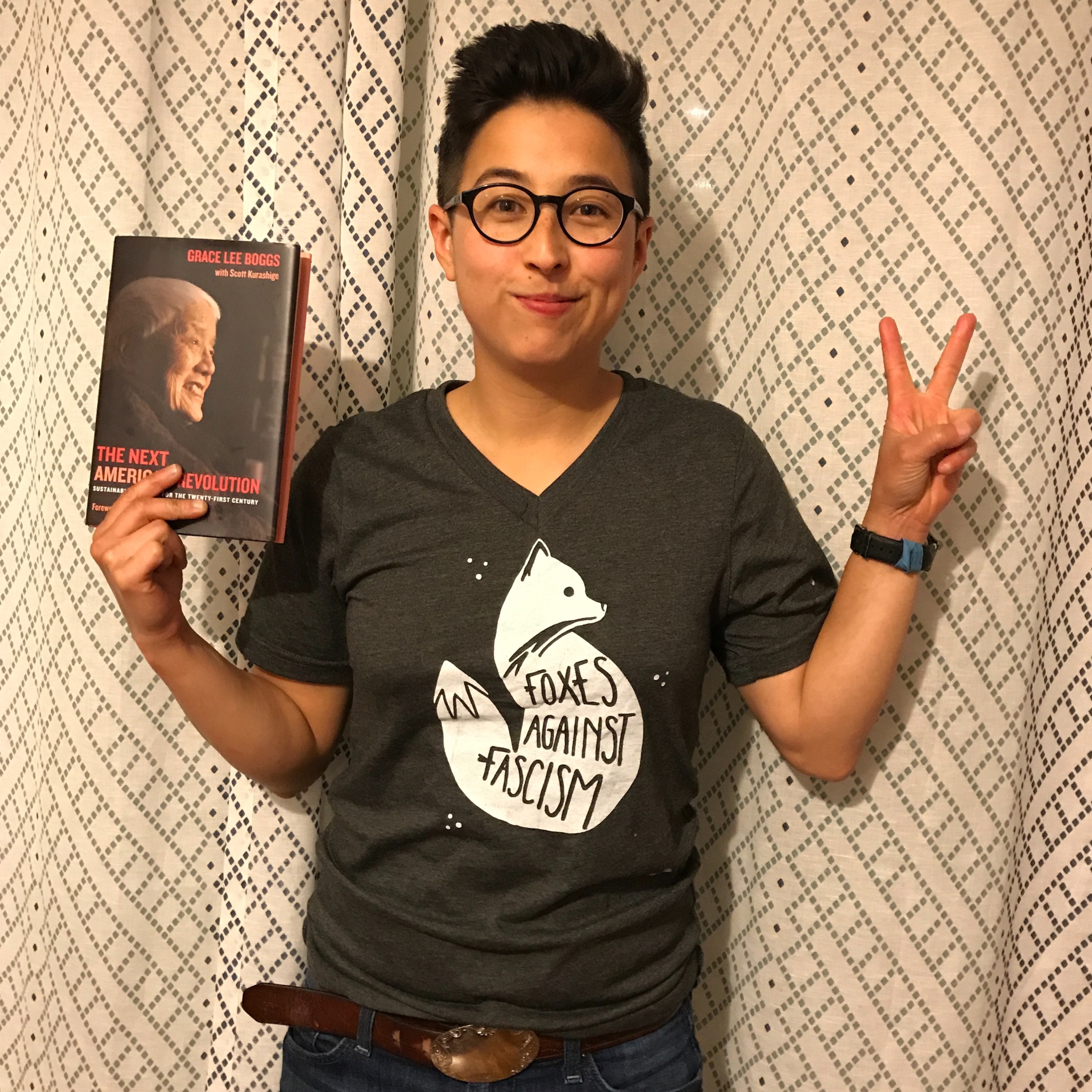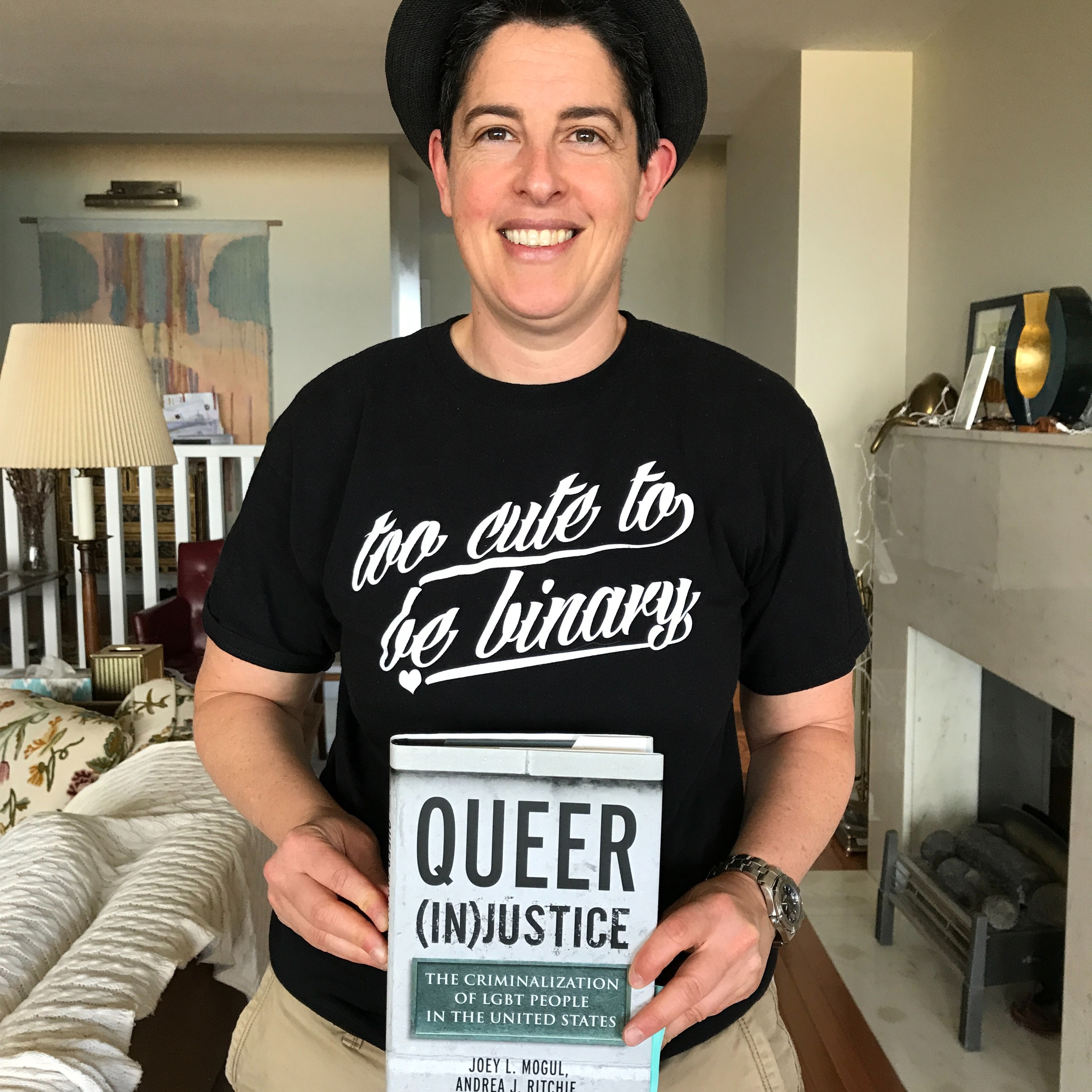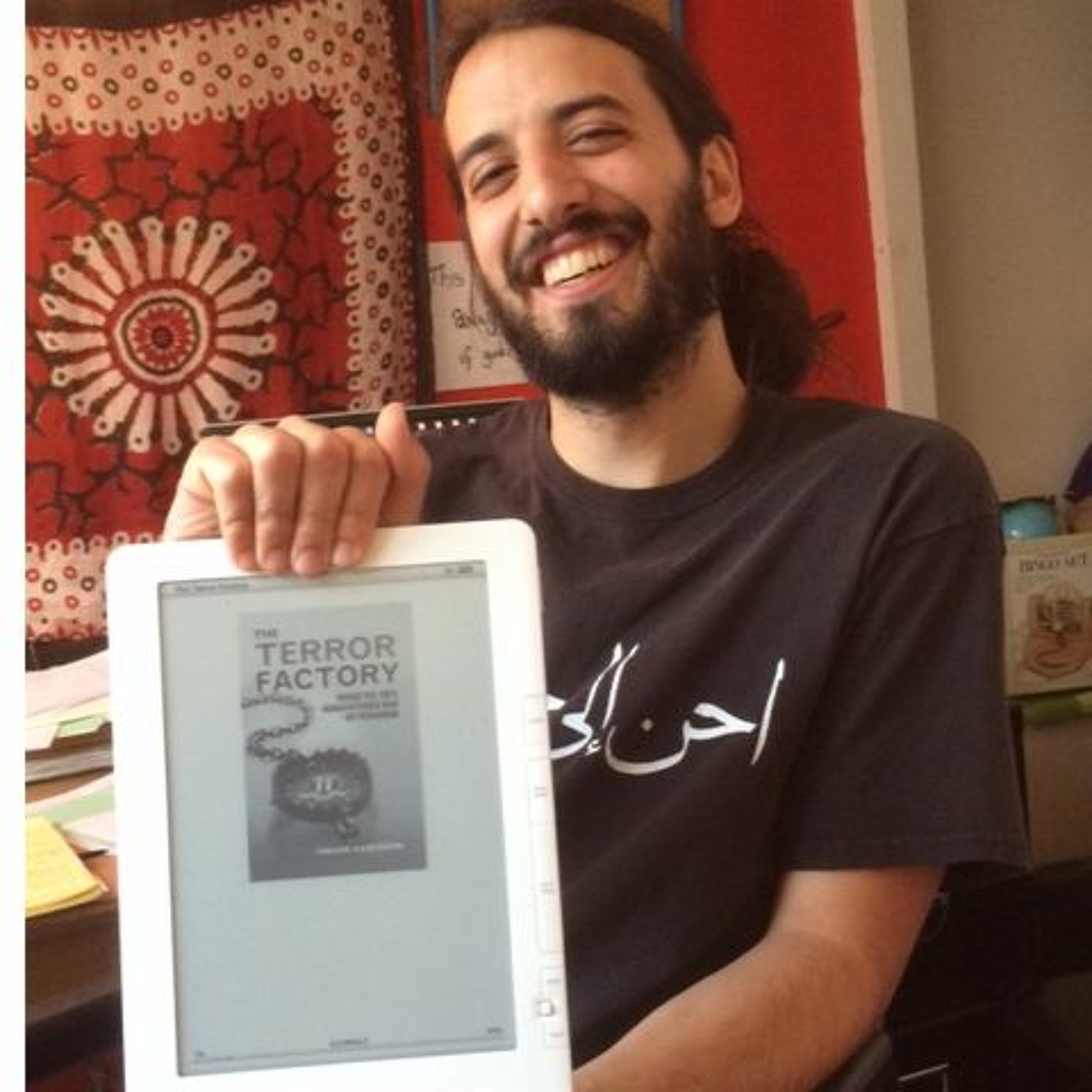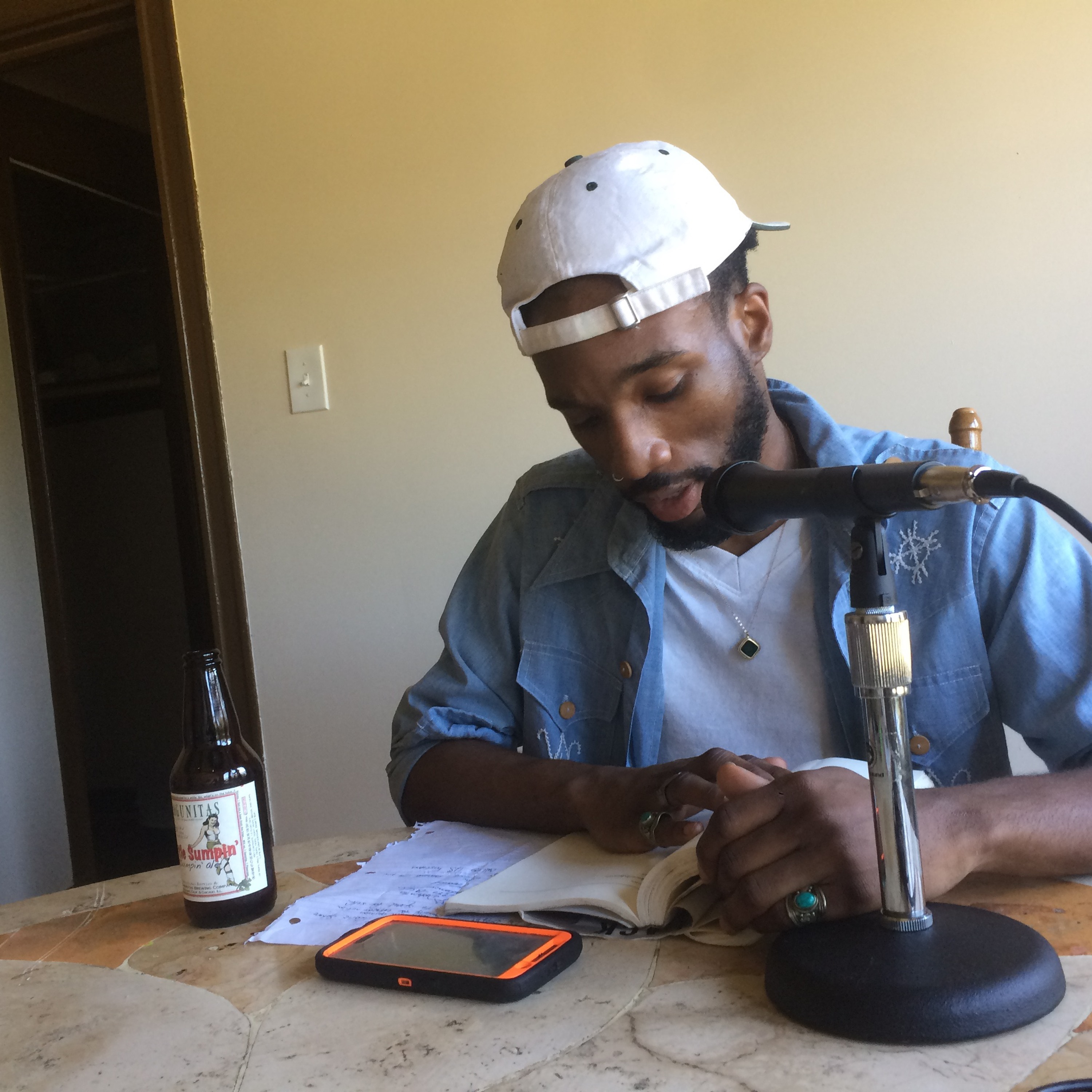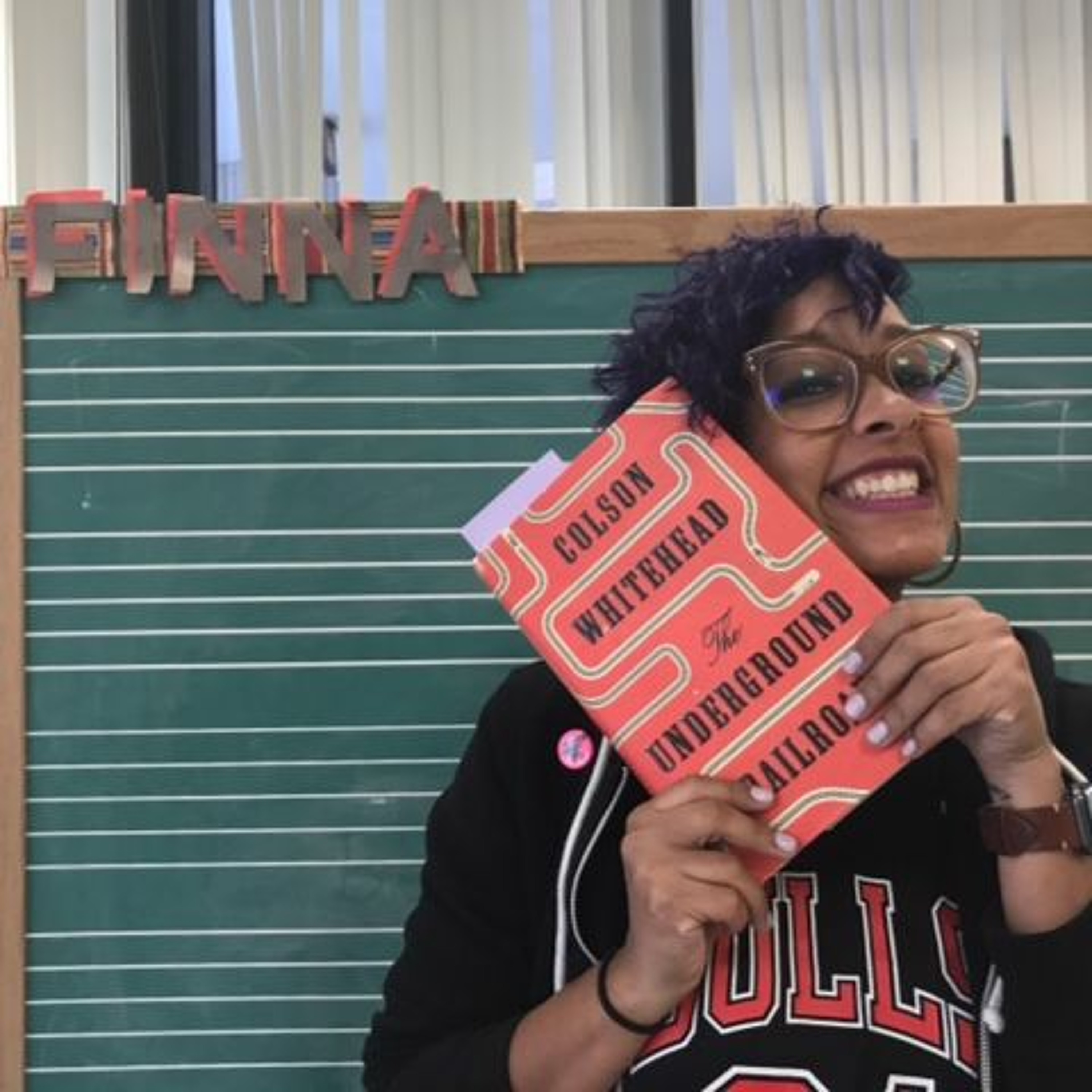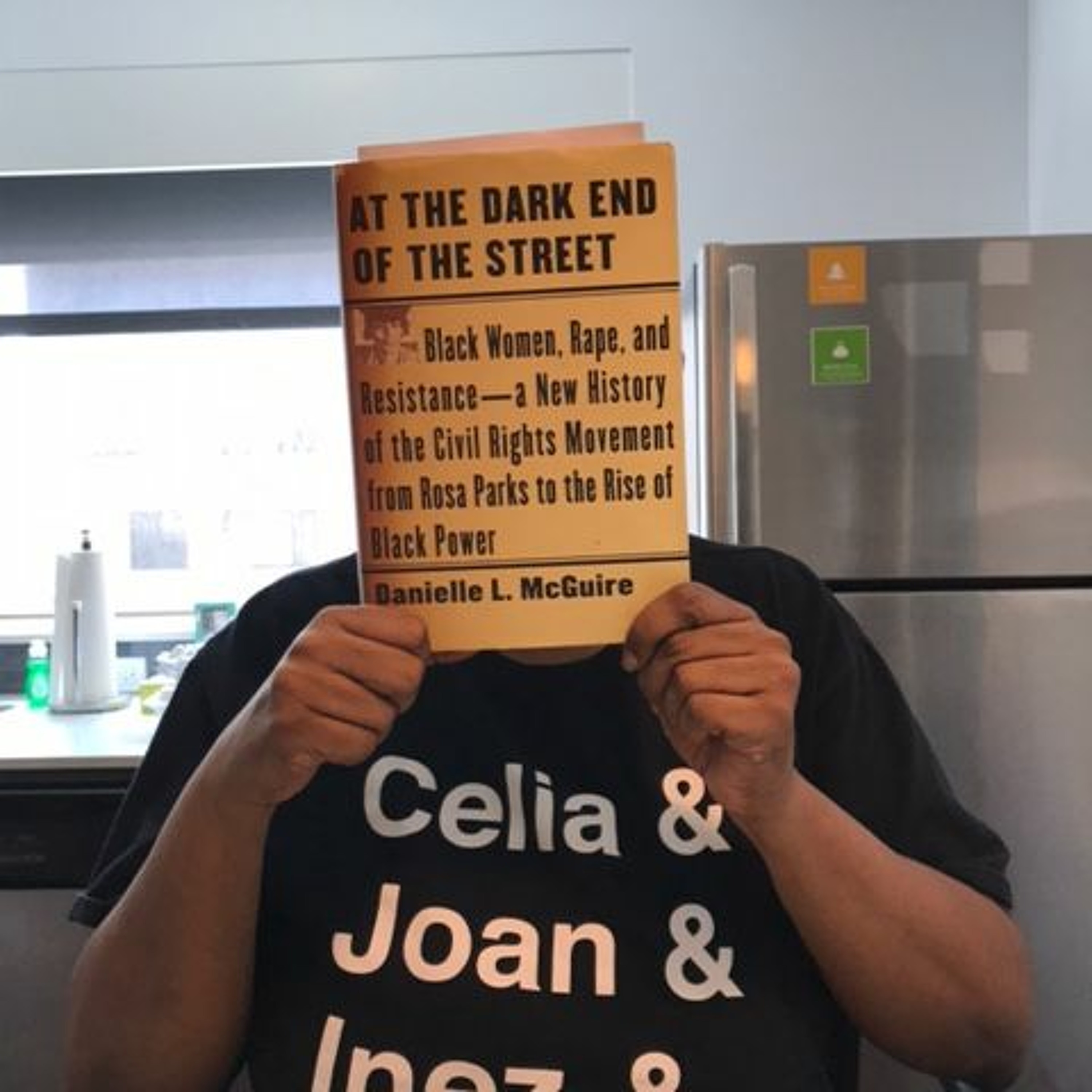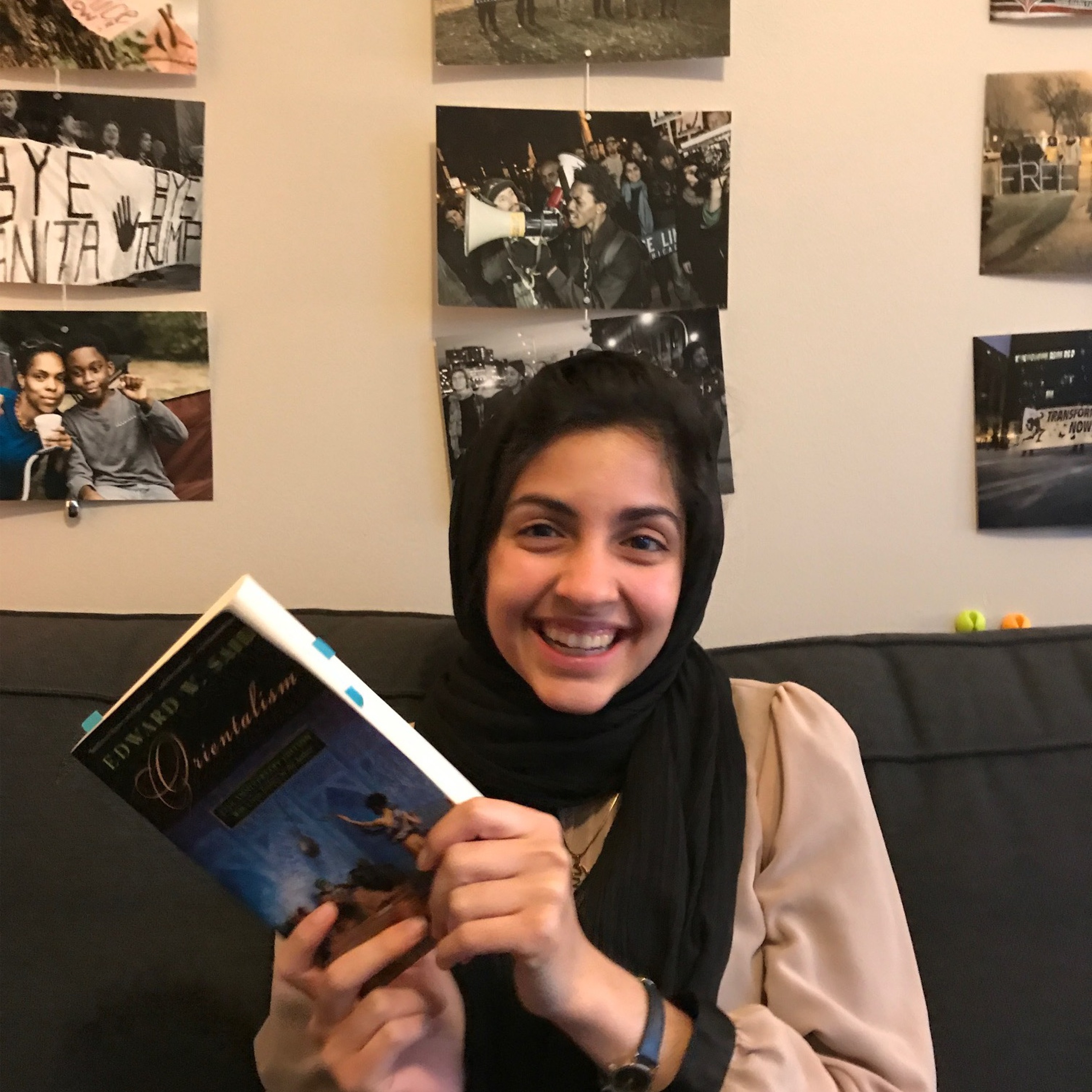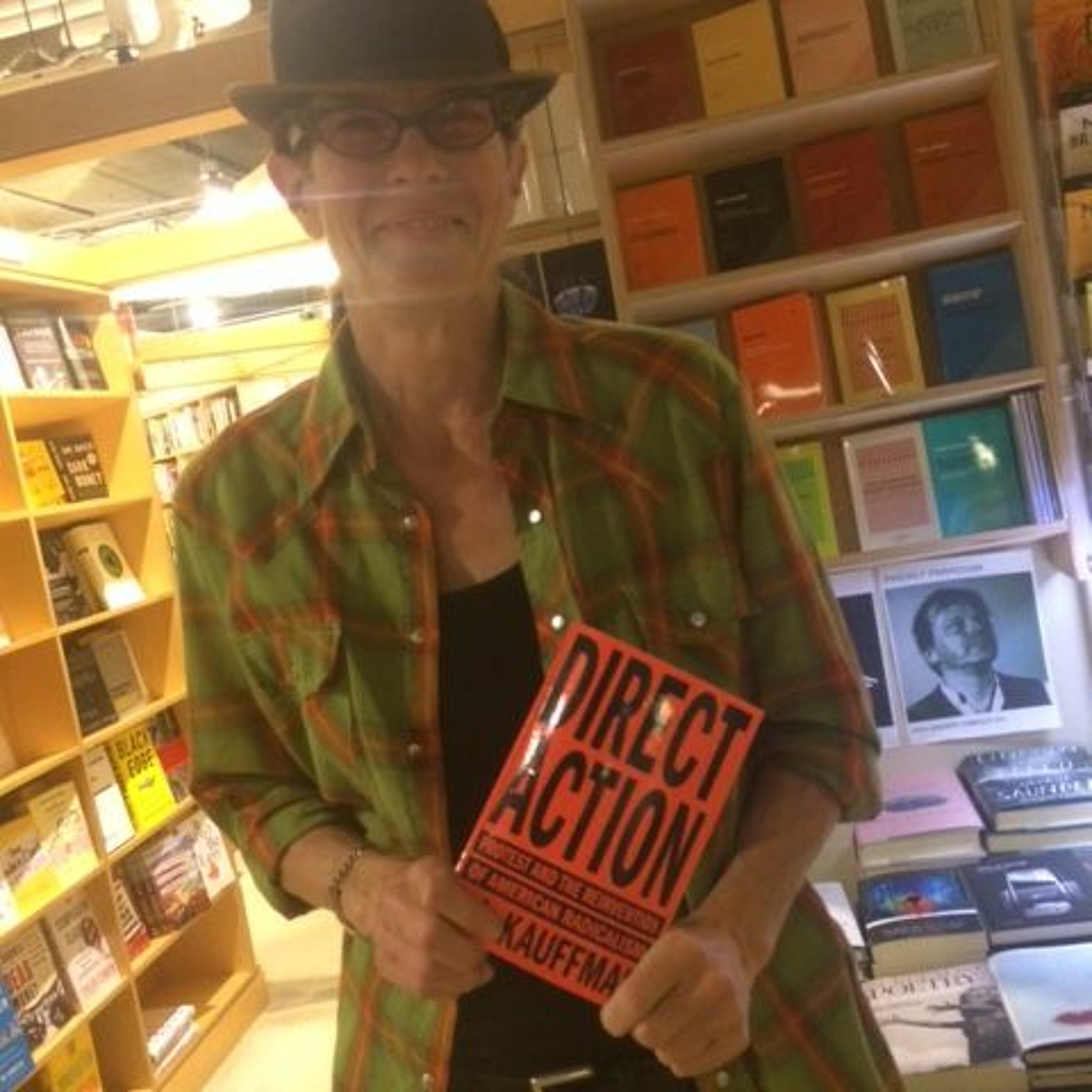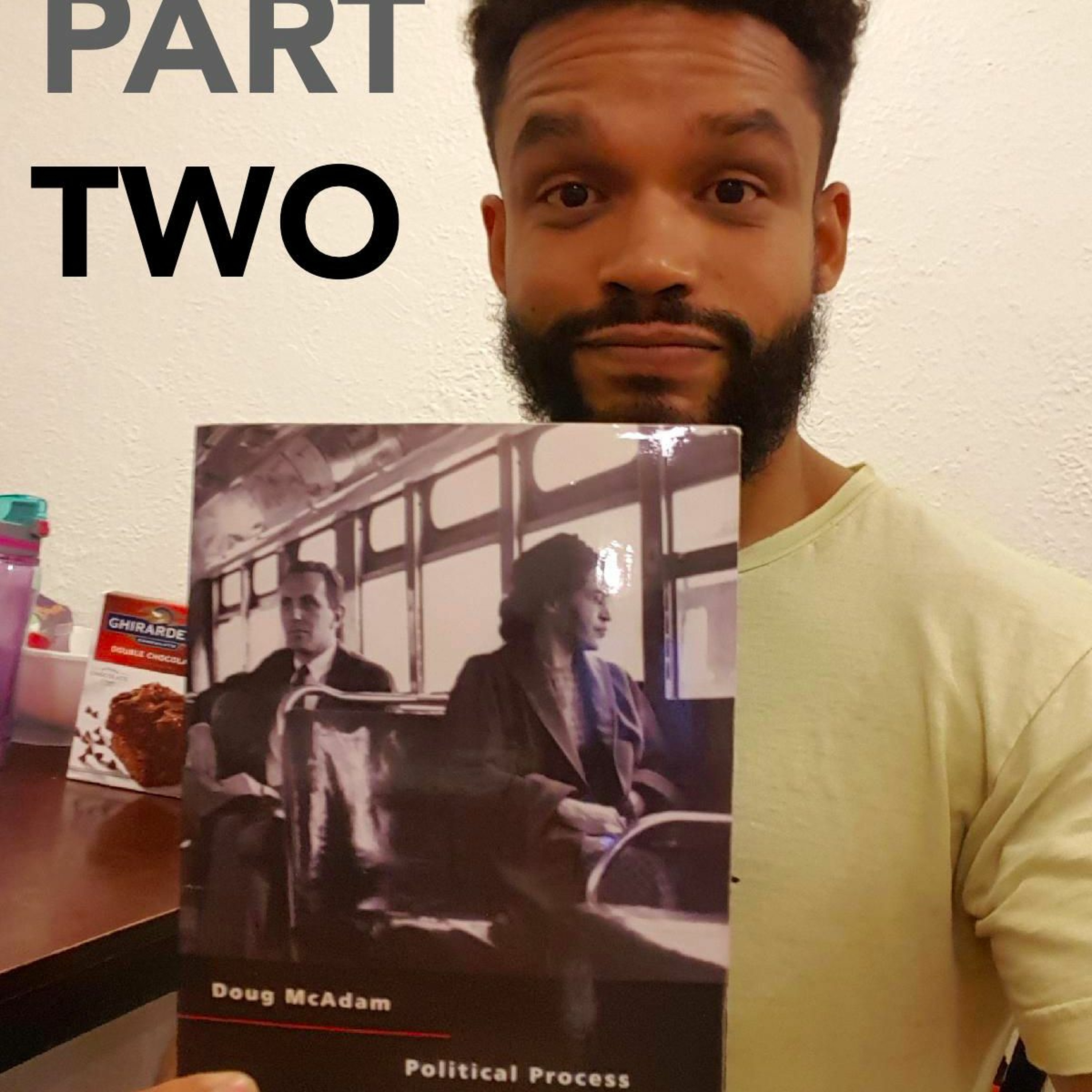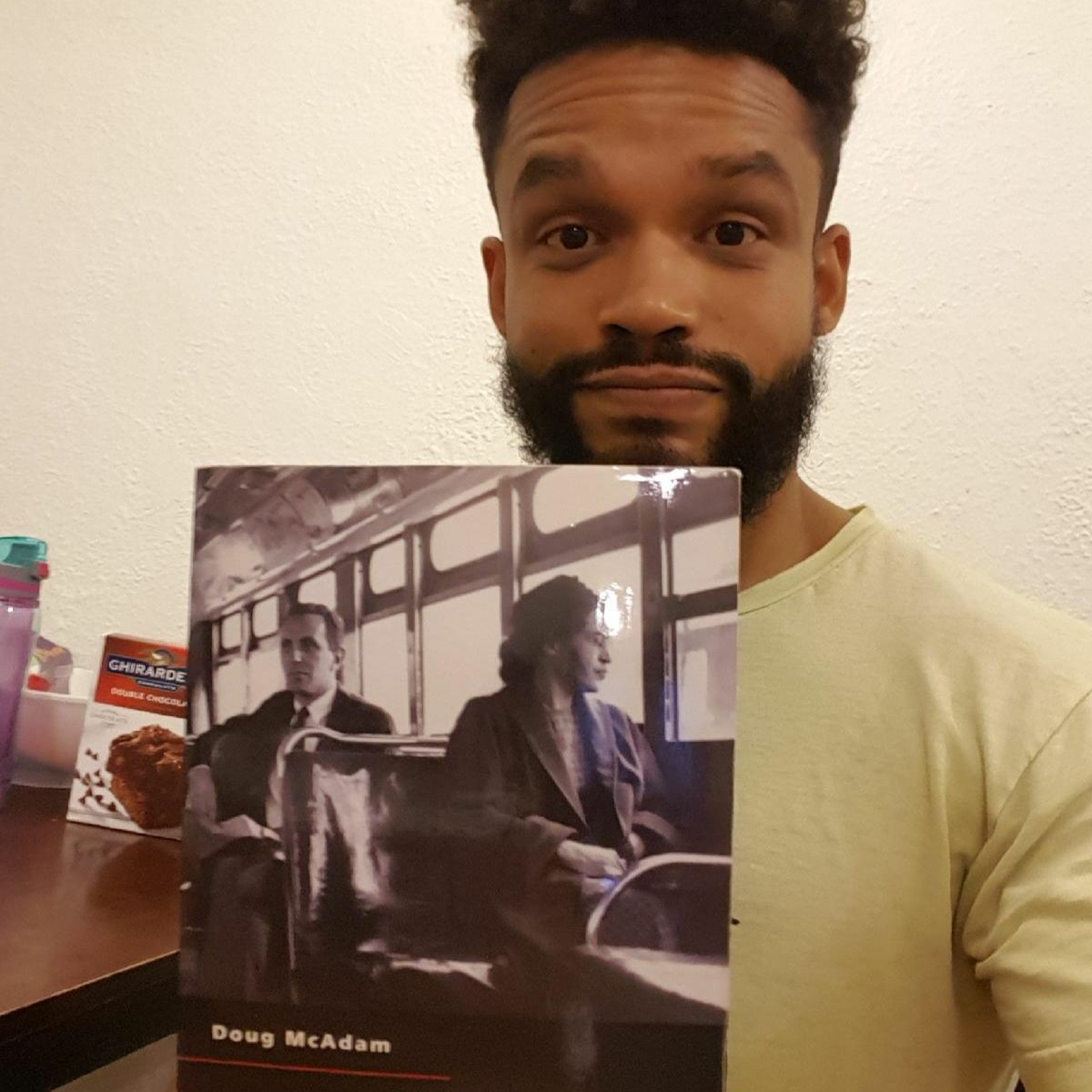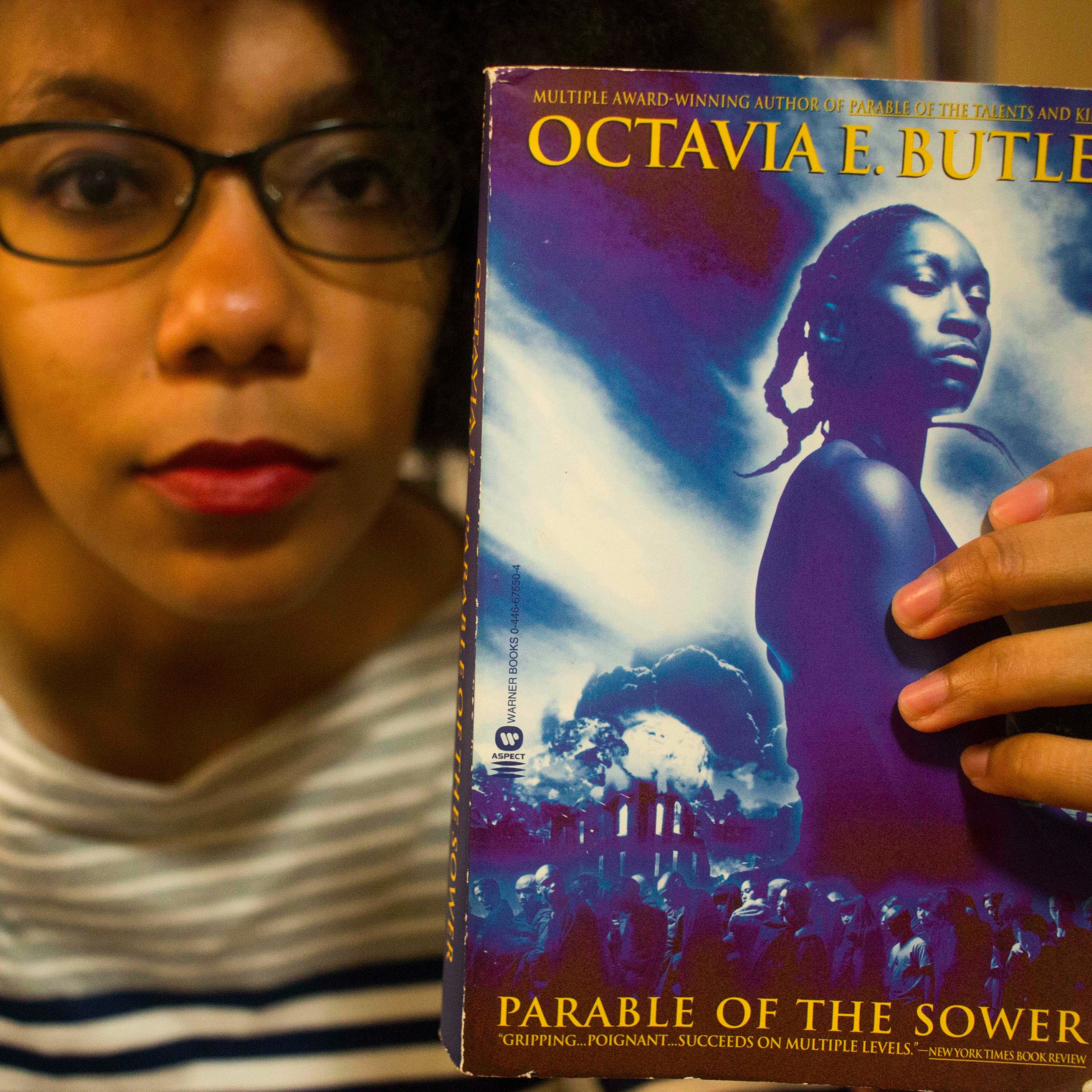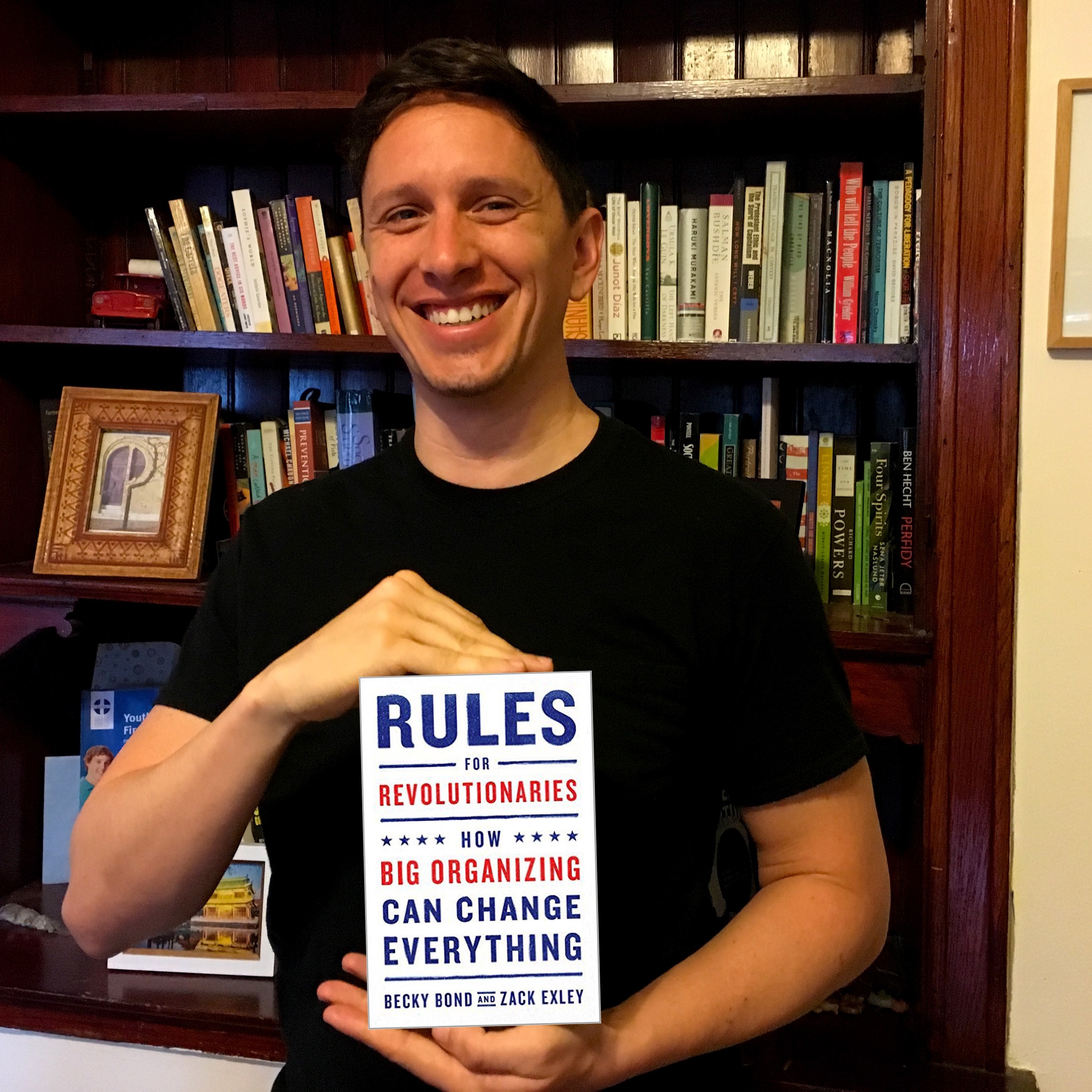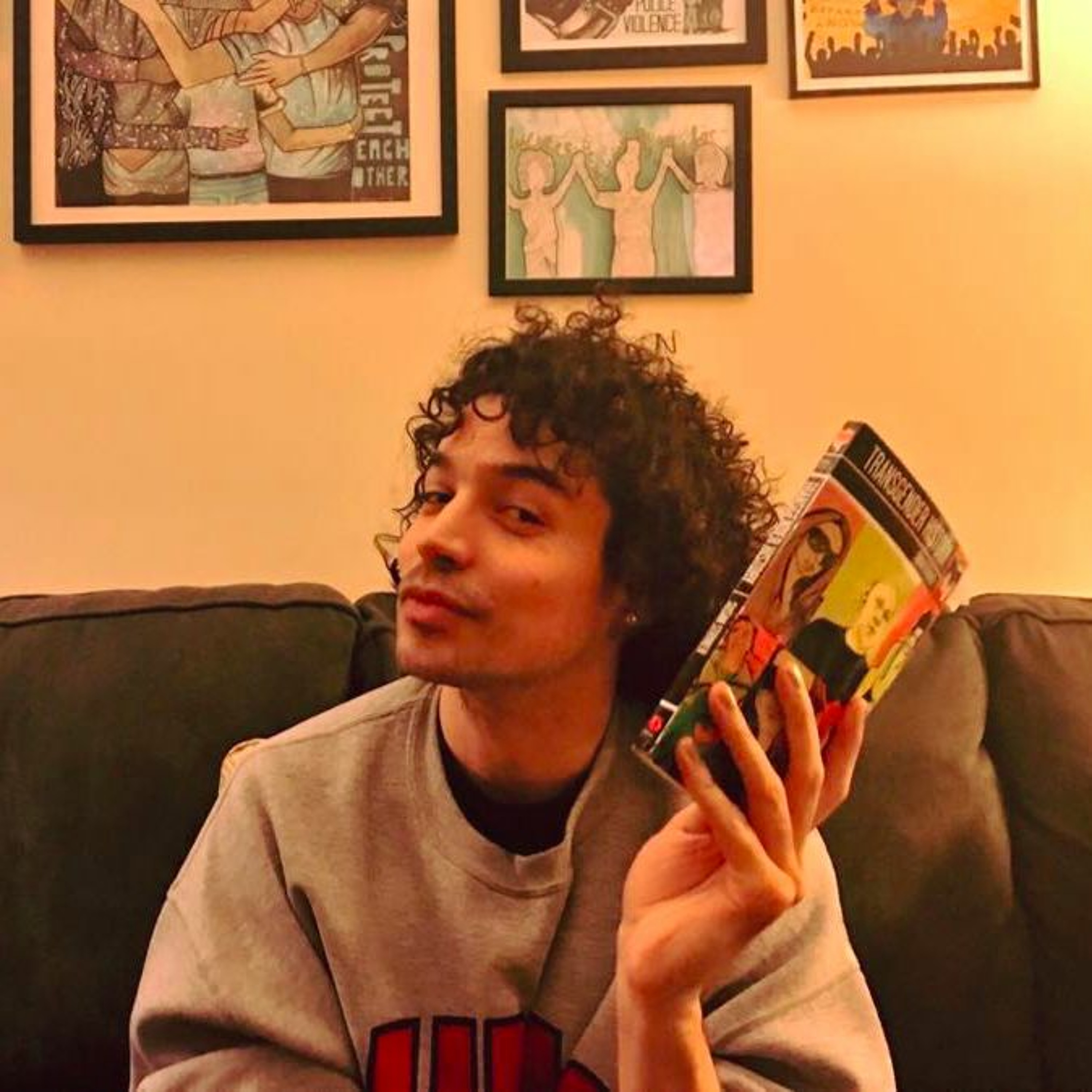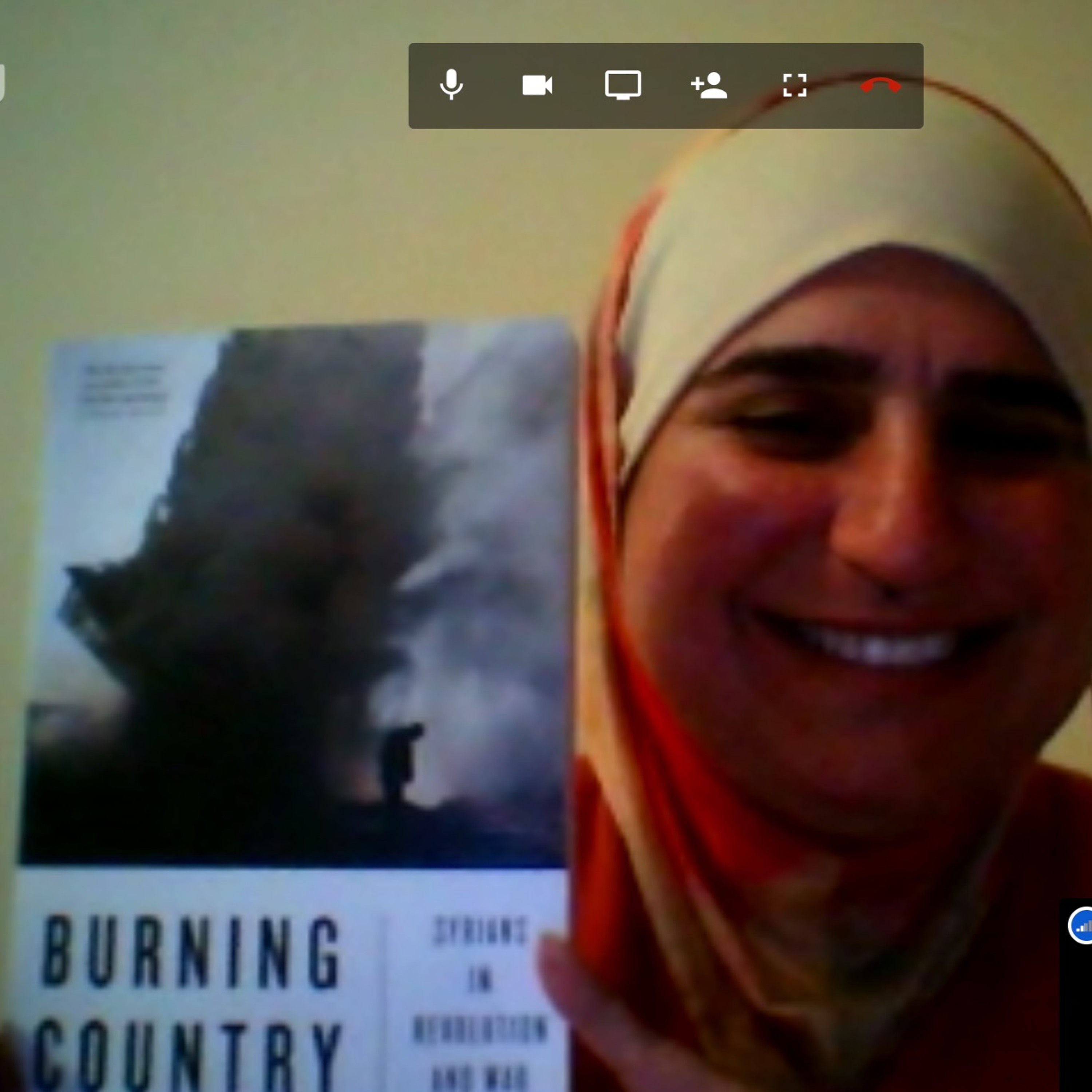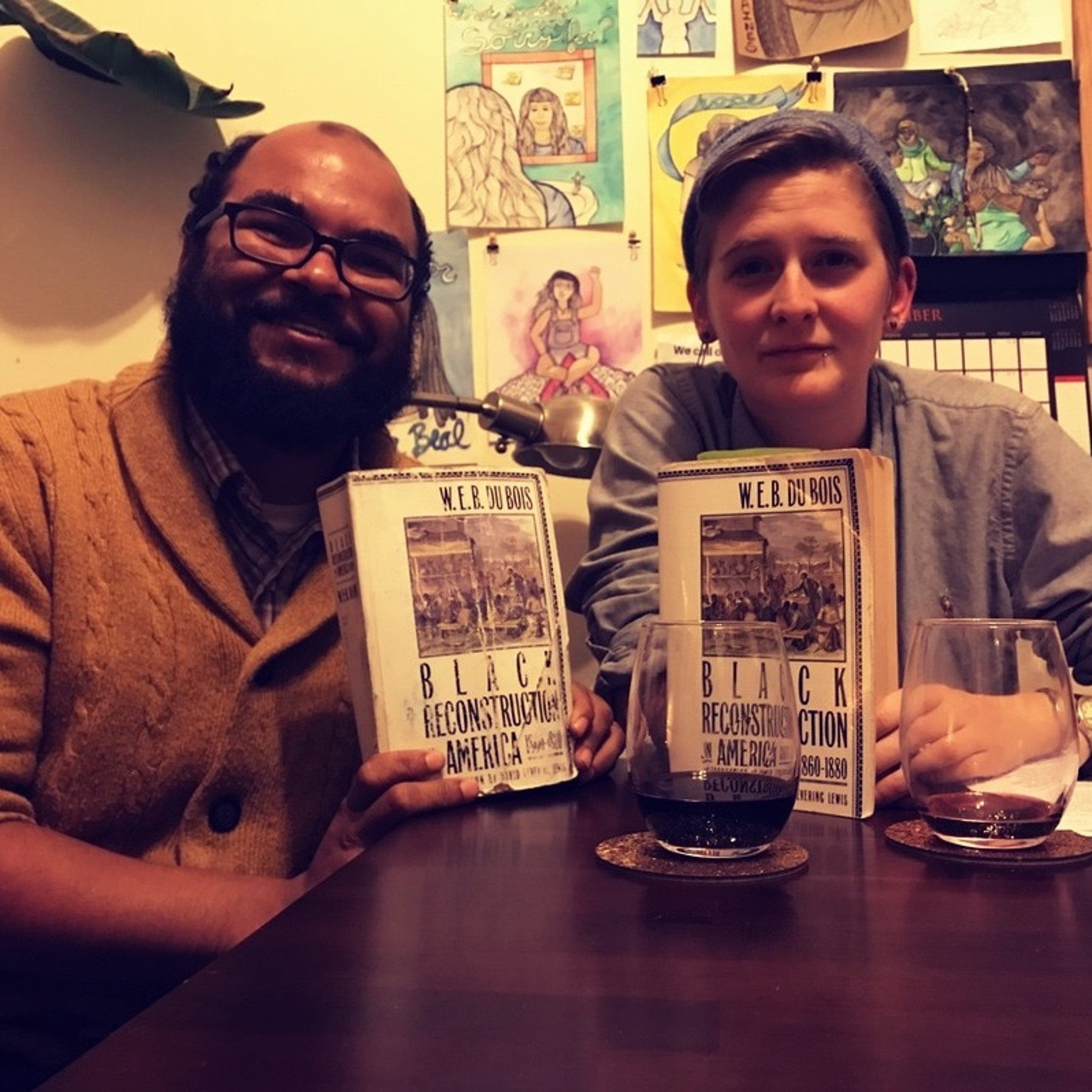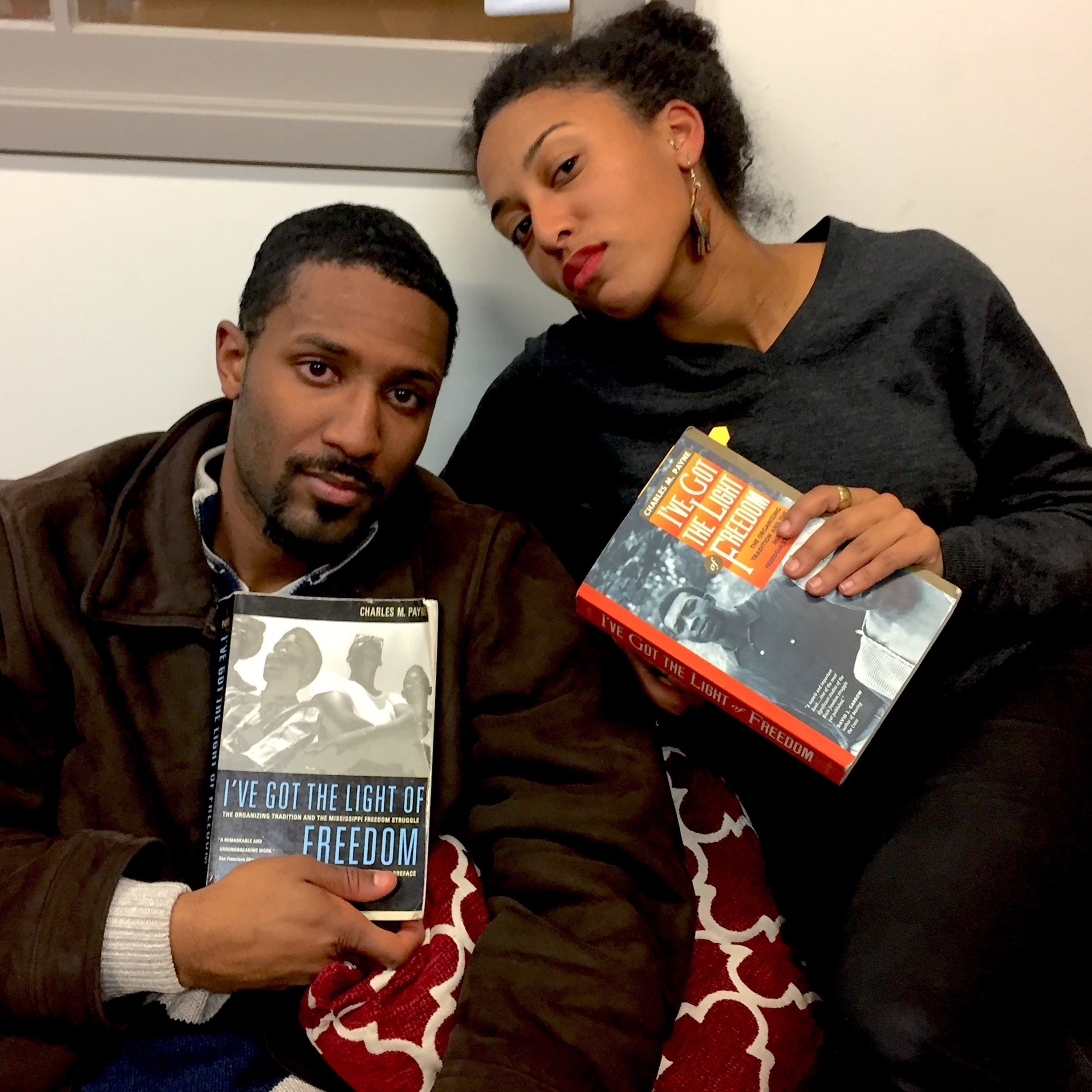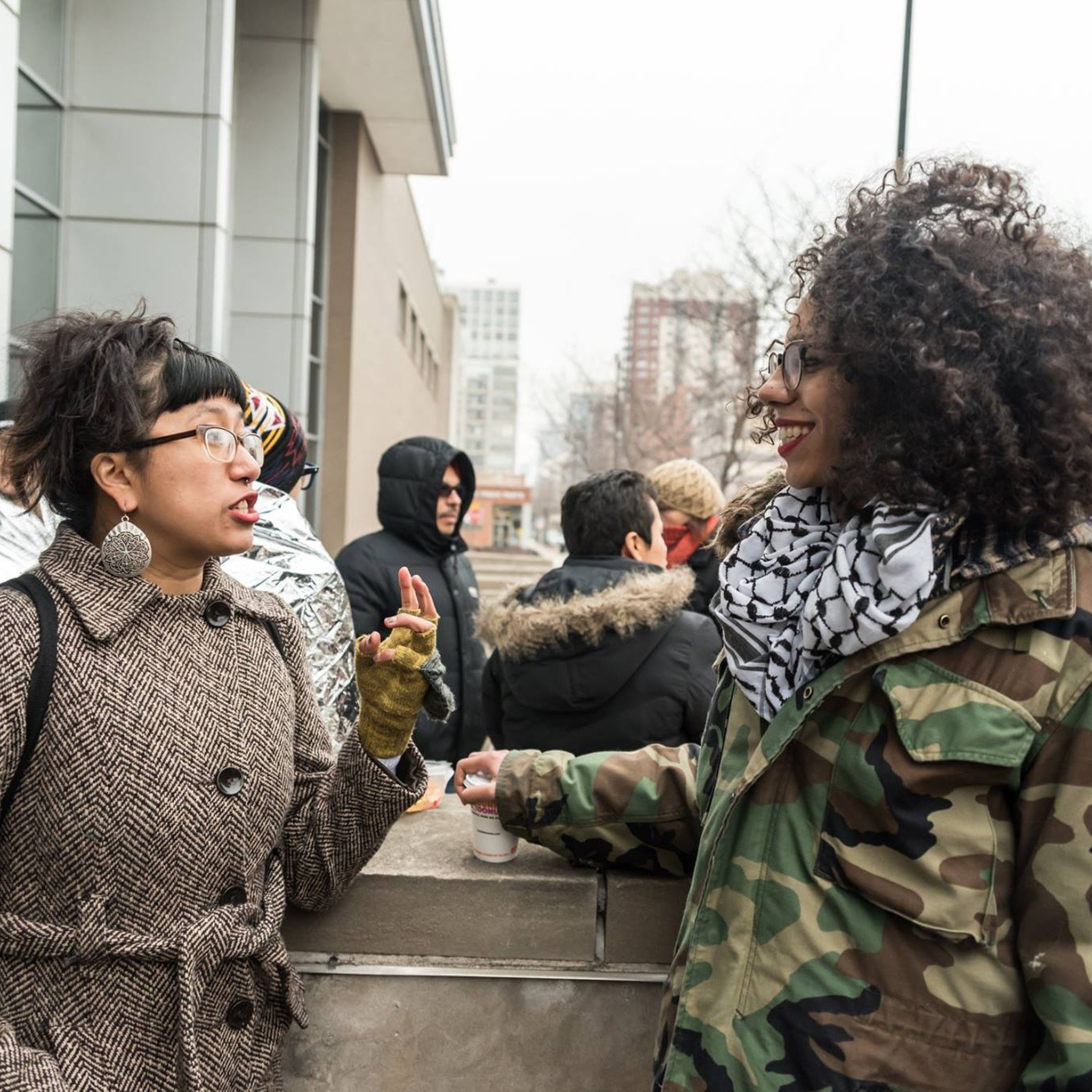Episode 57: The In-between Episode!
32 perc
62. rész
The Lit Review Podcast
It’s a wrap for Season 3! In 8 episodes, we went deep on topics including colonization and land justice, civil rights history, and movement and organizing fundamentals. And in the midst of the pandemic, uprising, and elections, we did our best to highlight the amazing resistance work happening in Chicago.
There’s no special guest on this season finale- just your favorite co-hosts chopping it up to share their highlights and lingering questions. We also have updates about what to expect for Season 4 and how you can help us make it the best season of The Lit Review yet! We’ll be back with new episodes this Summer. Until then, check out any of our past episodes, recommend us to a friend, and KEEP READING!
See links to action items, book shoutouts, and transcription at thelitreview.org
Episode 56: From the Ground Up with Juliana Pino
84 perc
61. rész
The Lit Review Podcast
This is our last episode of Season 3 and it does not disappoint! To close out 2020, we’re discussing the book From the Ground Up: Environmental Racism and the Rise of the Environmental Justice Movement by Luke Cole & Sheila Foster. This short but dense book focuses on the history of the Environmental Justice movement leading up to the signing of the 1994 Executive Order on Environmental Justice by President Clinton, and then outlines several examples of community efforts to resist environmental racism in the 1990s. We are so grateful to our guest this week, Juliana Pino Alcaraz, Policy Director at the Little Village Environmental Justice Organization, for sharing her eco-expertise and movement thoughts with us. In this episode, Juliana breaks down the frameworks, organizational structures, tactics, and campaign strategies outlined in the book, and expands on what’s missing.
This is a longer episode because we just couldn’t cut any of this brilliance! Grab a notebook and get settled in!
Audio Production by B. Russelburg
Episode Intro Music: “Chicago” by David Ellis
Episode 55: Groundwork with Christian Snow
69 perc
60. rész
The Lit Review Podcast
Despite some truly 2020-style audio recording issues, our 2nd to last episode of the season is here! First off the bat, peep our pre-episode plug with the homies Daniel & Damon of AirGo Radio! We hope you’re listening to our podcast episodes back-to-back every week! Then to the full episode, we have our guest, Christian Snow of Assata’s Daughters and the People’s Law Office, share her love and key takeaways from the book Groundwork: Local Black Freedom Movements in America.
We often only hear the civil rights movement narrative between the mid-fifties to the mid-sixties, or also known as the ‘Montgomery to Memphis’ framework. That historical narrative emphasizes a story of national organizations, charismatic leadership, policy change and mass mobilizations. Groundwork unearths the buried stories of the people, places, and struggles that laid the foundation for the movement. This is a detailed book that explores the common threads of what people did and how they did it, and insists on the value of exploring this work that never made national headlines or classroom textbooks.
Audio Production by B. Russelburg
Intro music featuring ‘Chicago’ by David Ellis
Episode 54: Freedom Farmers with Vivi Moreno
53 perc
59. rész
The Lit Review Podcast
Fannie Lou Hamer is increasingly recognized for her leadership with the Mississippi Democratic Freedom Party, but did you know about the 600-acre Freedom Farm Cooperative she started? This is one of many examples of Black farmers organizing for power and self-determination highlighted in Monica White’s book “Freedom Farmers: Agricultural Resistance and the Black Freedom Movement.” This book expands our understanding of freedom struggles by focusing on the projects and tactics of Black farmers: from cooperatives and encampments, to unions and bail funds. Over and over, White documents the critical contributions farmers made both to literally feed the movement and also grow its liberation efforts. Vivi Moreno is the perfect guest to nerd out for an hour with about food, farming, and freedom. In this episode, she helps us understand and appreciate the long history of agricultural resistance, and also recognize and apply it to the ongoing struggles we still face today for healthy, sustainable, and self-determining communities.
See Key questions discussed in this episode & Vivi Moreno's bio at thelitreview.org!
Episode 53: Borderlands with Trina Reyolds-Tyler
47 perc
58. rész
The Lit Review Podcast
This was a hard book to talk about, but we’re so glad that we did. The late Gloria Anzaldúa’s book “Borderlands/La Frontera: The New Mestiza” is beloved to many and considered a fundamental text in Chicana and Latinx studies. With gorgeous prose, she richly captures the unique experiences of those who inhabit the borderlands; of place, gender, class, and identity. Anzaldúa's book offers a poetic description of what it’s like to be caught between worlds. At the same time, this work is rightly called-out for those that it erases: Black, Indigenous, and trans people —all also existing and resisting in the borderlands.
We were lucky to have Trina Reynolds-Tyler of the Invisible Institute on the podcast to talk about the ongoing influence this book has had on her as a Black woman living on the borderlands of Chicago’s south side.
Key Questions:
What are the borderlands and what does it mean to inhabit them?
What does Anzaldua’s mean by the term “new mestiza” and how does it challenge, reinforce, or complicate the original notions of mestizaje?
Who does this book erase?
Episode 52: Discourse on Colonialism with Asha Ransby-Sporn
43 perc
57. rész
The Lit Review Podcast
Originally published in 1950, Discourse on Colonialism by Aimé Césaire directly and dramatically influenced the liberation struggles happening in Africa, Latin America, and the Caribbean. This book/essay/poem/manifesto is a blazing collection of thoughts that affirms Black identity and culture, embraces surrealism as revolt, and demands decolonization movements that “decolonize our minds, our inner life, at the same time that we decolonize society.” Césaire exposes the hypocrisy and emptiness of colonialism and capitalism, and the antiblackness and brutality inherent to western notions of “progress,” “reason,” and “civilization.” In this episode, we talk to our long-time comrade Asha Ransby-Sporn to learn more about what Césaire challenges readers to think through and how we might apply its lessons to today’s ongoing struggles against empire.
Episode 51: Rules for Radicals with Maira Khwaja
48 perc
56. rész
The Lit Review Podcast
Have you ever heard of the term “Alinsky-style organizing” and the rules that are involved? For example, “A tactic that drags on too long is a drag” and “Pick the target, freeze it, personalize it, and polarize it.” Here in Chicago, Saul Alinksy is often mentioned both for what his analysis is missing, as well as for the helpful basics his tradition offers.
Written shortly before his death in 1972, Saul Alinsky was a community organizer in Chicago who wrote about the power of place-based organizing and collective action in the book Rules for Radicals. Since he lacked a radical analysis, this book can be hard to sit with and take seriously. However, we were so grateful to sit down with Maira Khwaja of the Invisible Institute to talk about the highlights, lessons learned, and ways we might incorporate Alinsky’s approach as community organizers committed to abolition. Maybe skip reading this one and instead tune in for highlights, critiques, and salvageable gems!
Episode 50: Blood, Marriage, Wine and Glitter with Stephanie Skora
43 perc
55. rész
The Lit Review Podcast
Ready to learn and get in your feelings? This week, we connected with Stephanie Skora, Associate Executive Director of Brave Space Alliance and author of the Girl, I Guess voter guide. Stephanie shared her love and learnings from S Bear Bergman’s book “Blood, Marriage, Wine & Glitter” a book of personal essays about their queer and trans experiences of family. Join us for this episode to laugh about voting, gag about heteronormativity, and tear up about the importance of storytelling. This is a moving conversation about joy, resilience, memory, love, and softness. As Stephanie reminds us “these are some things we all need more of right now.”
Episode 49: Hammer & Hoe with Bettina Johnson
53 perc
54. rész
The Lit Review
There’s importance in collaboration and experimentation when it comes to organizing. But what does organizing around super radical ideas in very practical and grounded ways in a community you’re not from look like? We chat with Bettina Johnson, co-founder of Liberation Library and member of Chicago Afrosocialists & Socialists of Color of the DSA, about the book Hammer & Hoe: Alabama Communists During the Great Depression by Robin D.G. Kelly. Tune in to our first episode of the season to hear what the Alabama Communist Party can teach us about our social movements today.
Episode 48: The Revolution Will Not Be Funded with Joy Messinger
50 perc
53. rész
The Lit Review
Urgent and visionary, The Revolution Will Not Be Funded presents a biting critique of the quietly devastating role the non-profit industrial complex plays in managing dissent. Joy Messinger from Third Wave Fund joins us today to discuss.
Hosts: Monica Trinidad & Page May
Guest: Joy Messinger
Release Date: February 19, 2019
Length: 51:00
Key Questions:
1. What is the non-profit industrial complex (NPIC)?
2. How does nonprofit status and grants impact the work of community organizations?
3. How did we get here?
4. What are examples of fundraising strategies that resist the NPIC?
5. How can we build movements outside the non-profit model?
Support us on Patreon: https://www.patreon.com/TheLitReview/overview
Episode 47: Green is the New Red with Brad Thomson
51 perc
52. rész
The Lit Review
In the U.S., it’s becoming increasingly trendier to “go green” and become more environmentally-conscious in our daily lives under capitalism. However, there’s a whole other movement of eco-consciousness and activism that is being heavily criminalized and repressed. In his debut book, Green Is the New Red: An Insider’s Account of a Social Movement under Siege, independent journalist Will Potter provides detailed accounts of the targeting of environmental and animal rights activists across the country.
Our guest on today’s show is Brad Thomson, a local radical lawyer at the People’s Law Office, which has a history steeped in defending the rights of Fred Hampton and the Black Panther Party. Brad focuses on repping people whose civil rights are violated by the police and other state actors, and people criminalized based on their political identity and organizing affiliation. We explore Green is the New Red and how the people that have been involved in the most militant parts of these movements have been attacked and criminalized, how industry and government have characterized these militant actions in order to tarnish the entire movement, and use scare tactics to make it so that anybody who is part of these movements is fearful. Tune in now.
Hosts: Monica Trinidad & Page May
Guest: Brad Thomson
Release Date: February 4, 2019
Length: 51:00
Key Questions:
1. What was the Red Scare? And the new Green Scare?
2. Who is the author and how does his background inform writing this book?
3. Who is the Animal Liberation Front (ALF)?
4. Who was Stop Huntington Animal Cruelty (SHAC)?
5. Who is the Earth Liberation Front (ELF)?
6. How was the word “terrorism” weaponized in the Green scare?
7. How did corporations and lobbyists create this hysteria for governments and law enforcement to target eco/animal rights activists?
8. What does the American Legislative Exchange Council (ALEC) have to do with criminalizing protest?
9. Why should organizers read this book?
Episode 46: Fascism Today with Kelly Hayes
50 perc
51. rész
The Lit Review
What does fascism look like today in the U.S.? Where does the alt-right fit into this? How can it be fought?!
We sat down with Chicago-based Native abolitionist organizer, writer and co-struggler Kelly Hayes to discuss Shane Burley's book Fascism Today: What It Is and How to End It. Examining the modern fascist movement’s various strains, Shane Burley has written a super accessible primer about what its adherents believe, how they organize, and what future they have in the U.S.
Episode 45: Making the Second Ghetto with Lynda Lopez
45 perc
50. rész
The Lit Review
Season Two is sticking with the theme and serving up another episode exploring housing and displacement in Chicago. Making the Second Ghetto: Race and Housing in Chicago 1940-1960 by Arnold Hirsch is considered a premier text on the subject, However, at about 382 dense & jargon-filled pages, it’s a bit intimidating. Here to offer a helpful summary is life-long Chicagoan, writer, and neighborhood organizer, Lynda Lopez.
Episode 44: The Battle of Lincoln Park with Daniel Kay Hertz
44 perc
49. rész
The Lit Review
Who knew that the Chicago neighborhood called Old Town was actually part of Lincoln Park? Who knew it was a site of transformation, displacement, resistance, gentrification, AND urban renewal? We sat down with author and policy analyst Daniel Kay Hertz to talk about his new book, The Battle of Lincoln Park: Urban Renewal and Gentrification in Chicago, published by Belt. This is the first book to critically examine the history of Chicago's Old Town neighborhood. It tells the stories of those who first began “upgrading” homes in Old Town, why they moved there, how they used both private activism and leveraged public policy to remake the neighborhood to their own tastes; and how both these newcomers and older residents struggled against competing forces to preserve what they valued in Old Town—and why so many of them felt that they lost.
Episode 43: The New Jim Crow with Patrice Daniels
45 perc
48. rész
The Lit Review
In this special summer episode, Lit review co-host Monica Trinidad has a phone conversation with dear friend and incarcerated activist, Patrice Lumumba Daniels, about one of his favorite books, The New Jim Crow: Mass Incarceration in the Age of Colorblindness by Michelle Alexander.
Banned from prisons in North Carolina and Florida, The New Jim Crow book dives deep into the ways that the U.S. Government has created a new, contemporary system of racial control through the prison system. By targeting Black men through the "War on Drugs" and decimating communities of color, Michelle Alexander argues that “we have not ended racial caste in America; we have merely redesigned it.” Tune in to hear how this book has transformed Patrice's life, and many others.
Episode 42: Black Reconstruction In America Part 2 with Frank Chapman
68 perc
47. rész
The Lit Review
We’re back with one of our favorites! It’s Black Reconstruction - Part 2. On today’s episode, we’re talking with life long organizer and former political prisoner, Frank Chapman. Tune in to hear Frank’s take on Du Bois and the social, economic and political changes that were taking place leading up to and through Reconstruction.
Key Questions:
1. What were Black people trying to do during this time? What were they fighting for?
2. How did anti-blackness evolve during Reconstruction?
3. Why is this so important for organizers?
4. What is communism?
SPECIAL FEATURES:
We asked Frank, "What is Communism?" He did not disappoint. Read his reflections here http://bit.do/eanMo
Episode 41: Occupied Territory LIVE with Simon Balto and Toussaint Losier
62 perc
46. rész
The Lit Review
In this episode, we bring you the Lit Review LIVE from Hairpin Arts Center, the current site of For the People Artists Collective’s exhibition Do Not Resist? 100 Years of Chicago Police Violence.
We chatted with Simon Balto and Toussaint Losier, two radical authors and professors, about Simon’s upcoming book, Occupied Territory: Policing Black Chicago from Red Summer to Black Power, coming out in the fall of 2018.
Episode 40: Rethinking the American Prison Movement with Toussaint Losier & Dan Berger
51 perc
45. rész
The Lit Review
In true organizer fashion, our schedules and cities didn't quite match up, and two out of four of us were late, but we magically made this episode work, and its fantastic! We sat down with Dan Berger via Skype and Toussaint Losier for the minute he was in Chicago to chat about their latest book, Rethinking the American Prison Movement.
Rethinking the American Prison Movement provides a short, accessible overview of the transformational and ongoing struggles against America’s prison system. Dan Berger and Toussaint Losier show that prisoners have used strikes, lawsuits, uprisings, writings, and diverse coalitions with free-world allies to challenge prison conditions and other kinds of inequality. From the forced labor camps of the nineteenth century to the rebellious protests of the 1960s and 1970s to the rise of mass incarceration and its discontents, Rethinking the American Prison Movement is invaluable to anyone interested in the history of American prisons and the struggles for justice still echoing in the present day.
Episode 39: Kuwasi Balagoon - A Soldier's Story with Jason Lydon
57 perc
44. rész
The Lit Review
So often we hear anarchy equated with chaos and collapse: a complete breakdown of society. This hour, we're rejecting that. We sat down with Jason Lydon to help us understand what anarchy is and isn't. We define terms, talk through principles, and take seriously the anarchist vision for collective liberation. To help us ground our conversation, we talked about Kuwasi Balagoon: A Soldier's Story.
Kuwasi was one of the Panther 21 that the State tried to frame in 1969. Subsequently a member of the Black Liberation Army, he escaped prison twice prior to being arrested following a failed Brink's expropriation in 1981. He died in prison of AIDS-related pneumonia in 1986. A Soldier's Story is the first ever collection of his writings.
Episode 38: Season 1 Finale
57 perc
43. rész
The Lit Review
We made it through 2017! In our final episode of the year, we recap and flashback to some of our favorite episodes with brilliant activists like Joey Mogul, Andrea Ritchie, Fannie Rushing, and many more. We also make a surprise phone call to a very dear abolitionist friend and mentor who recently moved to New York City, and we ask her to reflect on the podcast's significance with us. Find out what's in store for the Lit Review in 2018!
Episode 37: This Nonviolent Stuff'll Get You Killed with Mia Henry
62 perc
42. rész
The Lit Review
When we are taught about the civil rights movement, the narratives of communities trained up in armed self-defense and grandmas with guns sitting on their porch all evening are definitely left out. In Charles E. Cobbs Jr.’s book, This Nonviolent Stuff’ll Get You Killed: How Guns Made the Civil Rights Movement Possible, we are face-to-face with the vital role that armed self-defense played in the liberation and survival of Black communities. Utilizing personal narratives and Cobb’s experiences in the civil rights movement, he delivers a critical, invisible, and long history of Black people taking up arms to defend themselves against white supremacist violence. We sat down with educator and social justice activist, Mia Henry! Mia is one of the many founders of the Chicago Freedom School, and currently the Executive Director of the Arcus Center for Social Justice Leadership. Mia also runs Freedom Lifted, a small social enterprise that hosts Civil Rights Movement tours in the deep South.
Key Questions:
1. What is the significance of armed self-defense during the Civil Rights movement?
2. What is nonviolence? What is it not?
3. During the civil rights movement, how does Charles talk about the difference between community organizing and direct action?
Abbreviations used in this episode:
CORE - Congress of Racial Equality
SNCC - Student Nonviolent Coordinating Committee
Hosts: Monica Trinidad & Page May
Guest: Mia Henry
Date: December 11, 2017
Length: 1:02:04
Episode 36: Octavia's Brood with Tanuja Jagernauth
43 perc
41. rész
The Lit Review
The day-to-day is a grind, especially for working-class people, Black people, people of color, and organizers. When and how do we find time and space to exercise our radical imaginations? What IS a radical imagination? And what does fiction have to do with it? In Octavia's Brood: Science Fiction Stories from Social Justice Movements, co-edited by adrienne maree brown and Walidah Imarisha, we are gifted twenty short stories exploring the connections between radical speculative fiction and movements for social change. According to them, whenever we envision a world without war, without prisons, without capitalism, we are using our radical imaginations and producing speculative fiction. The anthology encapsulates stories by cultural workers, sci-fi writers, political prisoners, organizers, and much more, many of whom had never before written fiction stories, yet alone sci-fi, before this book. For this episode, we sat down with Chicago-based playwright, dramaturge, and ceramic artist Tanuja Jagernauth to discuss one of her favorite books. She gives us all the perfect words for why this book is critical for organizers to read.
Key Questions:
1. What is visionary fiction?
2. Who are the authors in this anthology?
3. What is the “radical imagination” that we so often refer to? How do you see this radical imagination practiced in Chicago?
4. What are stories and themes that come up in this book?
5. How can we look towards non-organizers, like Octavia Butler, for guidance to utilize in our organizing spaces?
6. How do we facilitate radical imagination?
Hosts: Monica Trinidad and Page May
Guest: Tanuja Jagernauth
Date: December 4, 2017
Length: 43:00
Episode 35: Resistance Behind Bars with Victoria Law
55 perc
40. rész
The Lit Review
Did you know that the first mass clemency won in 1990 for 25 domestic violence survivors incarcerated for self-defense happened because of incarcerated women organizing themselves on the inside? Or did you know that in the 1970's, a California women's prison cancelled a Christmas visit with incarcerated women & their children with no explanation. The women then broke windows, dragged Christmas trees outside into the yard, set them on fire, and refused to go back inside in protest!
Resistance Behind Bars: The Struggles of Incarcerated Women provides much-needed documentation of collective organizing and the daily struggles inside women's prisons. We sat down with the author of this book, Victoria Law, and discussed her process in compiling these important, hidden stories of resistance and survival of incarcerated women in the U.S.
Episode 34: Pedagogy of the Oppressed with Hilda Franco
53 perc
39. rész
The Lit Review
There is a role for people who know things that others don’t, but how has our relationship with education and the teacher-student dynamic been shaped by colonialism, capitalism, and patriarchy? In 1968, Brazilian educator Paulo Freire wrote Pedagogy of the Oppressed, proposing a new relationship between the teacher, the student, and society. Popularly, Pedagogy is referenced because Freire calls traditional pedagogy the “banking model of education” because it treats the students as empty vessels to be filled with knowledge, like a piggy bank. However, Paulo argues for a new pedagogy, treating the learners as co-creators of knowledge.
In this episode, we dive deeper into this influential book with Pilsen-based youth worker Hilda Franco!
Episode 33: Transgender History (2nd Edition) with Susan Stryker
44 perc
38. rész
The Lit Review
We’re back with another episode on Transgender History, this time, with the book’s author, Dr. Susan Stryker!
With the 2nd edition just released last week, we thought it was a good time to revisit the book, see what’s changed, and touch on pieces we didn’t get to in Episode 4 with Benji Hart.
Susan Stryker is an American professor, author, filmmaker, and theorist whose work focuses on gender and human sexuality. Transgender History gives an introduction to transgender key terms and concepts, along with an overview of the history of transgenderism, transphobia, trans resistance, and trans liberation from the mid-19th century to the early 2000’s.
Episode 32: the Earthseed Series LIVE with adrienne maree brown
82 perc
37. rész
The Lit Review
What is the destiny of human beings inside our current conditions? Do you have your “go bag” ready? Are you ready to lose everything and everyone in order to get free? Aren’t these intense questions?? These are just some of the themes that are explored in Parable of the Sower and Parable of the Talents, a two-book series of dystopian, science fiction novels by the late Octavia E. Butler, where society has collapsed due to climate change, capitalism, and christianity, and people, many strangers, have to create community in order to survive.
Dubbed the Earthseed series, Octavia Butler’s books have been recently brought up in mainstream outlets as predicting our current Trump administration, due to the slogan “Make America Great Again” being used by Parables character Andrew Steele Jarret, a Texas senator, religious fanatic, and Presidential candidate running on that platform. WE know that Octavia Butler wasn’t just predicting the outcome of one, single administration, but what our futures will inevitably look like under the harmful conditions of capitalism.
For this special live episode, we are joined by writer, facilitator, Octavia Butler-scholar, pleasure activist and doula adrienne maree brown. adrienne is the co-editor of the anthology, Octavia’s Brood: Science Fiction for Social Justice Movements with Walidah Imarisha, published by AK Press in 2015. Her latest book is Emergent Strategy, a radical handbook heavily summarizing Octavia Butler’s wisdoms, designed to shape the futures we want to live. Get settled and tune in to our super long-form live episode with adrienne.
Book: The Earthseed Series (Parable of the Sower & Parable of the Talents) by Octavia Butler
Hosts: Monica Trinidad & Page May
Guest: adrienne maree brown
Date: November 6, 2017
Time: 1:22:32
Intro Song: Brujas by Princess Nokia
Audio Tech: Sarah Lu
Episode 31: Assata with Imani Council & Pat Frazier
57 perc
36. rész
The Lit Review
A former member of the Black Panther Party and political prisoner, Assata's words still bring hope & guidance to many in today's freedom struggle. This intensely personal and political autobiography has been and continues to be a landmark text in many young Black peoples' politicization. With incredible wit and poetry, Assata recounts her life growing up and the experiences that led her to a life of radical organizing. On this episode, we interview two young Black women about the ongoing lessons they have learned from Assata.
Pat and Imani are organizers with Assata's Daughters. They are both members in Assata University, a year-long political education program for Black teens in & around Washington Park, and Patricia is a member of the Youth Leaders Circle where she and other teen leaders meet weekly to organize campaigns and projects.
Episode 30: The Sympathizer (A Novel) with Van Huynh
41 perc
35. rész
The Lit Review
In Episode 30, we turn to fiction as a way to more fully understand the stories and truths of immigration, war, and identity.
The book highlighted in today's episode is Viet Thanh Nguyen's Pulitzer Prize winning novel The Sympathizer. The story follows a half-French, half-Vietnamese army captain and communist double agent who arranges to come to Los Angeles after the Fall of Saigon. The Sympathizer is a blistering exploration of identity and America, a gripping espionage novel, and a powerful story of love and friendship.
To help us learn from the book, we say down with Van Huynh, an immigration attorney & community organizer here in Chicago
Episode 29: From Deportation to Prison with Arianna Salgado
44 perc
34. rész
The Lit Review
From Deportation to Prison: The Politics of Immigration Enforcement in Post-Civil Rights America by Patrisia Macías-Rojas unpacks how the incarceration of over two million people in the United States gave impetus to a federal immigration initiative—The Criminal Alien Program (CAP)—designed to purge non-citizens from dangerously overcrowded jails and prisons. Drawing on over a decade of ethnographic and archival research, the findings in this book reveal how the Criminal Alien Program quietly set off a punitive turn in immigration enforcement that has fundamentally altered detention, deportation, and criminal prosecutions for immigration offenses.
In this episode, we talk with our friend and organizer with Organized Communities Against Deportations (OCAD), Arianna Salgado, about this history and its daily implications.
Episode 28: Demand the Impossible with Bill Ayers
48 perc
33. rész
The Lit Review
In an era defined by mass incarceration, endless war, economic crisis, catastrophic environmental destruction, and a political system offering more of the same, radical social transformation has never been more urgent—or seemed more remote.
A manifesto for movement-makers in extraordinary times, Demand the Impossible! urges us to imagine a world beyond what this rotten system would have us believe is possible.
In critiquing the world around us, insurgent educator and activist Bill Ayers uncovers cracks in that system, raising the horizons for radical change, and envisioning strategies for building the movement we need to make a world worth living in.
Key Questions:
1. How do the questions we ask about problems impact the demands and solutions we imagine?
2. What does it mean to demand the impossible?
3. Who do we demand change from?
4. How can activists and organizers evaluate and template their work?
Episode 27: The Warmth of Other Suns with Walter May
38 perc
32. rész
The Lit Review
From 1915 to 1970, this exodus of almost six million people changed the face of America. In this epic, beautifully written masterwork, Pulitzer Prize–winning author Isabel Wilkerson chronicles one of the great untold stories of American history: the decades-long migration of Black citizens who fled the South for northern and western cities, in search of a better life.
In this episode, Page sits down Walter May, her 84 year-old grandfather, to talk about one of his favorite books and how it relates to his own life and beginnings.
Episode 26: Exile & Pride with Alison Kopit
44 perc
31. rész
The Lit Review
First published in 1999, Exile and Pride: Queerness, Disability, and Liberation by Eli Clare is a groundbreaking book in the political realm of disability politics, and essential reading for anyone wanting to understand the intersections of queerness, disability, environmentalism, class, race, and more. The book, written by Eli Clare, a white, disabled, genderqueer activist/writer, uniquely weaves together poetry, memoir, creative nonfiction, and analysis in an effort to ease people into a political disability consciousness.
KEY QUESTIONS:
What is disability justice?
Why does the author use the word ‘exile’ when talking about disability justice? What does ‘exile and pride’ mean?
What does the author want readers to take away from this book, especially nondisabled progressive activists?
What is the medicalization of disability?
Who is ADAPT (Americans Disabled Attendant Programs Today, formerly known as Americans Disabled for Accessible Public Transit)?
What does it mean to make an event space “accessible?”
Episode 25: Steel Barrio with Corina Pedraza
48 perc
30. rész
The Lit Review
When we think of Mexican communities, we think of Pilsen, Little Village, and in recent years, Albany Park. But who talks about the neighborhood of South Chicago? We chat with powerful Mijente member, immigrants rights activist, baseball mom, and vital member of our Chicago organizing community, Corina Pedraza Palominos! Corina talks about how the book Steel Barrio: The Great Mexican Migration to South Chicago from 1915-1940 by Michael Innis-Jiménez; an interesting topic of Mexican migration as our communities rapidly respond to the recent DACA decision, with Trump threatening deportation for over 800,000 DACAmented people.
Steel Barrio is a beautiful documentation of how Mexicans migrated to the U.S. in search of a better life, enduring racist housing laws, police violence, and poor labor conditions. The book argues that the Mexican immigrant and Mexican American men and women who came to South Chicago created physical and imagined community not only to defend against the ever-present social, political, and economic harassment and discrimination, but to grow in a foreign, polluted environment. Tune in to hear Corina give us an important overview of this book, and why it's important for organizers to know our history!
Episode 24: Medical Apartheid with Martine Caverl
58 perc
29. rész
The Lit Review
It's episode 24 and we couldn't think of a better person to talk about this book with!
In this episode, UMedics organizer and co-founder Martine Caverl, breaks down the essential Medical Apartheid: The Dark History of Medical Experimentation on Black Americans from Colonial Times to the Present by Harriet Washington.
As the book details, Black people have been subject to horrific testing, non-consensual surgeries, and shocking mistreatment since slavery; this is a long tradition of anti-blackness perpetuated as "medicine and science." Medical Apartheid is the first and only comprehensive history of medical experimentation on Black people. The book brings together almost two decades of research, revealing the deep roots of America's racialized health inequity, as well as facilitating a greater understanding and appreciation for why so many Black people view researchers and the medical establishment with such distrust.
Episode 23: The Life & Struggles of Stokely Carmichael with Kofi Ademola
54 perc
28. rész
The Lit Review
Despite some audio issues, and the occasional soothing sound of Kofi's fish tank, Episode 23 is here! Pro-tip: Listen to the episode with headphones!
Most of us know Stokely Carmichael as the charismatic leader in the Student Nonviolent Coordinating Committee (SNCC) during the 1960's and as the person who coined the term "Black Power," but what else was behind the life of Stokely Carmichael, aka Kwame Ture?
We chatted with Black Lives Matter-Chicago co-founder Kofi Ademola about Ready for Revolution: The Life and Struggles of Stokely Carmichael, a posthumous autobiography that traces Stokely's life from Guinea to the Bronx to the Delta South and then back to Guinea where he passed in 1998.
Episode 22: Black-on-Black Violence with Jasmine Adams
50 perc
27. rész
The Lit Review
In his revolutionary book, Amos Wilson explores the root causes of Black-on-Black violence. His main argument is that "the operational existence of Black-on-Black violence in the United States is psychologically and economically mandated by the White American-dominatated status quo. The criminalization of the Black American male is a psychopolitically engineered process designed to maintain the dependency and relative powerlessness" of Black people. Moving beyond calling out the problem, Wilson offers practical and political directions for eradicating this violence. Originally published in 1994, the book is still deeply relevant for today's organizing. In this episode, we sat down with teacher and organizer, Jasmine Adams, to discuss the lessons from this important book.
Key Questions:
1. What is at the root of community and interpersonal violence?
2. How is Black-on-Black violence related to White supremacy?
3. What is necessary to stop the cycles of violence?
4. How can organizers, parents, teachers, etc help address violence and build
alternative processes for accountability?
Guest: Jasmine Adams
Hosts: Page May
Date: August 14, 2017
Length: 50:27
Episode 21: Invisible No More with Andrea Ritchie
67 perc
26. rész
The Lit Review
Invisible No More: Police Violence Against Black Women and Women of Color is a very timely examination of how Black women, Indigenous women, and women of color experience racial profiling, police brutality, and immigration enforcement.
We were so honored to sit down with our dear friend, researcher, writer, advocate, activist, and organizer, Andrea Ritchie, to talk about her brand new book, Invisible No More, which took her many years to compile. This book is an incredible litany and collection of once invisible stories of struggle, resistance, and survival, and in Andrea's words on this first-of-its-kind collection of stories, she says, "this isn't the end, this is the beginning." Placing stories of individual women—such as Sandra Bland, Rekia Boyd, Dajerria Becton, Monica Jones, and Mya Hall—in the broader context of the twin epidemics of police violence and mass incarceration, this book documents the evolution of movements centering women’s experiences of policing and demands a radical rethinking of our visions of safety—and the means we devote to achieving it.
Andrea Ritchie is currently a Researcher-in-Residence in Race, Gender, Sexuality, and Criminalization at the Barnard Center for Research on Women, a former Soros Justice fellow, and co-author of Queer (In)Justice: How LGBT People are Criminalized in the United States.
Episode 20 - Part 5 - Connecting the Dots From Civil Rights To Ecofeminsim
35 perc
25. rész
The Lit Review
In this special episode, we sat down with Chicago's own freedom fighter, Fannie Rushing, for an extended conversation about her organizing experiences and the seven books that have helped define them. Not wanting to cut anything, we've broken up the interview into five parts. Take your time to listen, but take the time. It is a gift to all engaged in the struggle to build a better world.
Books We Discuss
Ella Baker & the Black Freedom Movement, Barbara Ransby Capitalism and Slavery, Eric Williams
Discourse on Colonialism, Aime Cesaire,
This Little Light of Mine, Kay Mills
Unbowed, Wangari Maathai,
I am Malala, Malala Yousafzai,
Earth Democracy, Vandana Shiva.
A Bit More About Dr Fannie Rushing:
As a college student, Rushing became a volunteer with the Student Nonviolent Coordinating Committee and began organizing a Friends of SNCC chapter at the University of Illinois at Chicago where she was attending. She left school shortly after to become a full-time SNCC staff member.
While with SNCC, Rushing taught in the organization's Freedom Schools, originally designed to promote literacy and prepare people to register to vote. She started a residential Freedom School that brought young people from the South to Chicago for six weeks and sent young black students from the North to Georgia.
Over the years, she worked with the late social activist Ella Baker to build the Mass Party to bring progressive social change in the United States. During the 1990s, she defended the right of Haiti's democratically elected president, Father Jean-Bertrand Aristide, to govern after he had been ousted by the military.
Barbara Ransby, a professor at the University of Illinois at Chicago who has written on Rushing's mentor, Ella Baker, calls Rushing a heroine of civil rights.
"Dr. Rushing has been an exemplary mentor to new generations of students and has organized programs on the Student Nonviolent Coordinating Committee and the larger movement, which have helped to educate hundreds, if not thousands, about the legacy of the movements of the 1960s and '70s."
Now a professor at Benedictine for the better part of the past decade, Rushing teaches courses on the African Diaspora, Latin American history, social-political movements, global studies and the humanities.
Episode 20 - Part 4 - Fannie Answers: What is Organizing?
32 perc
24. rész
The Lit Review
In this special episode, we sat down with Chicago's own freedom fighter, Fannie Rushing, for an extended conversation about her organizing experiences and the seven books that have helped define them. Not wanting to cut anything, we've broken up the interview into five parts. Take your time to listen, but take the time. It is a gift to all engaged in the struggle to build a better world.
Books We Discuss
Ella Baker & the Black Freedom Movement, Barbara Ransby Capitalism and Slavery, Eric Williams
Discourse on Colonialism, Aime Cesaire,
This Little Light of Mine, Kay Mills
Unbowed, Wangari Maathai,
I am Malala, Malala Yousafzai,
Earth Democracy, Vandana Shiva.
A Bit More About Dr Fannie Rushing:
As a college student, Rushing became a volunteer with the Student Nonviolent Coordinating Committee and began organizing a Friends of SNCC chapter at the University of Illinois at Chicago where she was attending. She left school shortly after to become a full-time SNCC staff member.
While with SNCC, Rushing taught in the organization's Freedom Schools, originally designed to promote literacy and prepare people to register to vote. She started a residential Freedom School that brought young people from the South to Chicago for six weeks and sent young black students from the North to Georgia.
Over the years, she worked with the late social activist Ella Baker to build the Mass Party to bring progressive social change in the United States. During the 1990s, she defended the right of Haiti's democratically elected president, Father Jean-Bertrand Aristide, to govern after he had been ousted by the military.
Barbara Ransby, a professor at the University of Illinois at Chicago who has written on Rushing's mentor, Ella Baker, calls Rushing a heroine of civil rights.
"Dr. Rushing has been an exemplary mentor to new generations of students and has organized programs on the Student Nonviolent Coordinating Committee and the larger movement, which have helped to educate hundreds, if not thousands, about the legacy of the movements of the 1960s and '70s."
Now a professor at Benedictine for the better part of the past decade, Rushing teaches courses on the African Diaspora, Latin American history, social-political movements, global studies and the humanities.
Episode 20 - Part 3 - Fannie Rushing On Fannie Lou Hamer
28 perc
23. rész
The Lit Review
In this special episode, we sat down with Chicago's own freedom fighter, Fannie Rushing, for an extended conversation about her organizing experiences and the seven books that have helped define them. Not wanting to cut anything, we've broken up the interview into five parts. Take your time to listen, but take the time. It is a gift to all engaged in the struggle to build a better world.
Books We Discuss
Ella Baker & the Black Freedom Movement, Barbara Ransby Capitalism and Slavery, Eric Williams
Discourse on Colonialism, Aime Cesaire,
This Little Light of Mine, Kay Mills
Unbowed, Wangari Maathai,
I am Malala, Malala Yousafzai,
Earth Democracy, Vandana Shiva.
A Bit More About Dr Fannie Rushing:
As a college student, Rushing became a volunteer with the Student Nonviolent Coordinating Committee and began organizing a Friends of SNCC chapter at the University of Illinois at Chicago where she was attending. She left school shortly after to become a full-time SNCC staff member.
While with SNCC, Rushing taught in the organization's Freedom Schools, originally designed to promote literacy and prepare people to register to vote. She started a residential Freedom School that brought young people from the South to Chicago for six weeks and sent young black students from the North to Georgia.
Over the years, she worked with the late social activist Ella Baker to build the Mass Party to bring progressive social change in the United States. During the 1990s, she defended the right of Haiti's democratically elected president, Father Jean-Bertrand Aristide, to govern after he had been ousted by the military.
Barbara Ransby, a professor at the University of Illinois at Chicago who has written on Rushing's mentor, Ella Baker, calls Rushing a heroine of civil rights.
"Dr. Rushing has been an exemplary mentor to new generations of students and has organized programs on the Student Nonviolent Coordinating Committee and the larger movement, which have helped to educate hundreds, if not thousands, about the legacy of the movements of the 1960s and '70s."
Now a professor at Benedictine for the better part of the past decade, Rushing teaches courses on the African Diaspora, Latin American history, social-political movements, global studies and the humanities.
Episode 20 - Part 2 - Fannie talks Capitalism, Racism, Colonialism, and Haiti
36 perc
22. rész
The Lit Review
In this special episode, we sat down with Chicago's own freedom fighter, Fannie Rushing, for an extended conversation about her organizing experiences and the seven books that have helped define them. Not wanting to cut anything, we've broken up the interview into five parts. Take your time to listen, but take the time. It is a gift to all engaged in the struggle to build a better world.
Books We Discuss
Ella Baker & the Black Freedom Movement, Barbara Ransby Capitalism and Slavery, Eric Williams
Discourse on Colonialism, Aime Cesaire,
This Little Light of Mine, Kay Mills
Unbowed, Wangari Maathai,
I am Malala, Malala Yousafzai,
Earth Democracy, Vandana Shiva.
A Bit More About Dr Fannie Rushing:
As a college student, Rushing became a volunteer with the Student Nonviolent Coordinating Committee and began organizing a Friends of SNCC chapter at the University of Illinois at Chicago where she was attending. She left school shortly after to become a full-time SNCC staff member.
While with SNCC, Rushing taught in the organization's Freedom Schools, originally designed to promote literacy and prepare people to register to vote. She started a residential Freedom School that brought young people from the South to Chicago for six weeks and sent young black students from the North to Georgia.
Over the years, she worked with the late social activist Ella Baker to build the Mass Party to bring progressive social change in the United States. During the 1990s, she defended the right of Haiti's democratically elected president, Father Jean-Bertrand Aristide, to govern after he had been ousted by the military.
Barbara Ransby, a professor at the University of Illinois at Chicago who has written on Rushing's mentor, Ella Baker, calls Rushing a heroine of civil rights.
"Dr. Rushing has been an exemplary mentor to new generations of students and has organized programs on the Student Nonviolent Coordinating Committee and the larger movement, which have helped to educate hundreds, if not thousands, about the legacy of the movements of the 1960s and '70s."
Now a professor at Benedictine for the better part of the past decade, Rushing teaches courses on the African Diaspora, Latin American history, social-political movements, global studies and the humanities.
Episode 20 - Part 1 - Fannie discusses her friend and mentor, Ella Baker
30 perc
21. rész
The Lit Review
7 Books with Fannie Rushing: An Extended conversation
In this special episode, we sat down with Chicago's own freedom fighter, Fannie Rushing, for an extended conversation about her organizing experiences and the seven books that have helped define them. Not wanting to cut anything, we've broken up the interview into five parts. Take your time to listen, but take the time. It is a gift to all engaged in the struggle to build a better world.
Books We Discuss:
Ella Baker & the Black Freedom Movement, Barbara Ransby Capitalism and Slavery, Eric Williams
Discourse on Colonialism, Aime Cesaire,
This Little Light of Mine, Kay Mills
Unbowed, Wangari Maathai
I am Malala, Malala Yousafzai
Earth Democracy, Vandana Shiva
A Bit More About Dr Fannie Rushing:
As a college student, Rushing became a volunteer with the Student Nonviolent Coordinating Committee and began organizing a Friends of SNCC chapter at the University of Illinois at Chicago where she was attending. She left school shortly after to become a full-time SNCC staff member.
While with SNCC, Rushing taught in the organization's Freedom Schools, originally designed to promote literacy and prepare people to register to vote. She started a residential Freedom School that brought young people from the South to Chicago for six weeks and sent young black students from the North to Georgia.
Over the years, she worked with the late social activist Ella Baker to build the Mass Party to bring progressive social change in the United States. During the 1990s, she defended the right of Haiti's democratically elected president, Father Jean-Bertrand Aristide, to govern after he had been ousted by the military.
Barbara Ransby, a professor at the University of Illinois at Chicago who has written on Rushing's mentor, Ella Baker, calls Rushing a heroine of civil rights.
"Dr. Rushing has been an exemplary mentor to new generations of students and has organized programs on the Student Nonviolent Coordinating Committee and the larger movement, which have helped to educate hundreds, if not thousands, about the legacy of the movements of the 1960s and '70s."
Now a professor at Benedictine for the better part of the past decade, Rushing teaches courses on the African Diaspora, Latin American history, social-political movements, global studies and the humanities.
Episode 19 - The Boundaries of Blackness with Cathy Cohen
46 perc
20. rész
The Lit Review
The central question addressed in The Boundaries of Blackness is: Why, when faced with a disease that was threatening significant numbers of Black people, did Black leaders and dominant institutions fail to take action? In her book, Cathy Cohen systematically examines the roles that politics, racism, and marginalization played in limiting the resources allocated to fighting AIDS in Black communities.
This week, we got the chance to talk directly with Cathy about her research. Tune in to learn more about this history and what it means for our movements. During this time of global insistence that "Black lives matter" it is critical we study the historic "boundaries of Blackness" if we truly desire to transform the world for ALL Black lives to be valued and supported.
Episode 18: Emergent Strategy with Hannah Baptiste
51 perc
19. rész
The Lit Review
We sat down to chat with Hannah Baptiste about adrienne maree brown's newest book: Emergent Strategy: Shaping Change, Changing Worlds. Inspired by Octavia Butler's explorations of our human relationship to change, Emergent Strategy is radical self-help, society-help, and planet-help designed to shape the futures we want to live. As brown argues, change is constant. The world is in a continual state of flux. It is a stream of ever-mutating, emergent patterns. Rather than steel ourselves against such change, this book invites us to feel, map, assess, and learn from the swirling patterns around us in order to better understand and influence them as they happen. Check out this episode to learn more about the core principles of emergent strategy and what it means for our movements.
Episode 17: The Next American Revolution with Sarah Lu
38 perc
18. rész
The Lit Review
An inspiration to many activists, community organizers, and revolutionaries for decades upon decades and beyond, we paid tribute to Grace Lee Boggs, as her - what would have been - 102nd birthday passed on June 27th.
We sat down with Chicago-based activist Sarah Lu to talk about The Next American Revolution: Sustainable Activism for the 21st Century, co-written with Scott Kurashige. In this deeply humanistic book, Boggs shows how to create the radical social change we need to confront new realities. Tune in!
Episode 16: Queer (In)Justice with Joey Mogul
52 perc
17. rész
The Lit Review
We sat down for a talk with one of our favorite people, Joey Mogul!
Joey talks about Queer (In)Justice: The Criminalization of LGBT People in the United States, a book that she co-wrote with Andrea Ritchie and Kay Whitlock in 2011. Drawing on years of research, on-the-ground activism, and legal advocacy, their book examines queer & trans historical experiences-as “suspects,” defendants, prisoners, and survivors of crime, and unpacks queer criminal archetypes-like “gleeful gay killers,” “lethal lesbians,” “disease spreaders,” and “deceptive gender benders“-to illustrate the punishment of queer expression, regardless of whether a crime was ever committed. This book illuminates and challenges the many ways in which queer & trans lives are criminalized, policed, and punished. And because it's Pride season, we also got into some conversation around Joey's amazing direct action experiences with disrupting Chicago Pride in the 90's with Queer to the Left, so basically, you should tune in now!
Episode 15: The Terror Factory with Muhammad Sankari
56 perc
16. rész
The Lit Review
Former FBI Director James Comey's recent assertion that "the FBI is honest, the FBI is strong," outraged all of us familiar with COINTELPRO.
In this episode, Page May sits down with Muhammad Sankari, a youth organizer with the Arab American Action Network, to learn more about the current evolution (and dishonesty) of the FBI since 9/11.
We discussed The Terror Factory: Inside the FBI's Manufactured War on Terrorism, a 2014 book by Trevor Aaronson. Through investigative journalism, Aaronson exposes how the FBI has built a massive network of informants whose primary purpose is to infiltrate Muslim communities to create and facilitate phony terrorist plots so that the Bureau can then claim it is winning the war on terror.
Episode 14: Black is a Country with Charles Preston
43 perc
15. rész
The Lit Review
The end of racism & anti-Blackness is not yet in sight. In this week's episode, Black is a Country, Nikhil Pal Singh asks what happened to the international & radical visions of equality that existed with Black intellectual activists from W. E. B. Du Bois in the 1930s to Martin Luther King, Jr. in the 1960s. In so doing, he constructs an alternative history of civil rights in the twentieth century in which radical hopes and global dreams are recognized as central to the history of black struggle.
Lit Review host Page May chats with southside Chicago activist Charles Preston about this book, discussing inclusion versus accommodation, and what exactly self-determination might look like. Tune in!
Episode 13: The Underground Railroad (A Novel) with Eve Ewing
39 perc
14. rész
The Lit Review
A magnificent story of a young Black women's journey through the Underground Railroad. Her story confronts the nature of slavery, with each stop along her way revealing a different aspect of bondage and resistance. Haunting and deeply human, the story conveys both the horrors of bondage and the humanity of those who lived it.
In this episode, we discuss the importance of Colson Whitehead's novel as a learning tool with Chicago writer and sociologist, Eve Ewing!
Episode 12: At the Dark End of the Street with Mariame Kaba
55 perc
13. rész
The Lit Review
In this groundbreaking and important book, Danielle McGuire traces the roots of the Civil Rights Movement directly back to campaigns waged in defense of Black womanhood against sexual violence.
For this episode of the Lit Review, we sat down with our friend, mentor, and inspiration, Mariame Kaba, to talk through the details and significance of this repressed herstory. Mariame is an organizer, educator, writer, and curator. Her work focuses on ending violence, dismantling the prison industrial complex, and supporting youth leadership development. She is the founder and director of Project NIA, a grassroots organization with a mission to end youth incarceration. After over 20 years of living and organizing in Chicago, she recently moved back to her hometown of New York City. Find her on twitter at @prisonculture.
Episode 11: Orientalism with Hoda Katebi
32 perc
12. rész
The Lit Review
Written in 1978 by Palestinian intellectual Edward Said, Orientalism is a seminal text critiquing the cultural representations that are the bases of Orientalism - how the Western world perceives the Orient. We chatted with Muslim-Iranian writer, artist, and photographer Hoda Katebi to understand how this book is relevant in our current political moment, and to help us breakdown core concepts and key vocab that Said delves into throughout the book. Hoda frequently speaks at universities and establishments nationally and her work has been featured on various online, in-print, radio, and television media internationally.
Episode 10: Direct Action: Protest & the Reinvention of American Radicalism with Author LA Kauffman
51 perc
11. rész
The Lit Review
What happened to the American left after the sixties? LA Kauffman explores this in their first book Direct Action: Protest and the Reinvention of American Radicalism. Kauffman brings a long view of movement history, having spent more than thirty years immersed in radical movements, as a participant, strategist, journalist, and observer. We sat down with this wonderful book’s author to learn more about “what works” from the past 40 years of struggle.
Episode 9: Political Process and the Development of Black Insurgency - Part 2 with Jasson Perez
25 perc
10. rész
The Lit Review
Part 2 in our conversation with Jasson Perez. Jasson Perez is a Chicago-raised Black scholar and organizer with 16+ years of experience, from labor to the movement for Black Lives. On this episode, Page May chats with Jasson in a two-part series discussing Political Process and the Development of the Black Insurgency, 1930-1970 by Doug McAdam.
This sociological book by Doug McAdam presents a political-process model that explains the rise and decline of the black protest movement in the United States during the time period of 1930 to 1970.
Episode 8: Political Process and the Development of Black Insurgency - Part 1 with Jasson Perez
40 perc
9. rész
The Lit Review
Part 1 of our interview with Jasson Perez. Jasson is a Chicago-raised Black scholar and organizer with 16+ years of experience, from labor to the movement for Black Lives. On this episode, we begin discussing Political Process and the Development of the Black Insurgency, 1930-1970. This sociological book by Doug McAdam presents a political-process model that explains the rise and decline of the black protest movement in the United States during this time period.
Episode 7: Parable of the Sower with Dominique Barron
49 perc
8. rész
The Lit Review
In this episode, Page May and guest host Bettina Johnson talk with our friend, Dominique Barron.
Born and raised in Chicago, Dom has spent the past several years living and organizing in London. She's back in Chicago now and currently a member of Assata's Daughters and the People's Response Team. Today, we are also joined by a special guest host, Bettina. Listen to hear our conversation about the Earthseed Series by Octavia Butler, a chillingly relevant science fiction series from the 1990s.
Episode 6 - Rules for Revolutionaries: How Big Organizing Can Change Everything with B Loewe
31 perc
7. rész
The Lit Review
Page May chats with B Loewe! Originally from the Maryland suburbs of D.C., B was recruited into social justice work by his older sister, and was a key organizer of the 2010 Detroit-based U.S. Social Forum. B Loewe is currently Mijente's Communications Director, and is an all around amazing organizer and activist, contributing so much to grassroots efforts in Chicago. We'll be talking with B about Rules for Revolutionaries: How Big Organizing Can Change Everything by Becky Bond and Zach Exley, recently published in November of 2016.
Episode 5 - Hermaphrodites and the Medical Invention of Sex with Pidgeon
41 perc
6. rész
The Lit Review
On this episode, we chat with Chicago-based intersex activist Pidgeon about the book Hermaphrodites and the Medical Invention of Sex by Alice Dreger.
Pidgeon is a leader in the intersex movement’s fight for bodily autonomy and justice. Pidgeon’s goal is to deconstruct the dangerous myths that lead to violations of intersex people’s human rights, including common, irreversible medical procedures performed without consent to make their bodies conform to binary sex stereotypes. Pidgeon recently appeared on the cover of National Geographic for the Gender Revolution issue, and is currently teaching an Intro to LGBTQ studies course at DePaul University.
Episode 4 - Transgender History with Benji Hart
51 perc
5. rész
The Lit Review
Page May and Monica Trinidad unite for an episode! We talk with Benji Hart- a Black, mixed-class, queer femme currently living in Chicago. Benji is dedicated to combining arts and education to inspire direct action. They are an activist, a member of the Chicago BTGNC Collective, and the author of Radical Faggot. This week, we talked with Benji about the book Transgender History by Susan Stryker.
Episode 3 - Burning Country with Ramah Kudaimi
37 perc
4. rész
The Lit Review
Monica Trinidad and guest host Bettina Johnson speak with Ramah Kudaimi, a Syrian-American activist and organizer currently living in D.C. Ramah serves on the board of the Washington Peace Center, is a member of the Syrian Solidarity Collective, and the Muslim Women's Policy Forum. She also serves with the U.S. Campaign for Palestinian Rights, working as a BDS organizer, and BDS stands for Boycott, Divest and Sanctions.
We chatted with Ramah via a video call about the book Burning Country: Syrians in Revolution and War by Leila Al-Shami and Robin Yassin-Kassab.
Key questions:
How did the Syrian revolution begin?
What role did art & social media play in the revolution?
What did U.S.-based solidarity look like? What could've been different?
Episode 2 - Black Reconstruction with Nathan Ryan and Debbie Southorn
51 perc
3. rész
The Lit Review
Page May chats with Nathan Ryan of Grassroots Collaborative, and Debbie Southorn of American Friends Service Committee - Chicago about the book Black Reconstruction in America: 1860 - 1880, the most important book we think you'll ever have to read!
Assigned as essential reading to many local, Chicago organizers by long-time Chicago organizer and prison abolitionist Mariame Kaba, Black Reconstruction details the role that Black people played in reconstruction after the Civil War, when Black people were freed from slavery and began reconstructing American society.
Episode 1 - I've Got the Light of Freedom with Tess Raser & Quinn Rallins
52 perc
2. rész
The Lit Review
In this first episode, we speak with Tess Raser, an organizer with Assata's Daughters and teacher in Chicago's Parkway Gardens, and Quinn Rallins, social activist, organizer, essayist, and poet. We chat with Tess & Quinn about I've Got the Light of Freedom: The Organizing Tradition and the Mississippi Freedom Struggle by Charles M. Payne, originally published in 1995.
I've Got the Light of Freedom offers an in-depth history of the early civil rights movement in the south, highlighting the work of Ella Baker, Septima Clark, and everyday community members doing on-the-ground work in places like Greenwood, Mississippi.
Episode 0 - The Intro
22 perc
1. rész
The Lit Review
Monica and Page talk about why they started the Lit Review Podcast, what they're reading now, and what to expect (and not expect) from this project!
